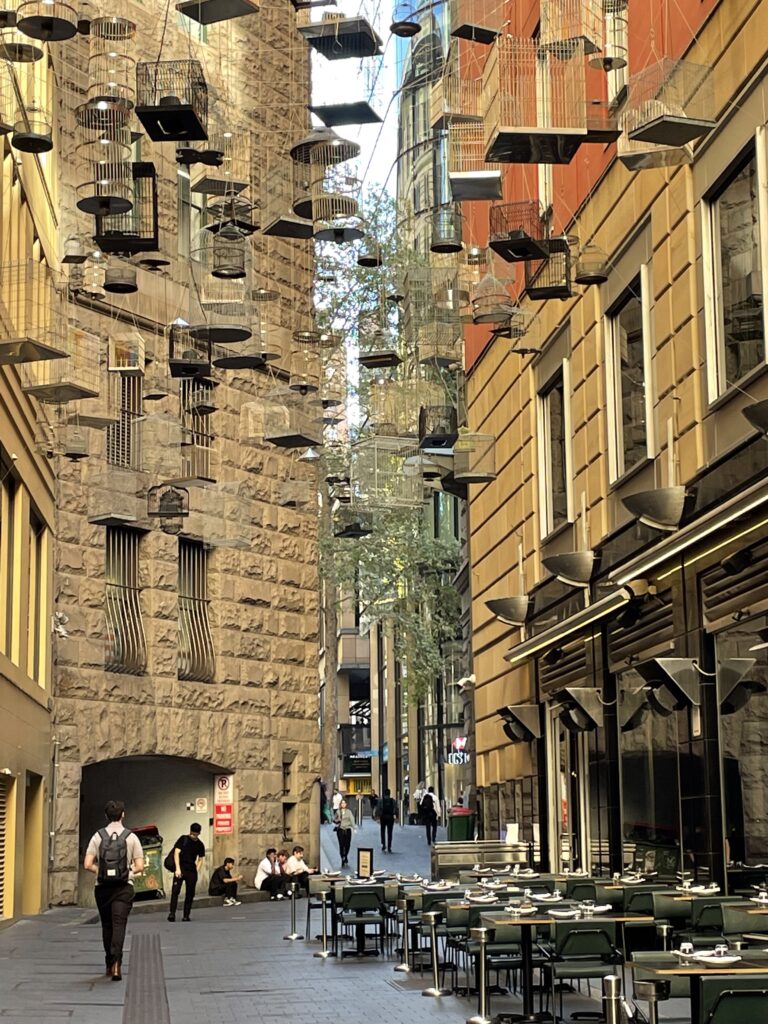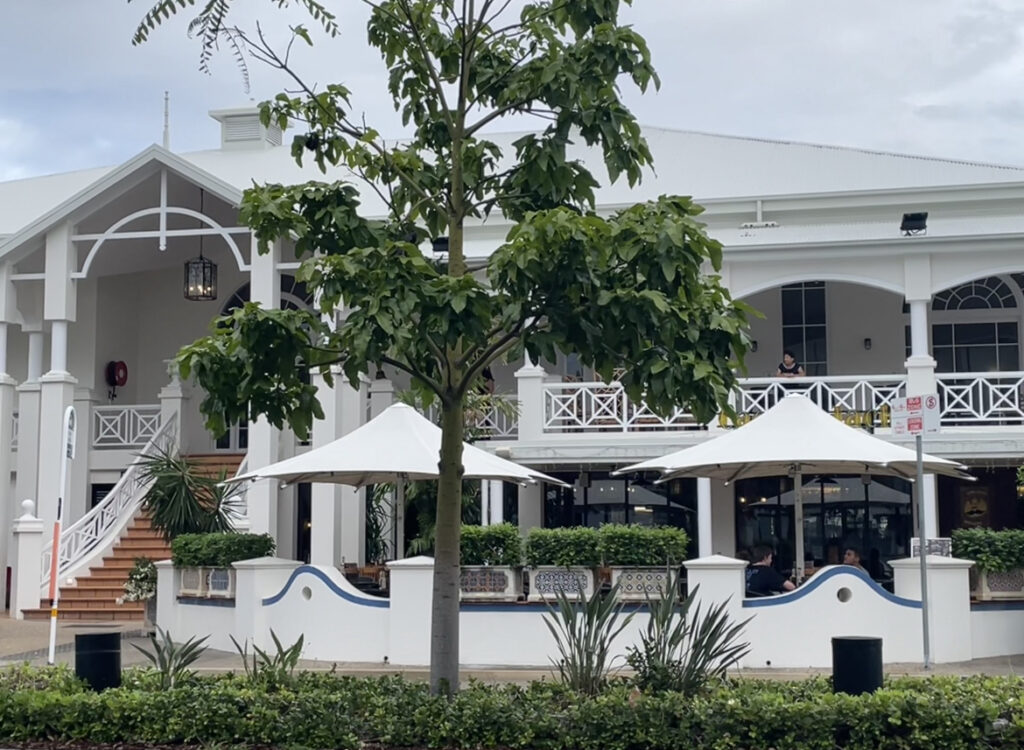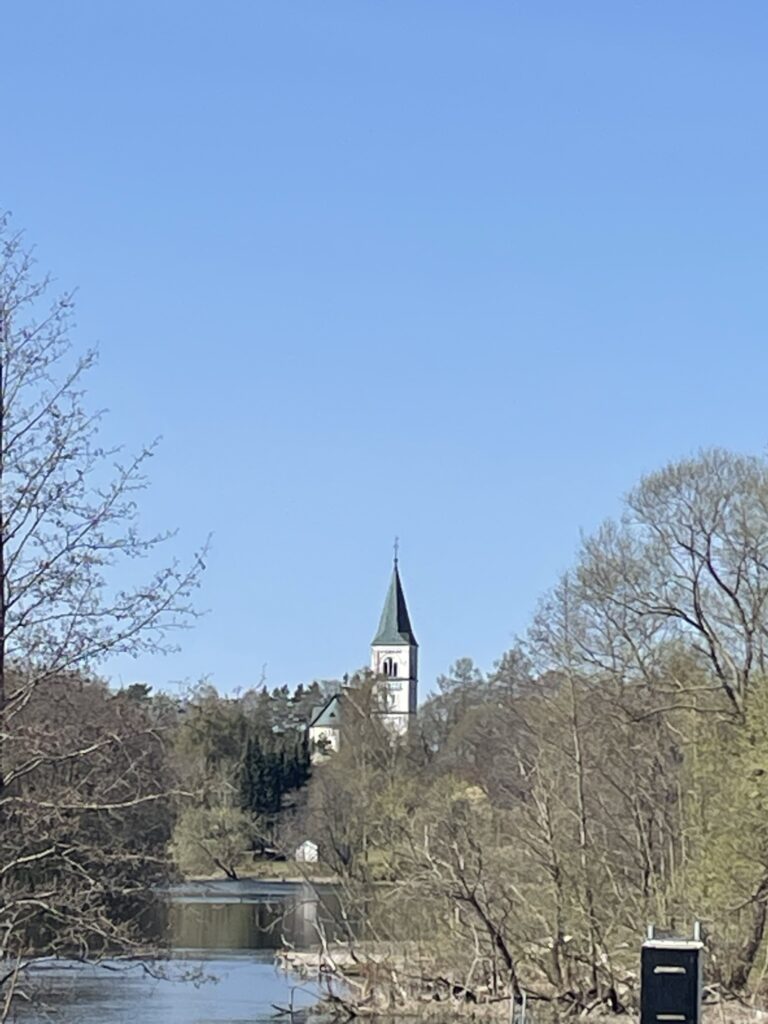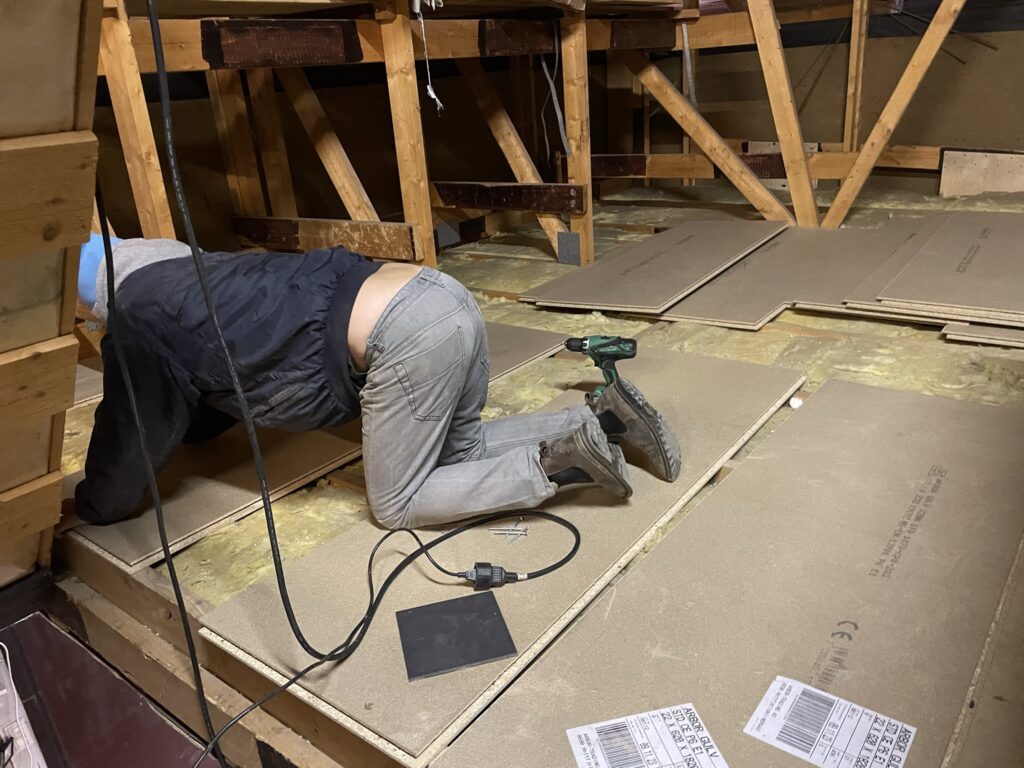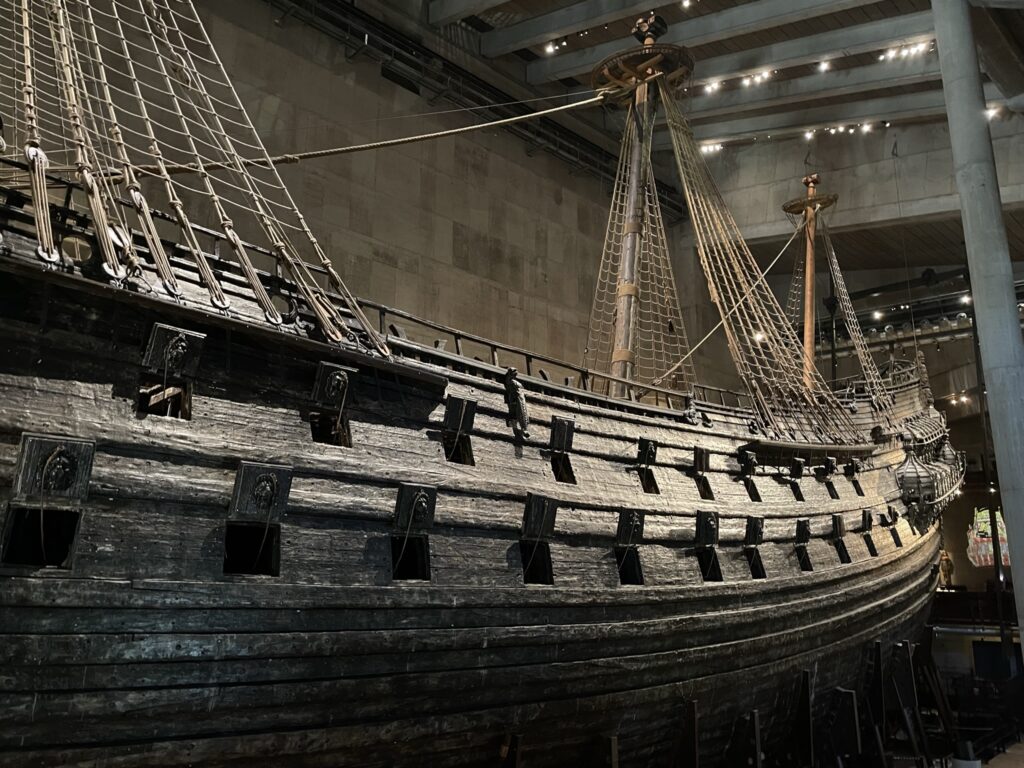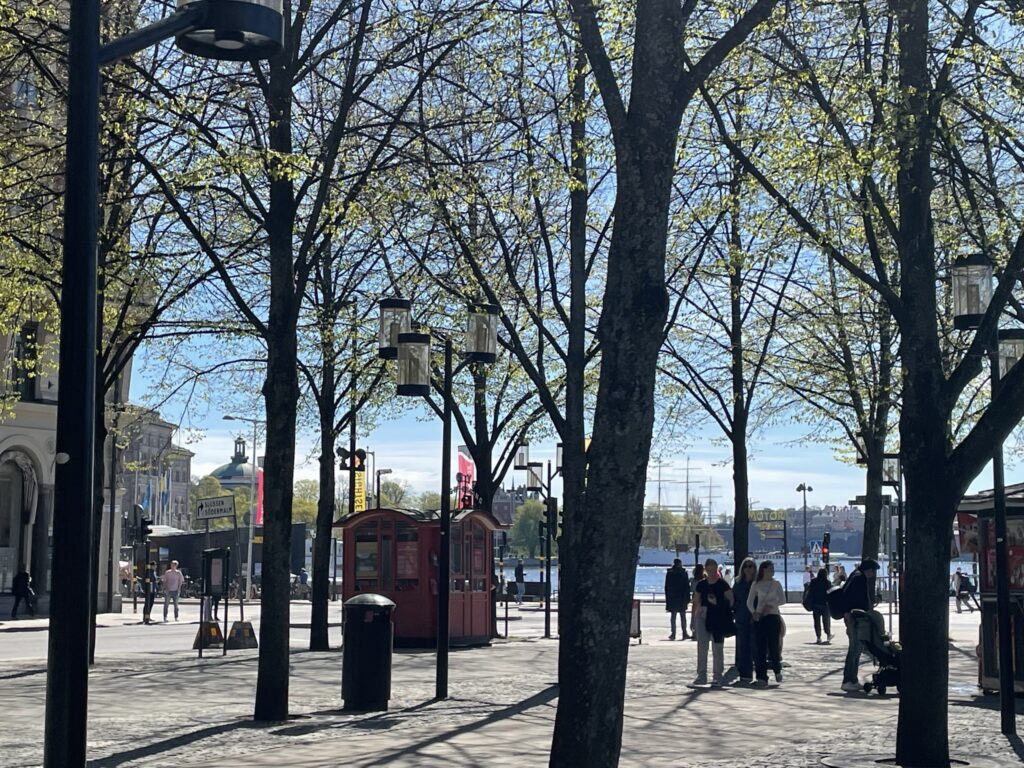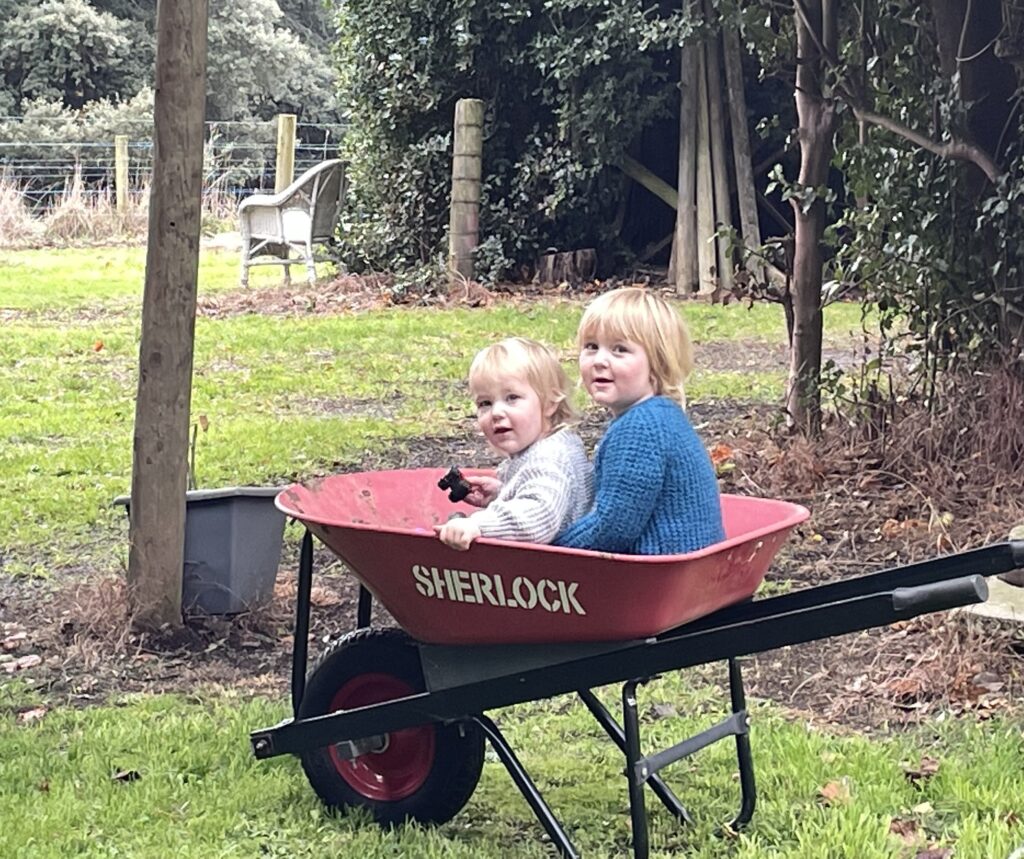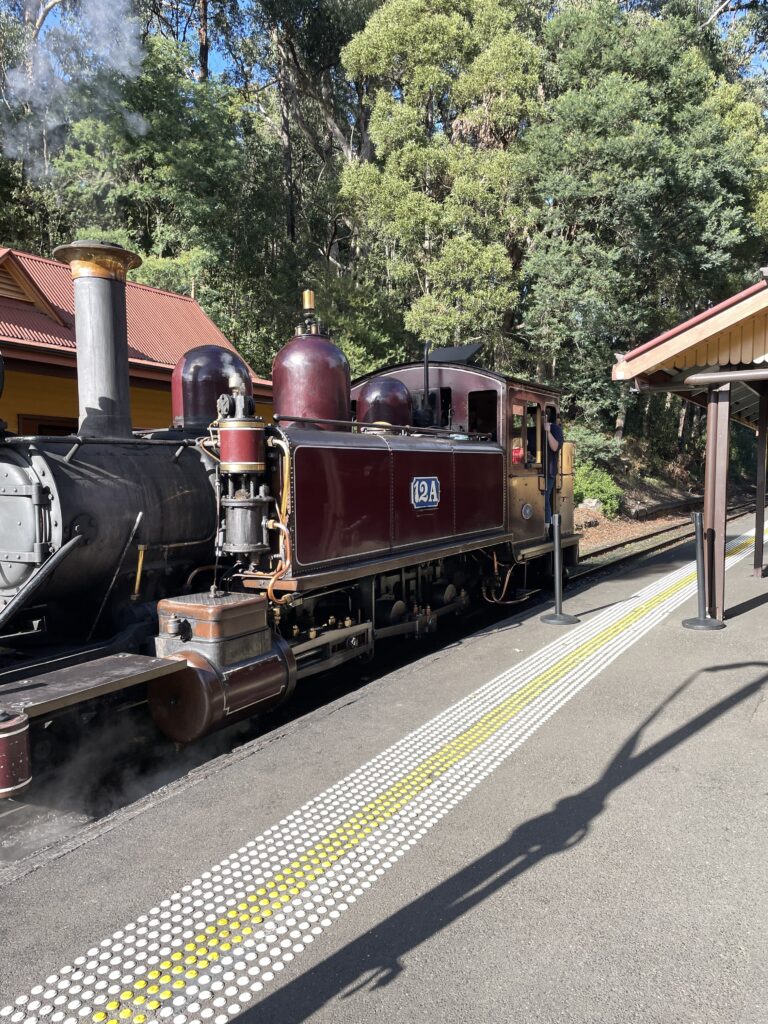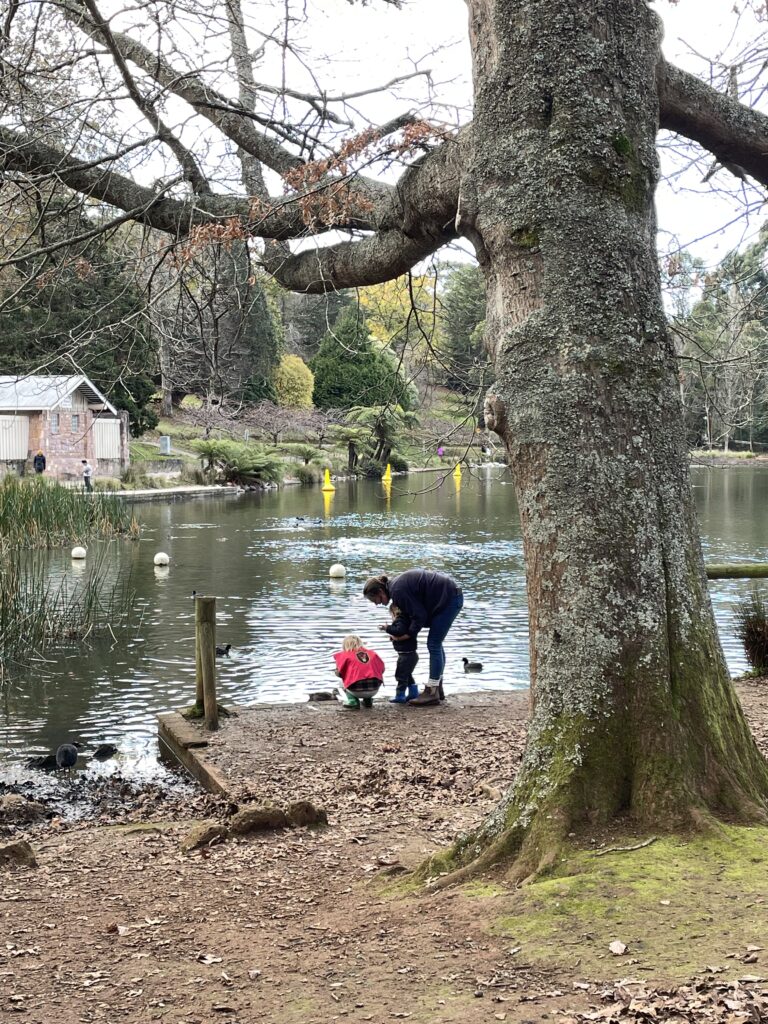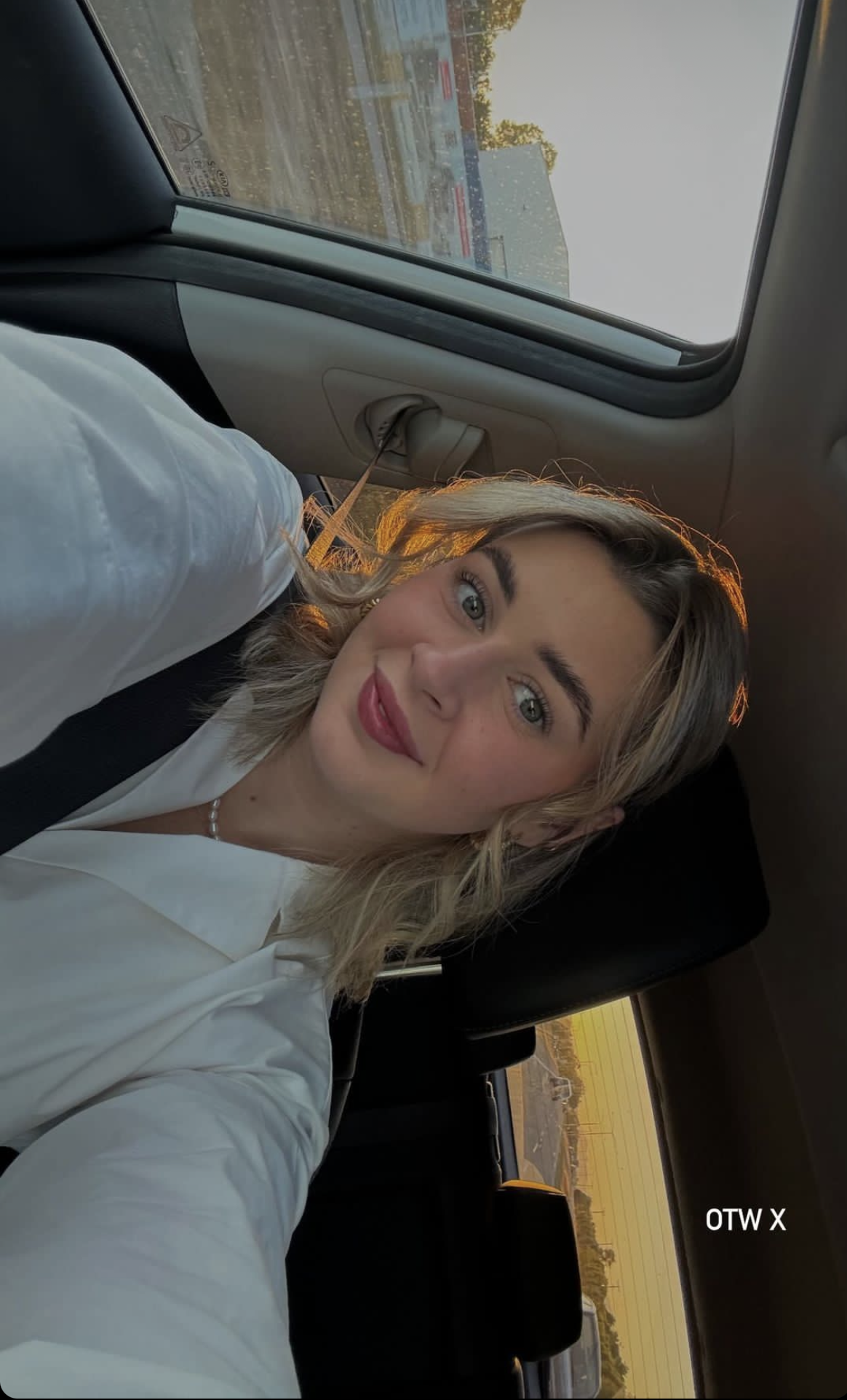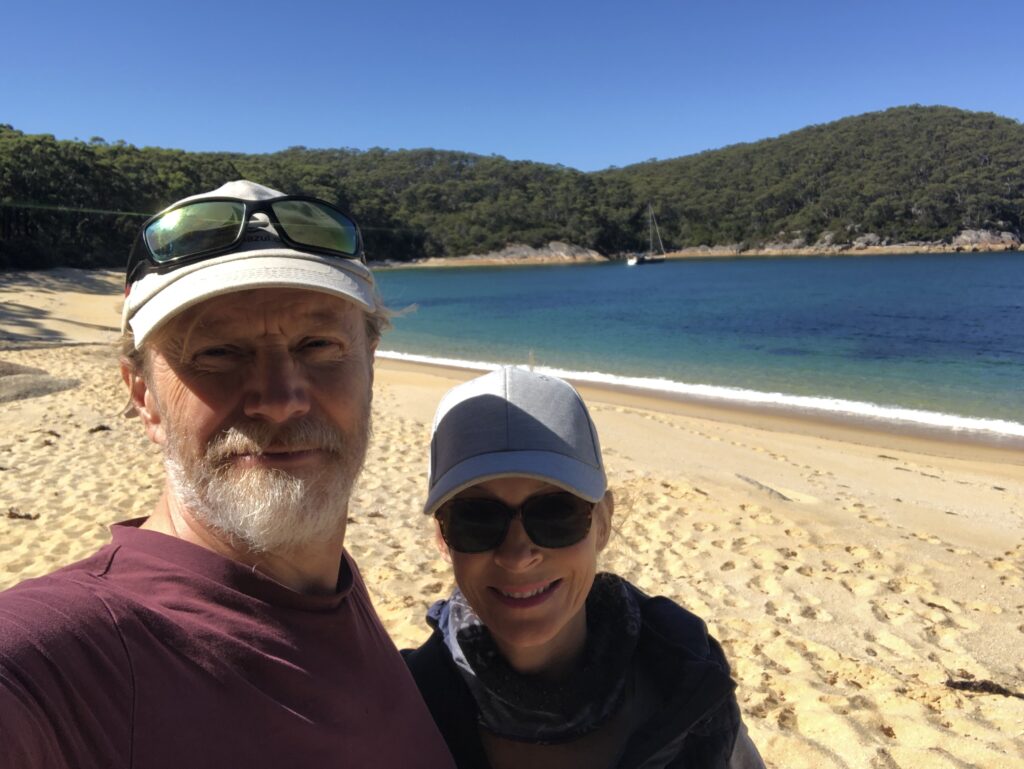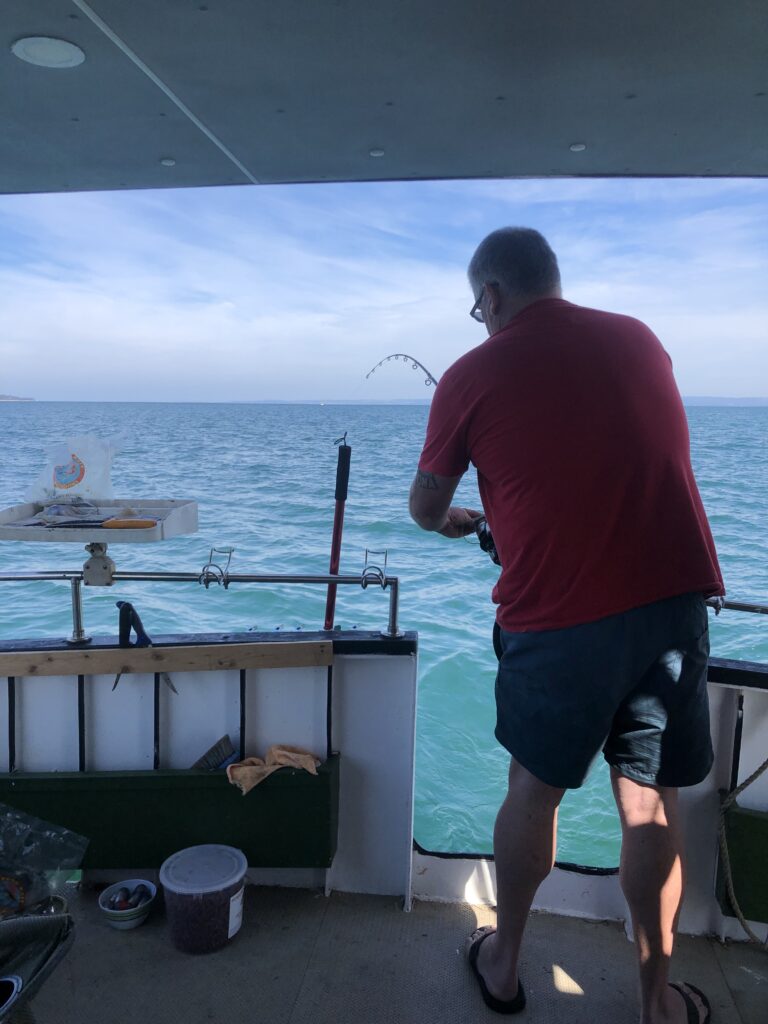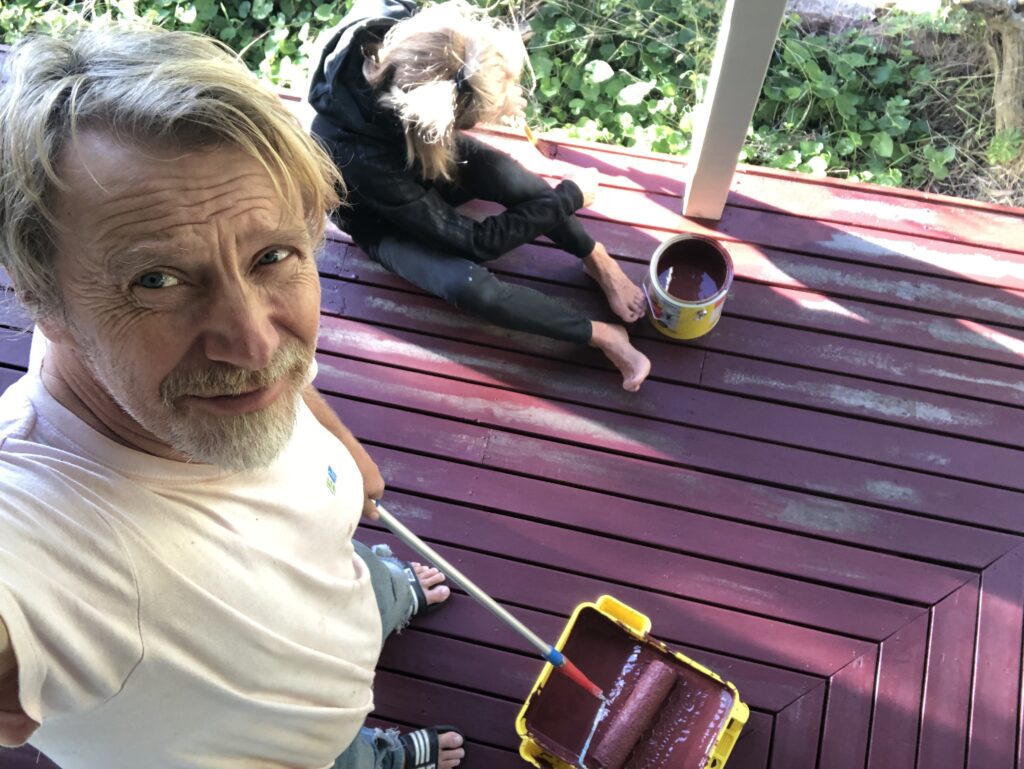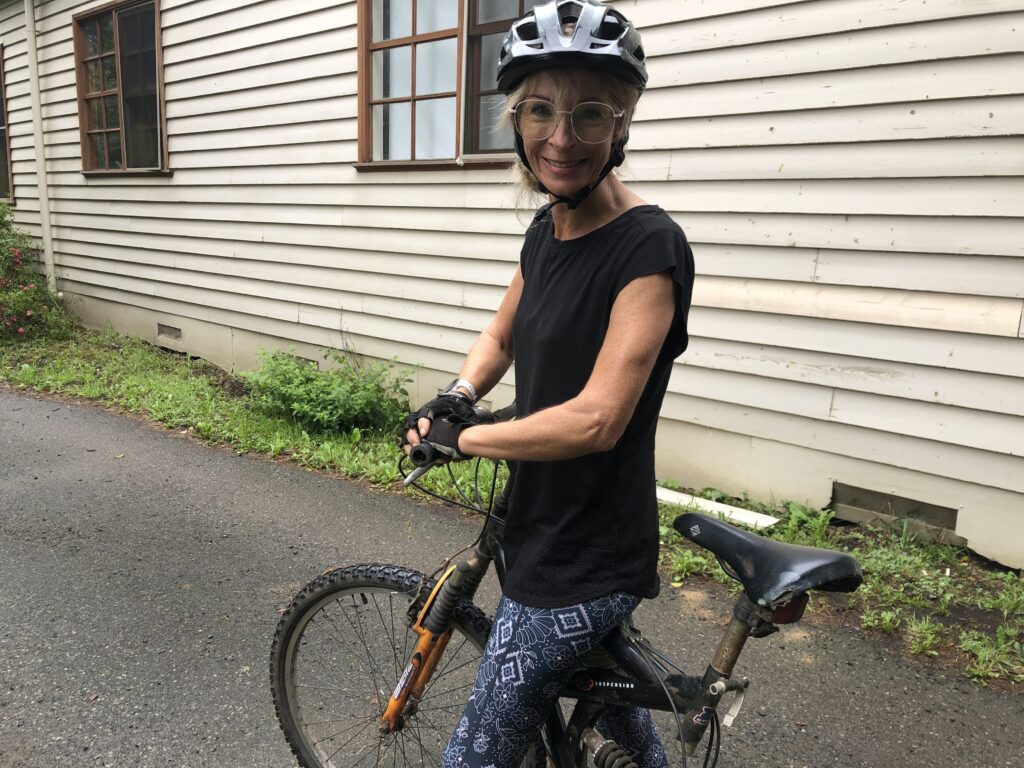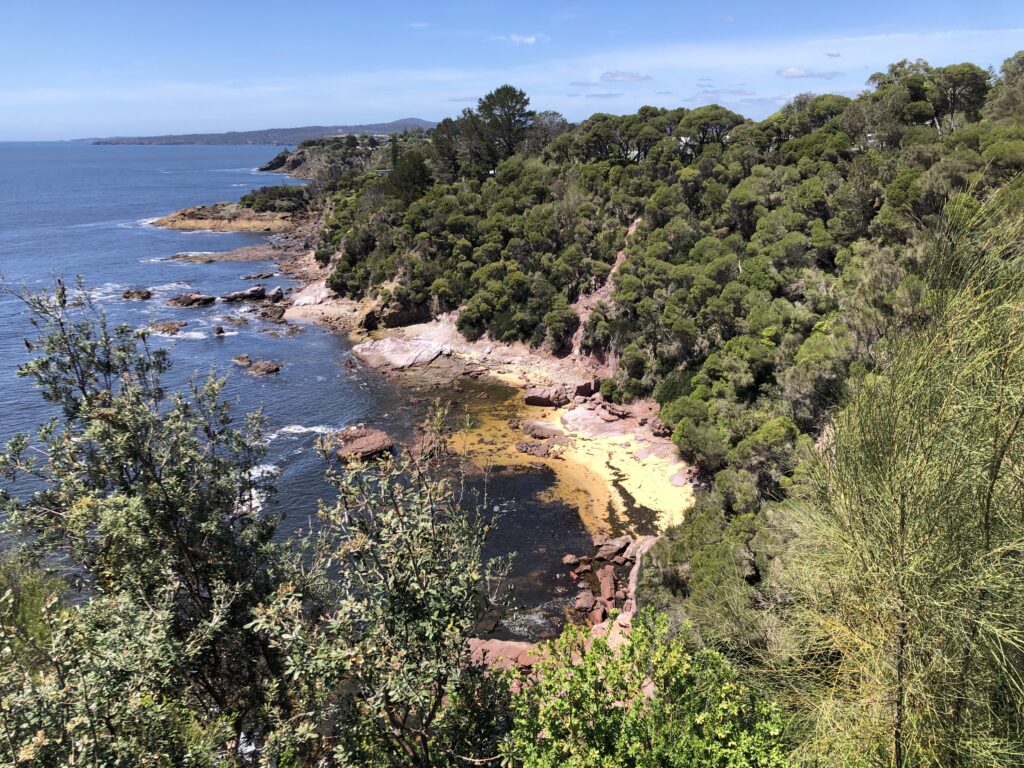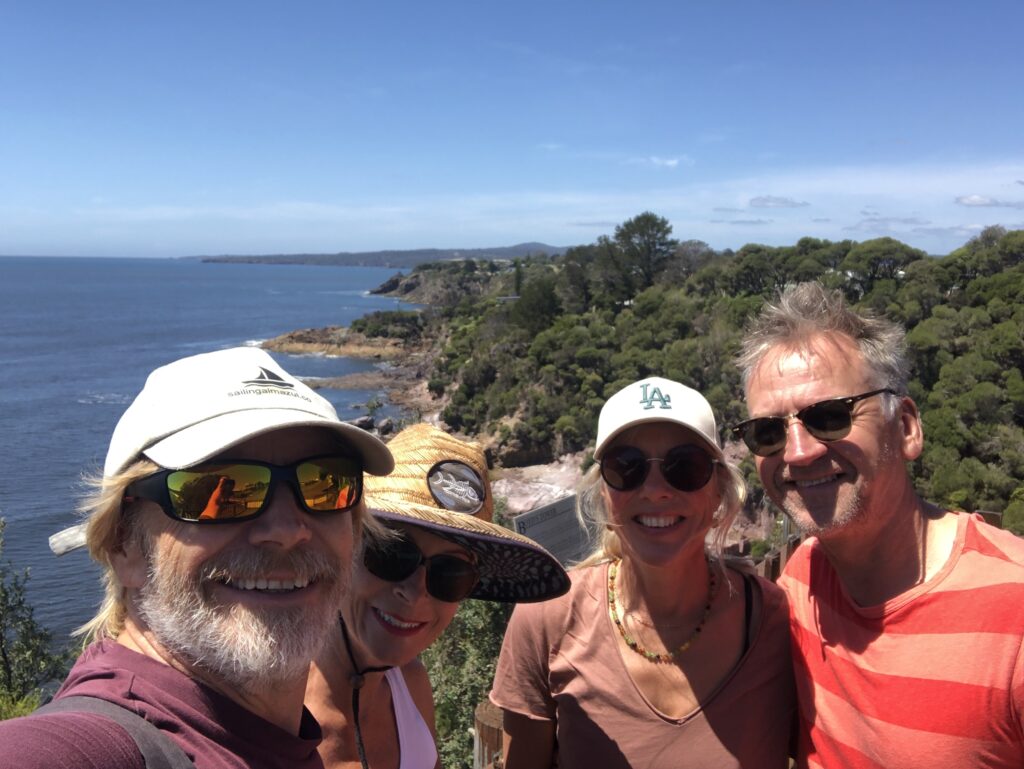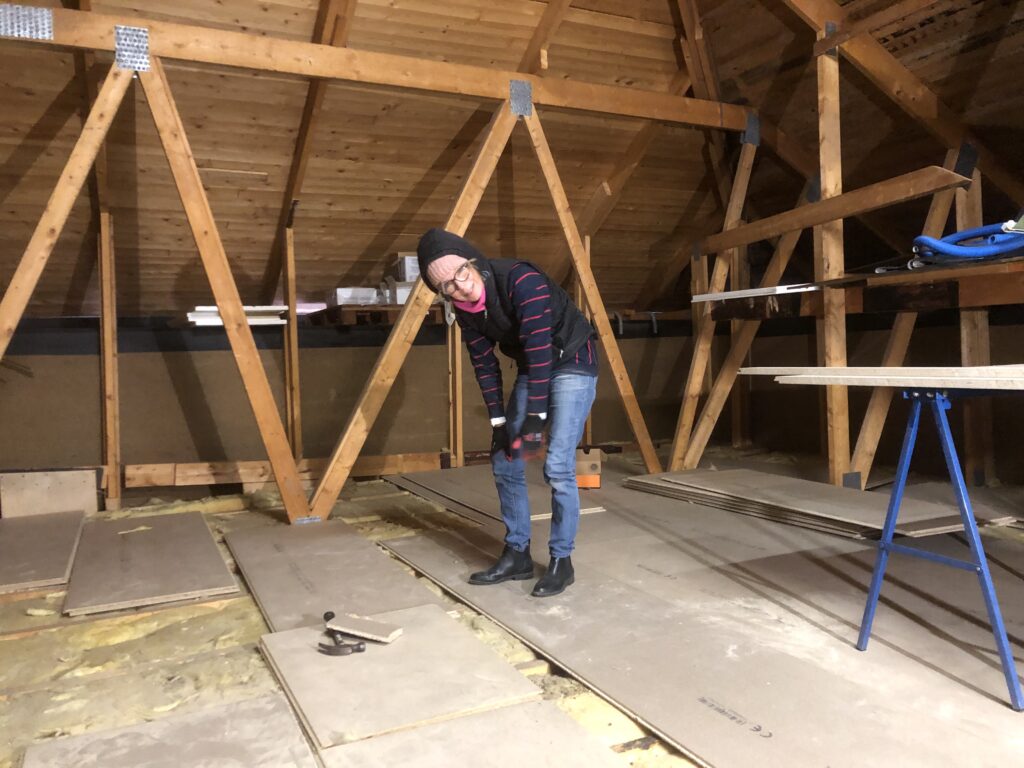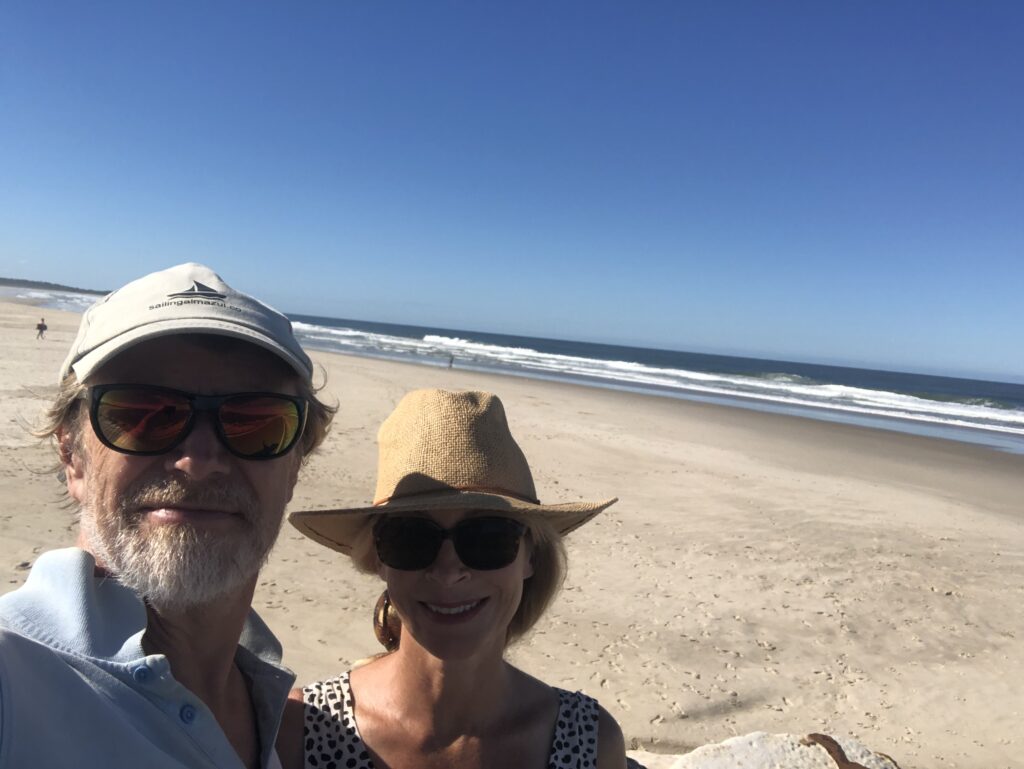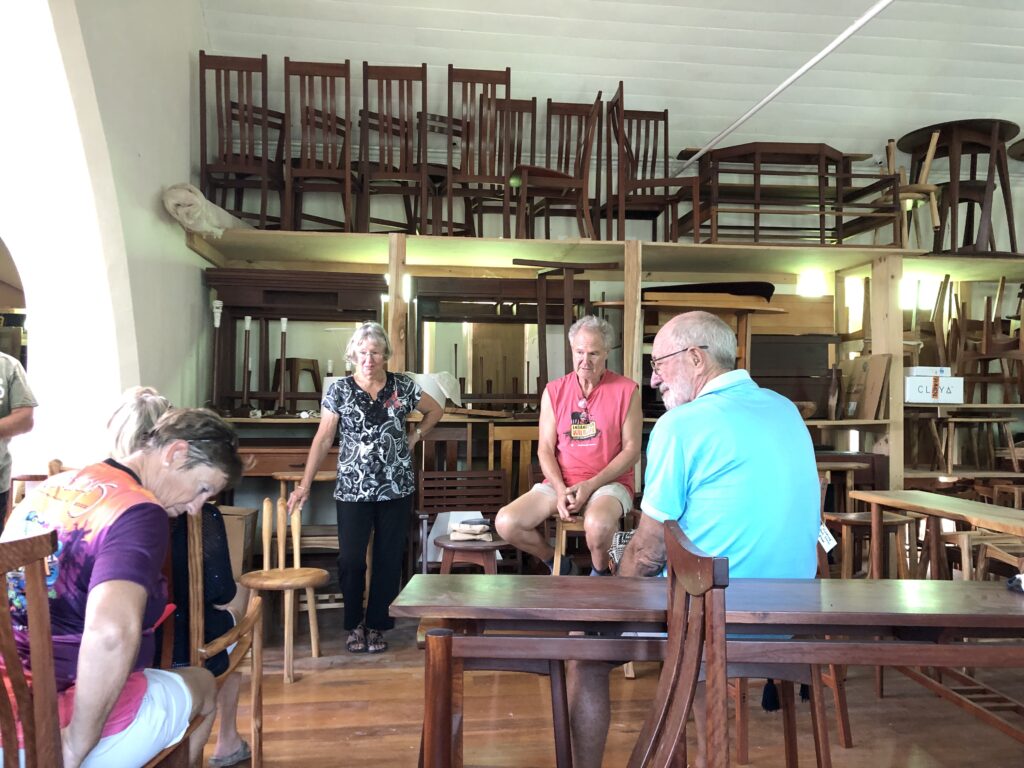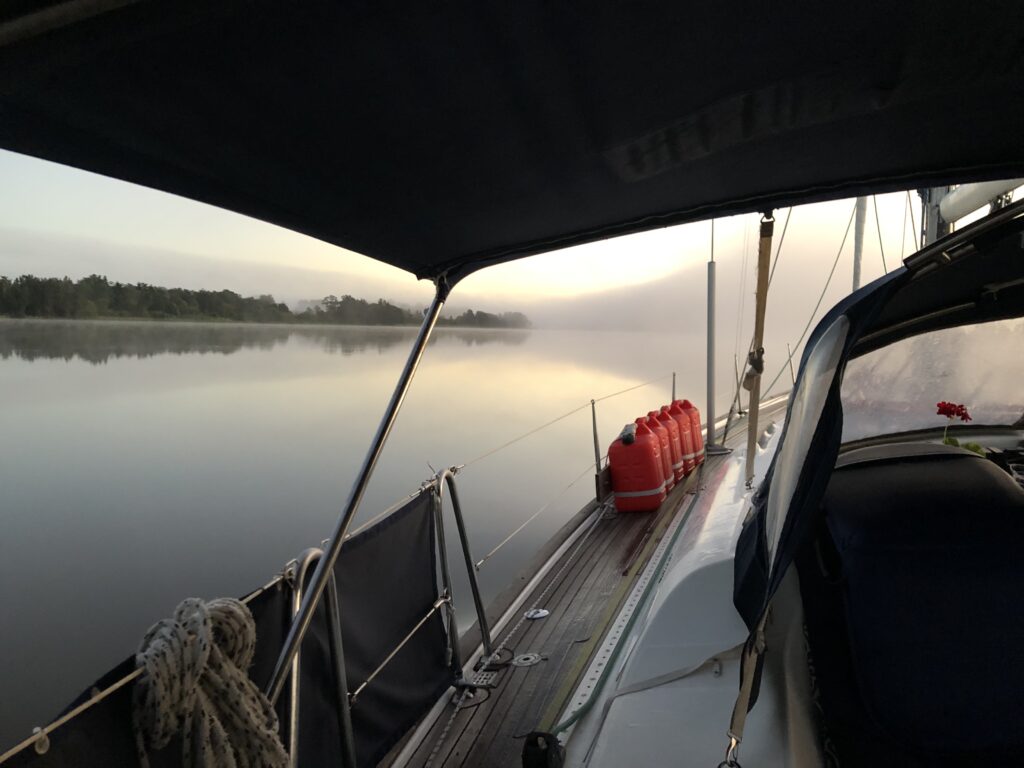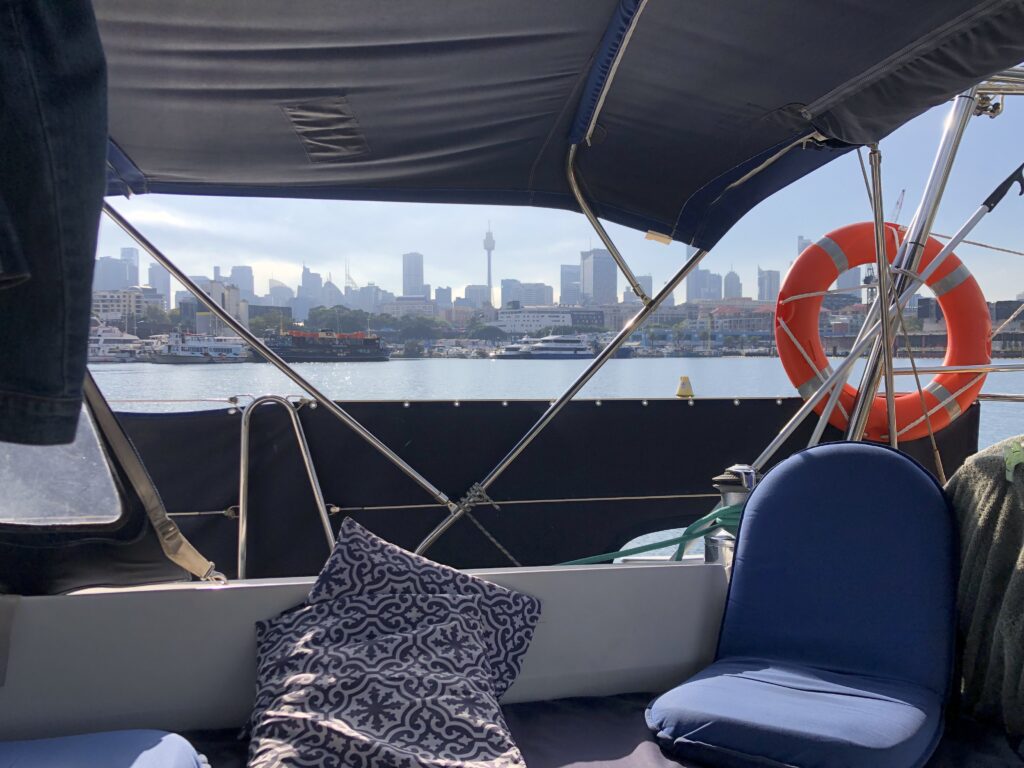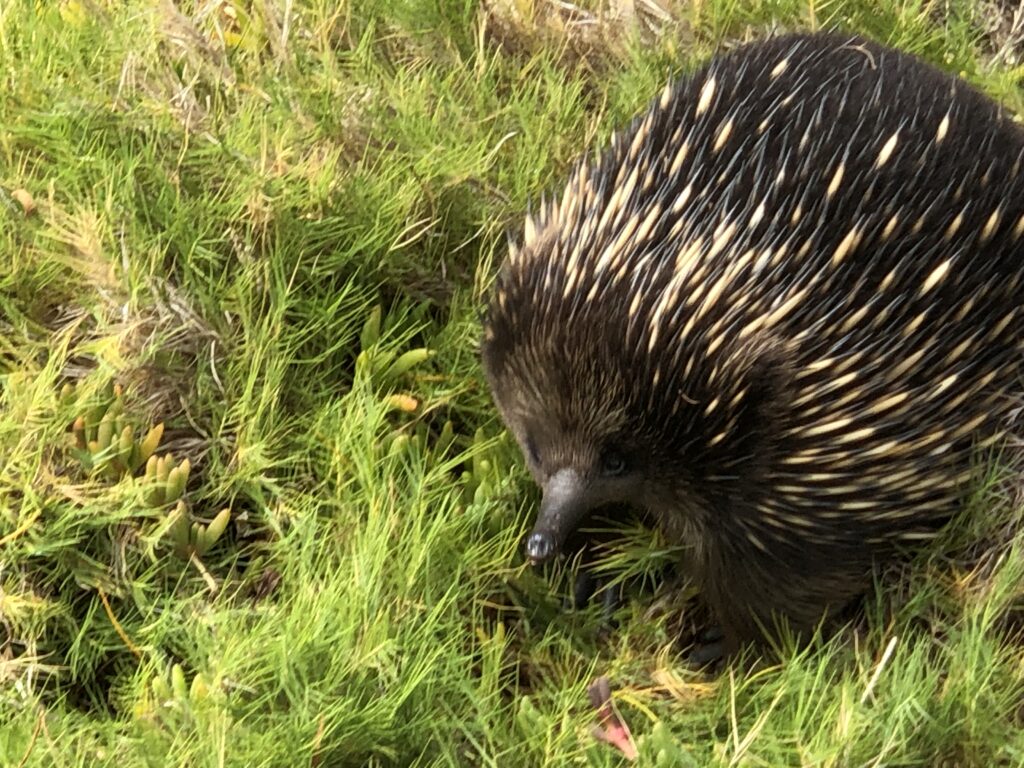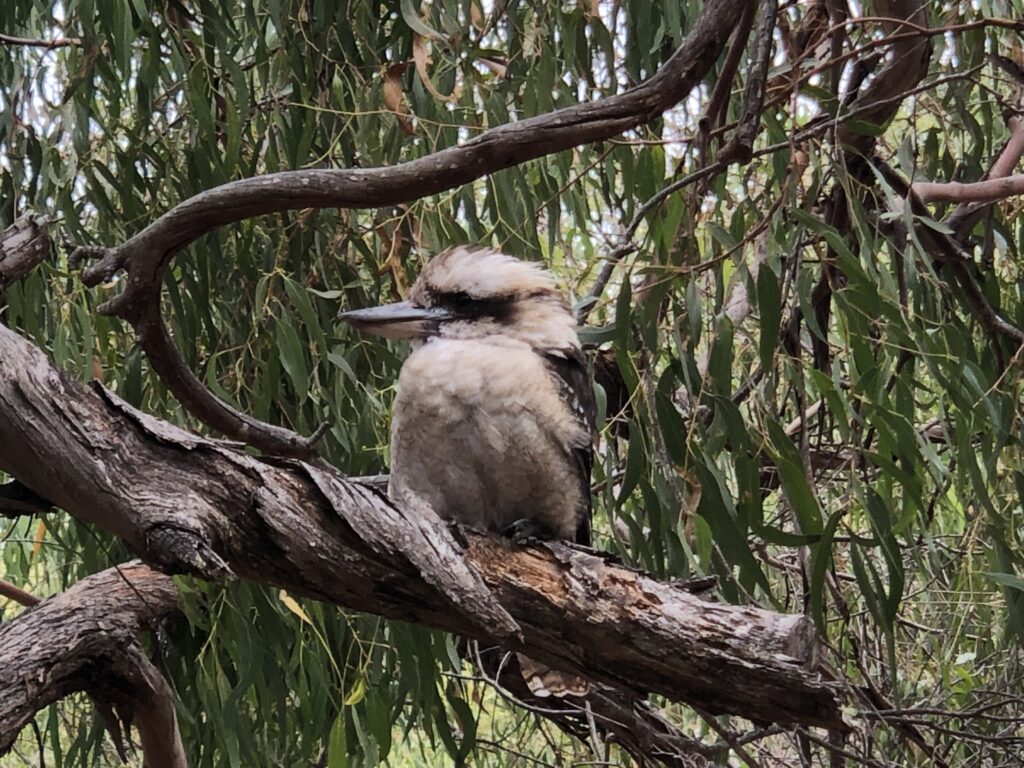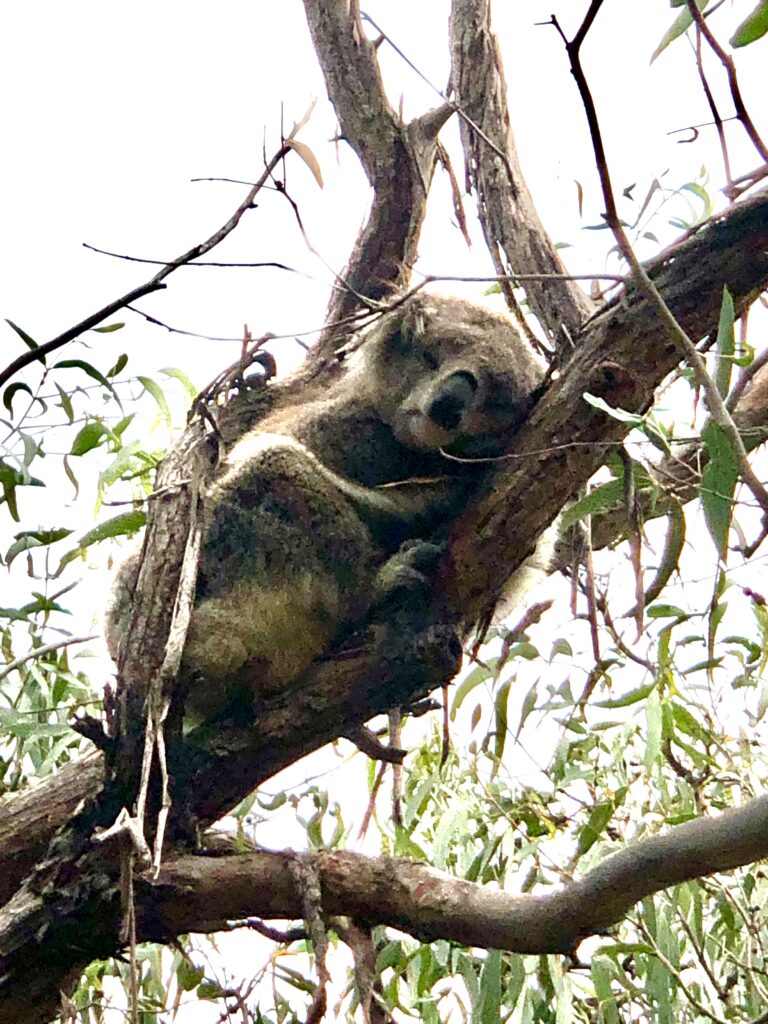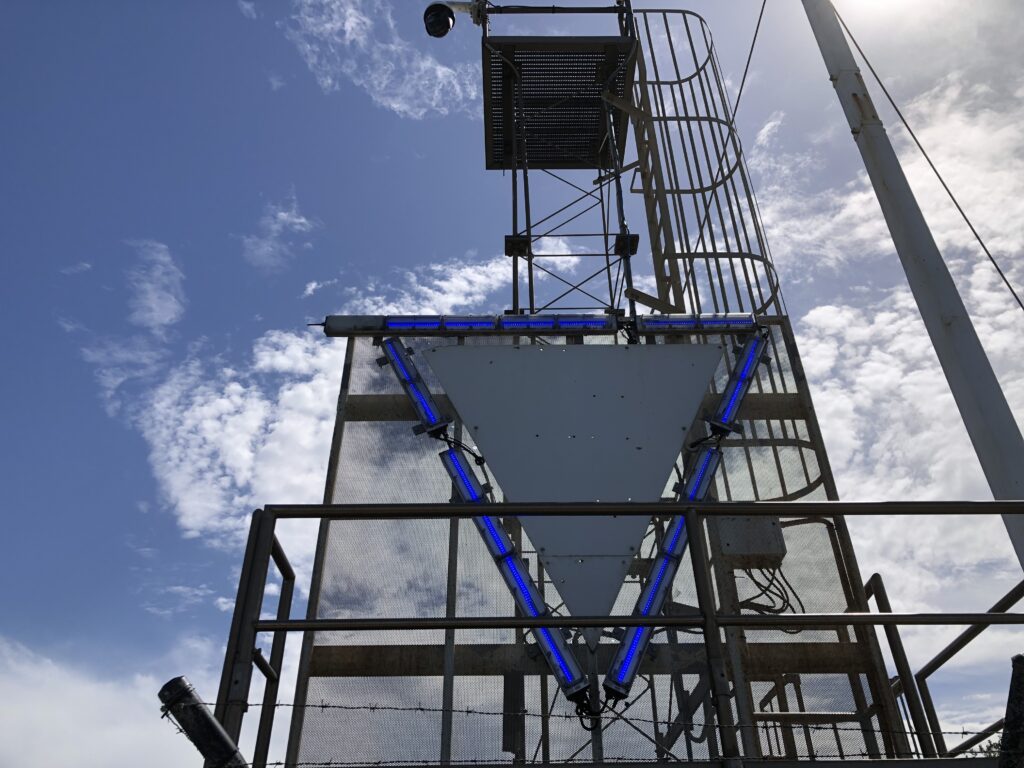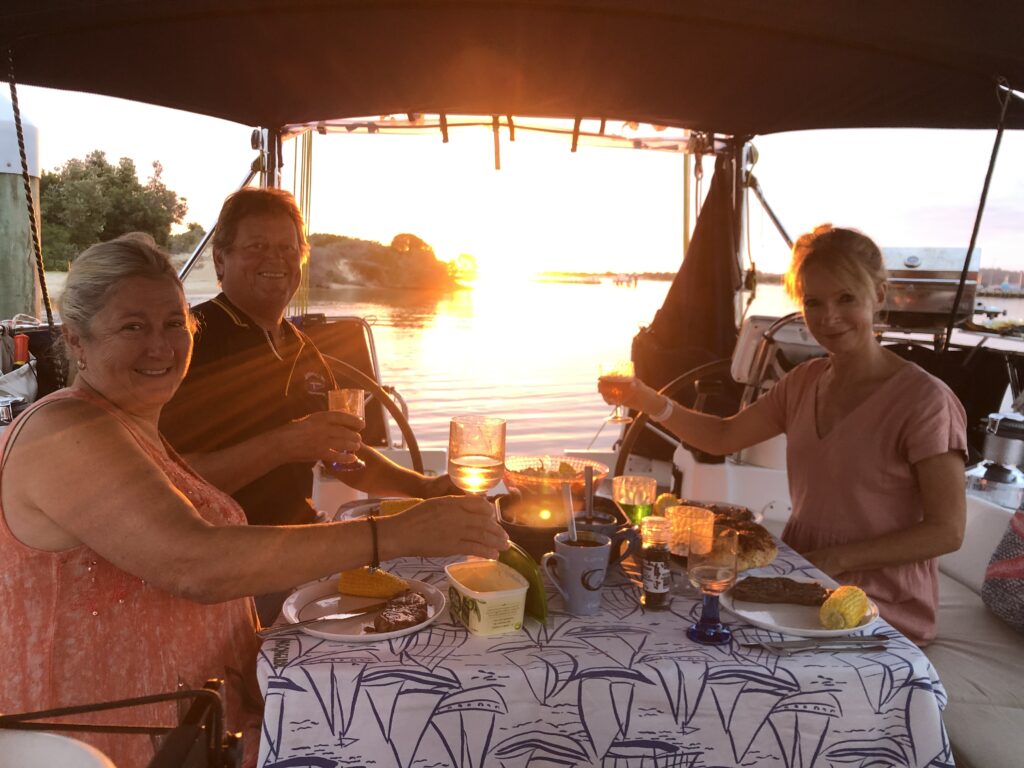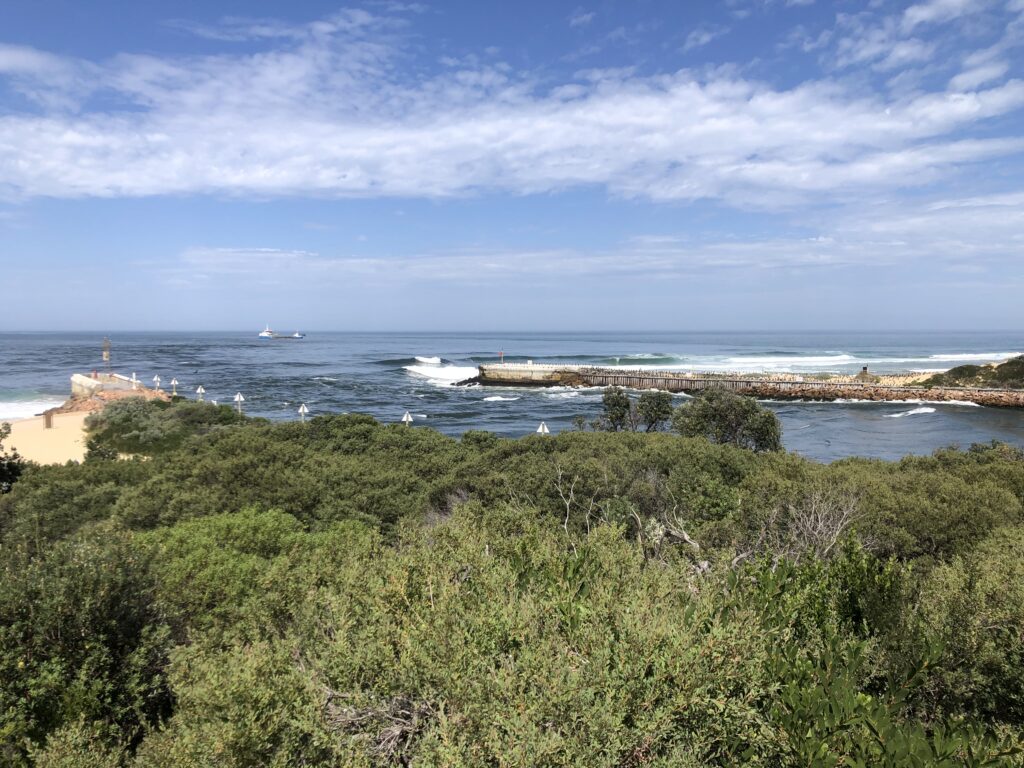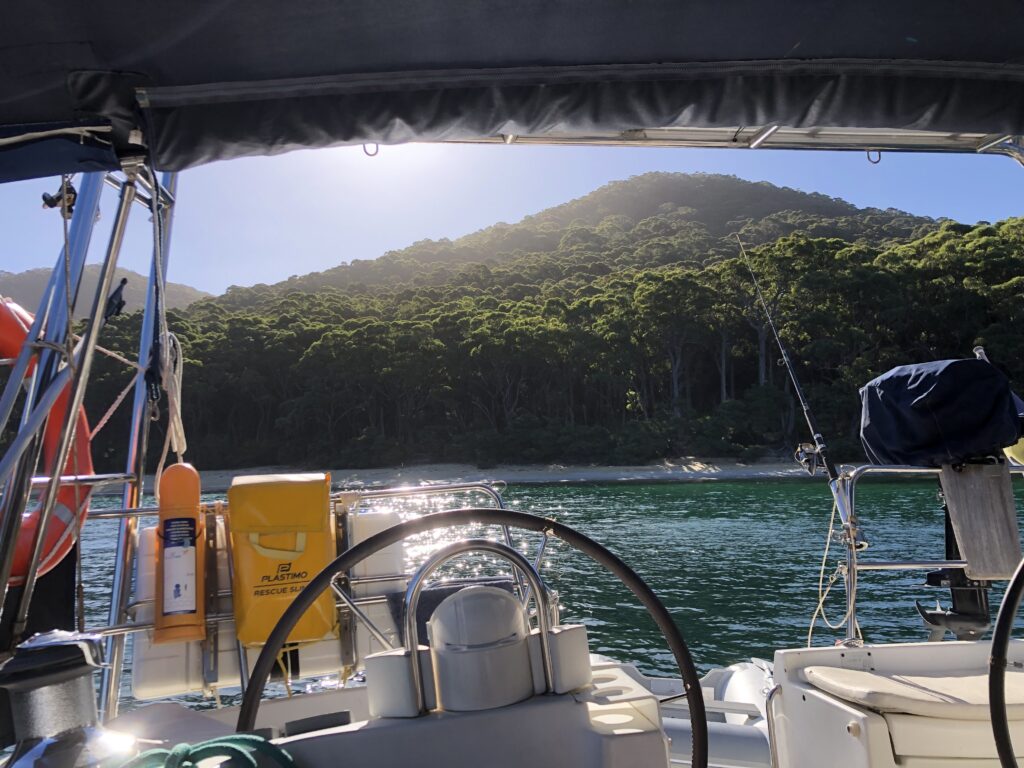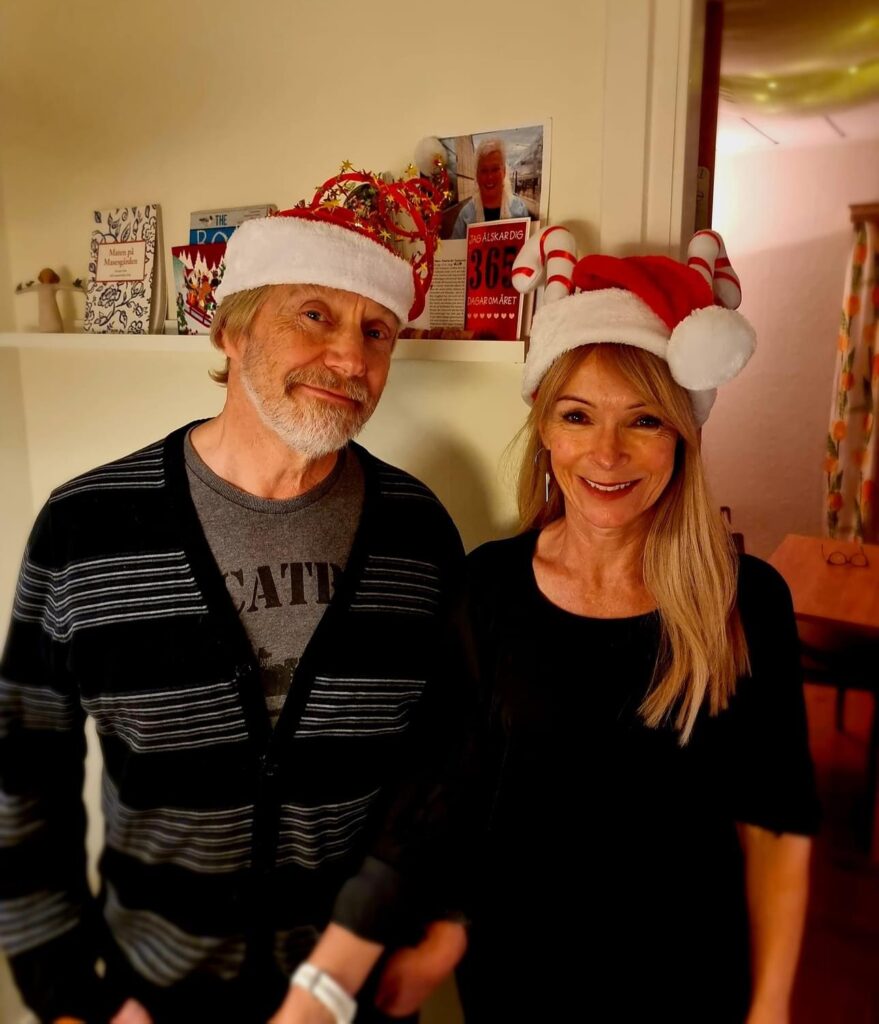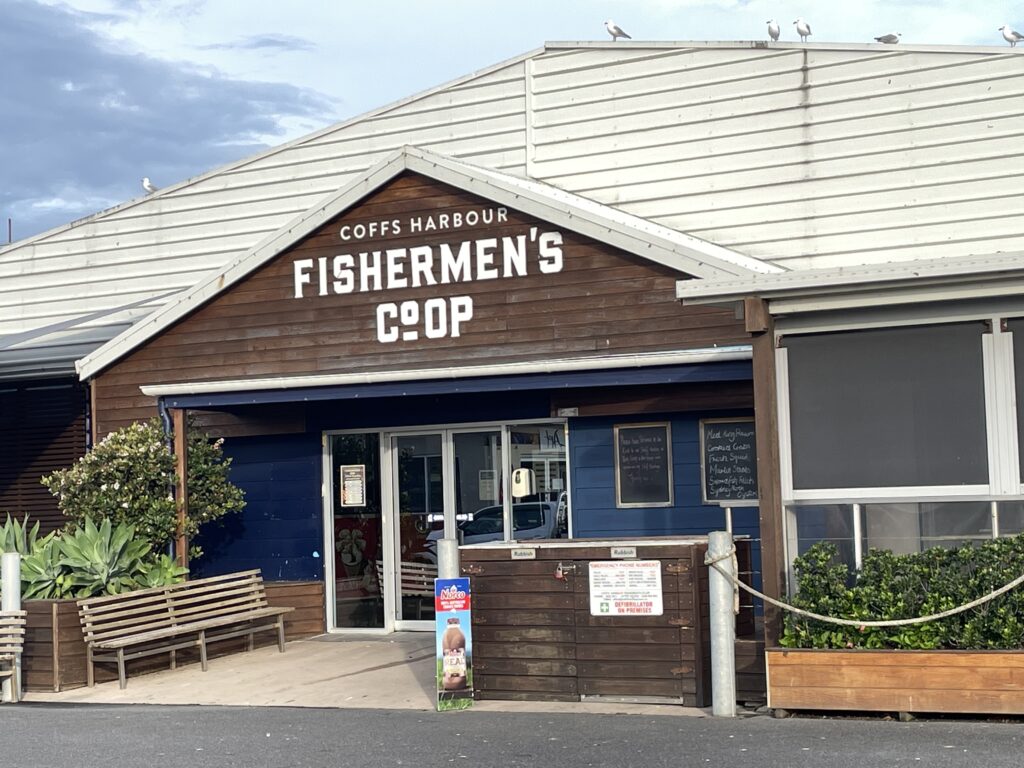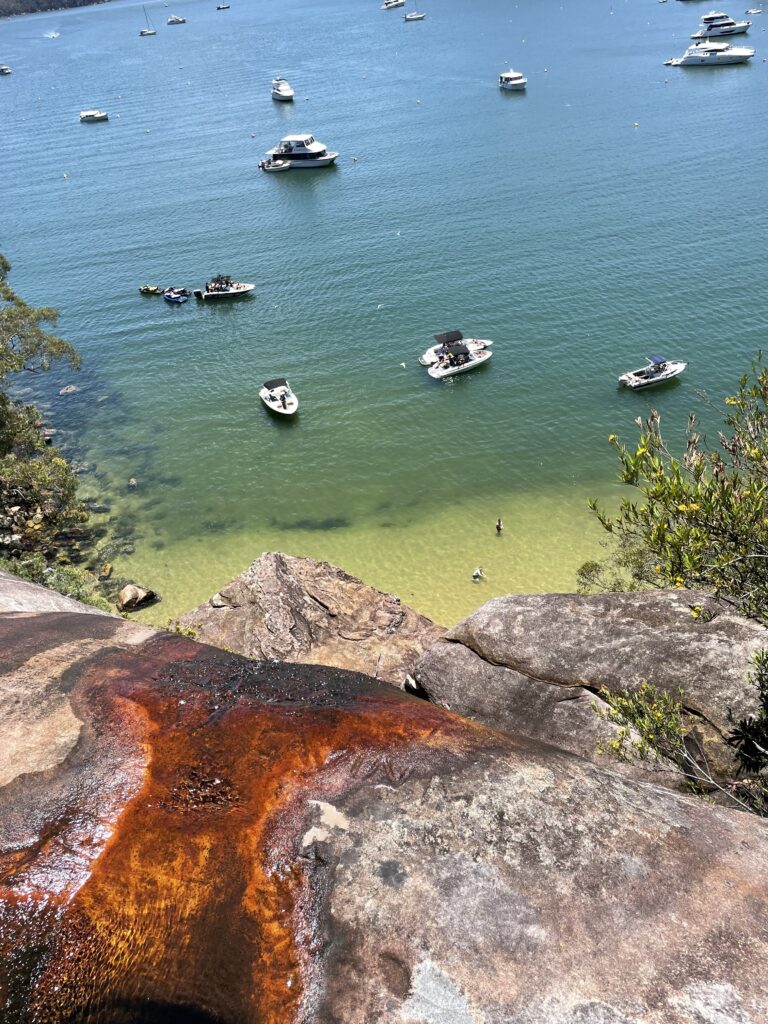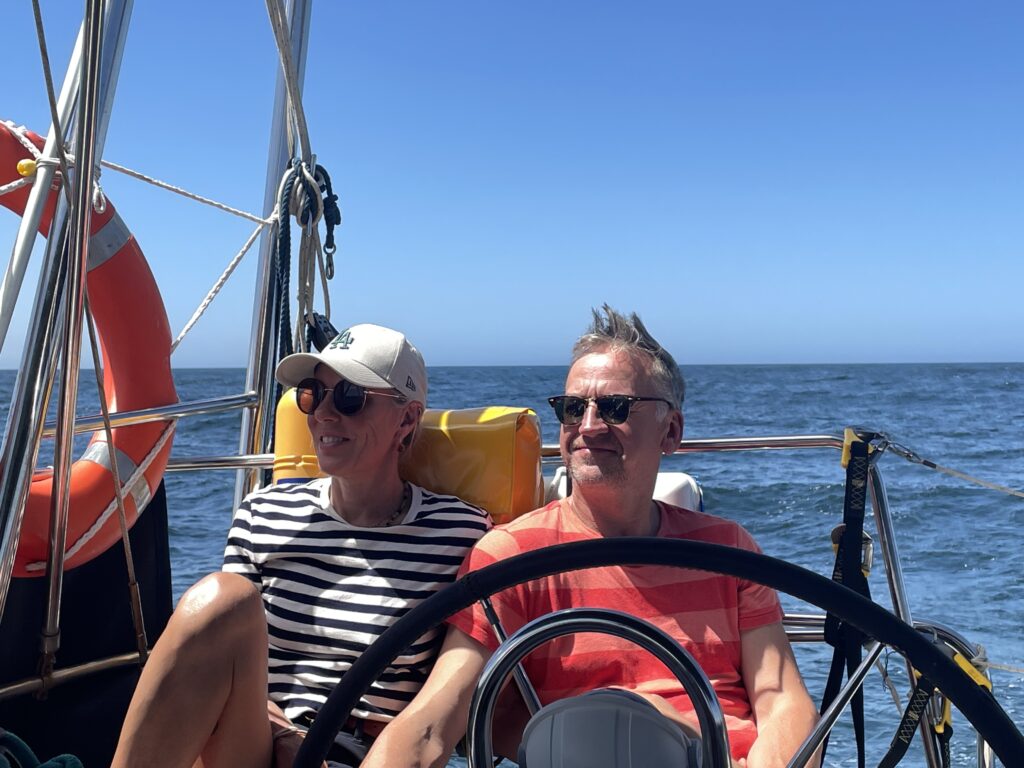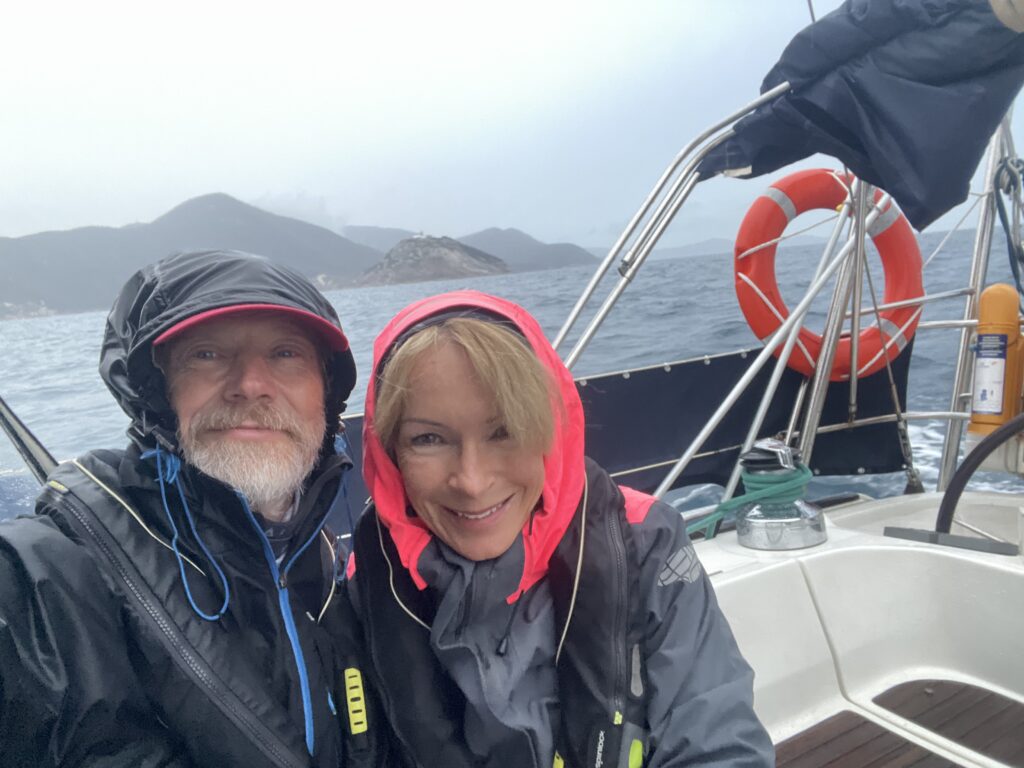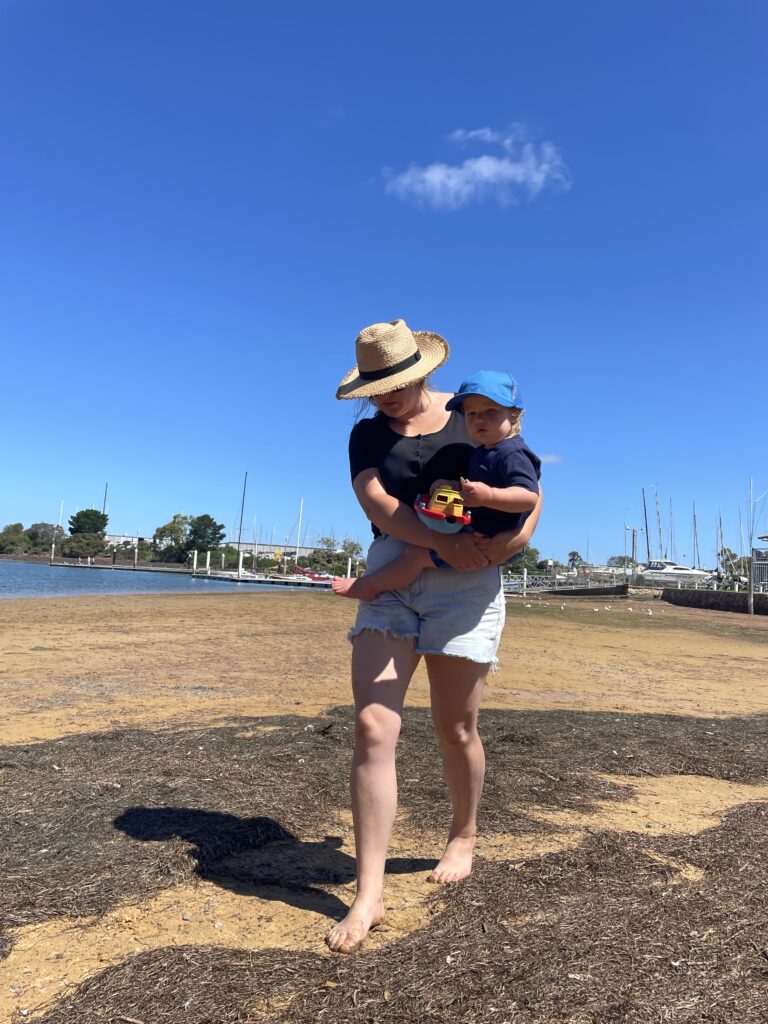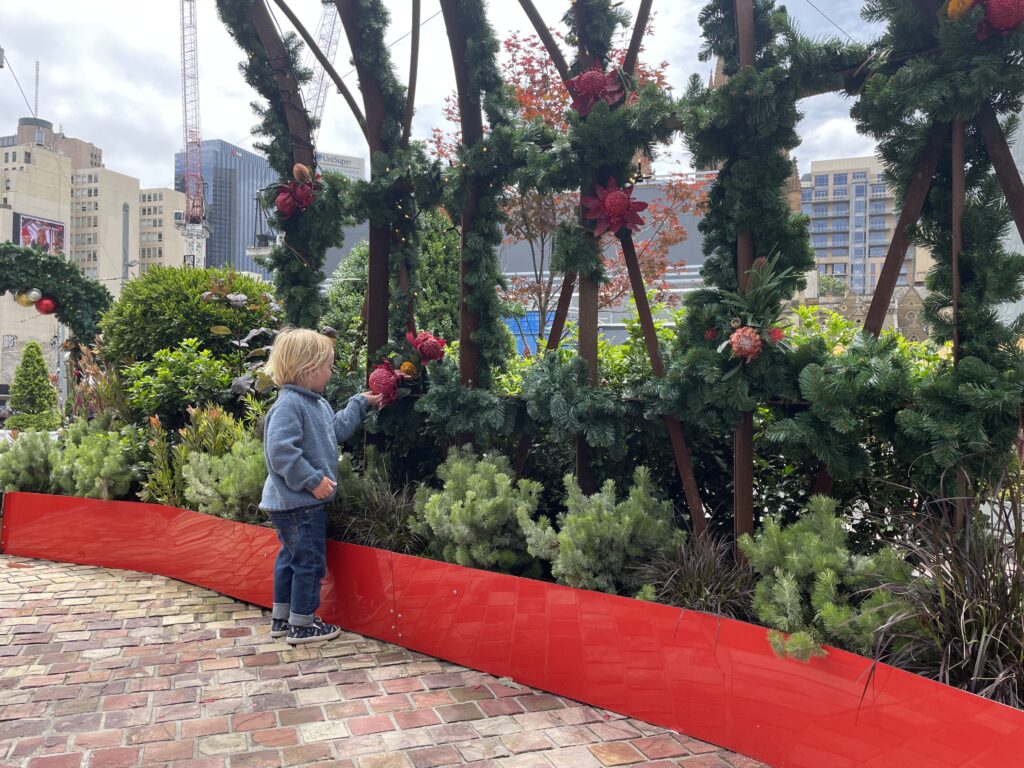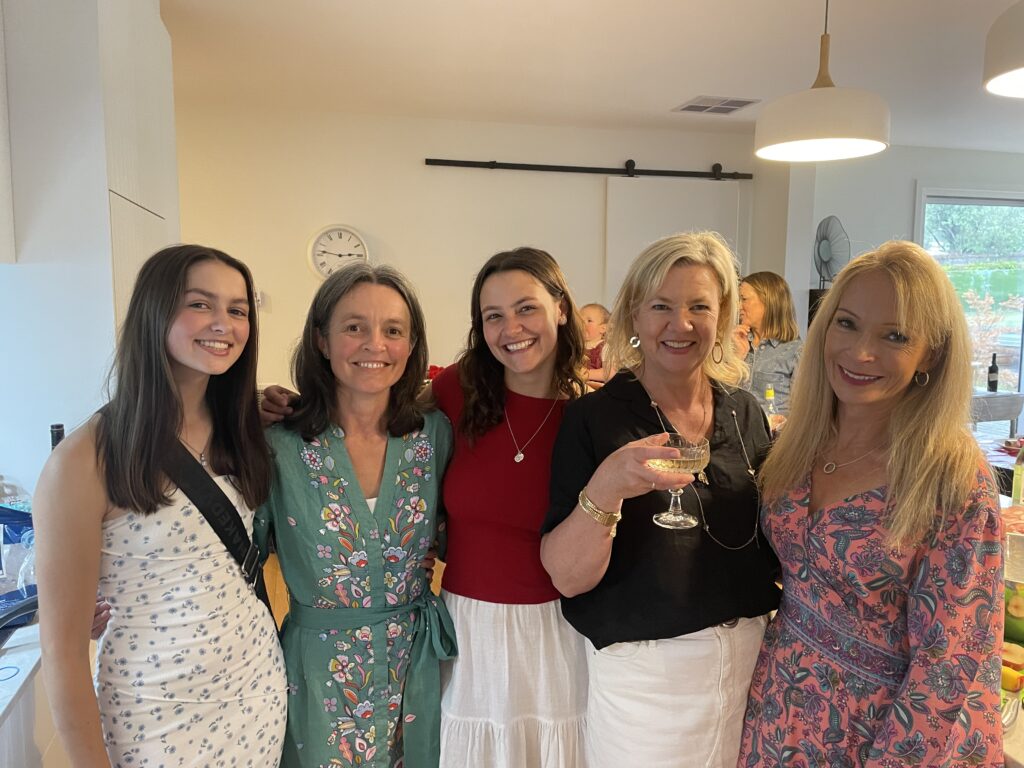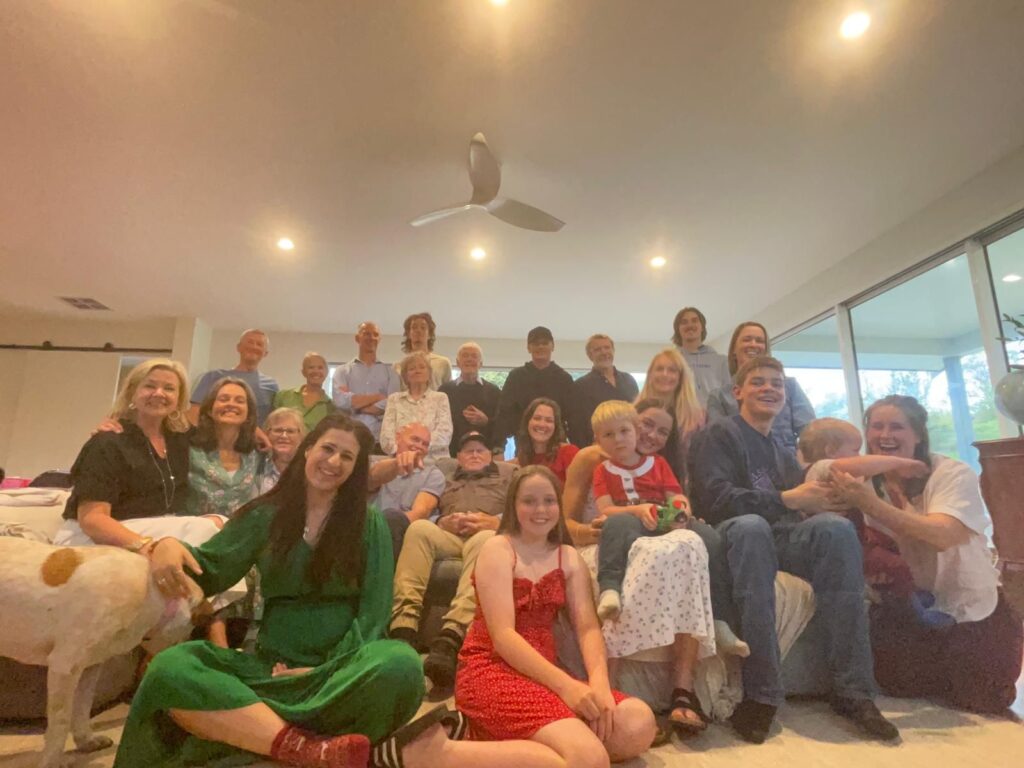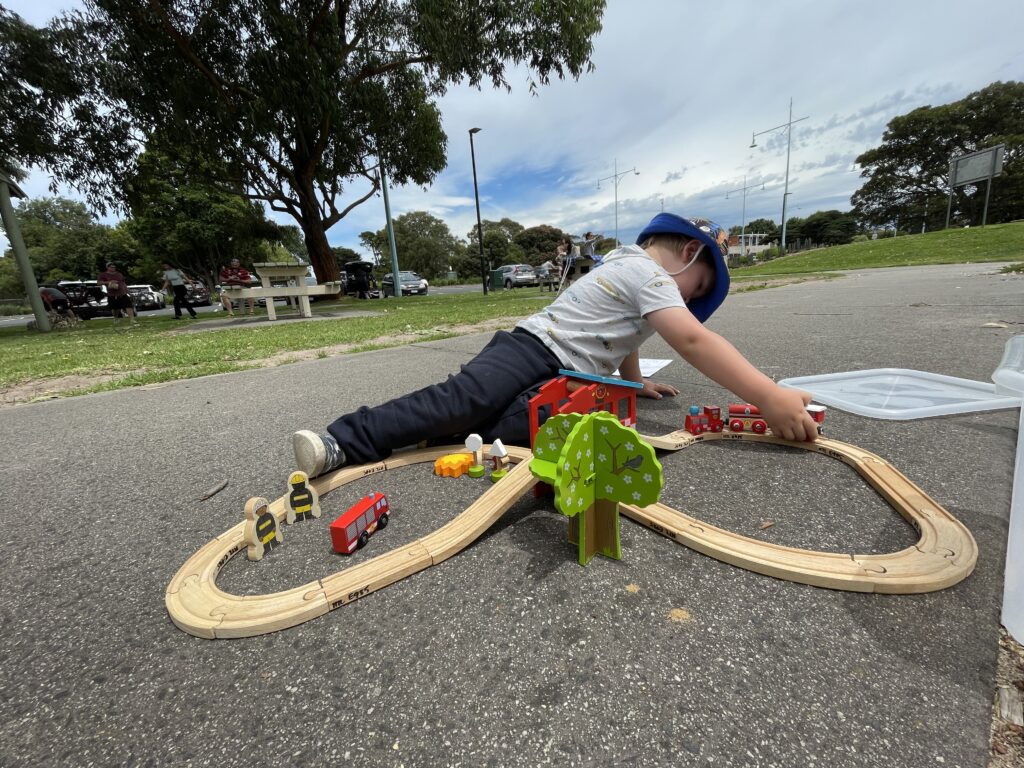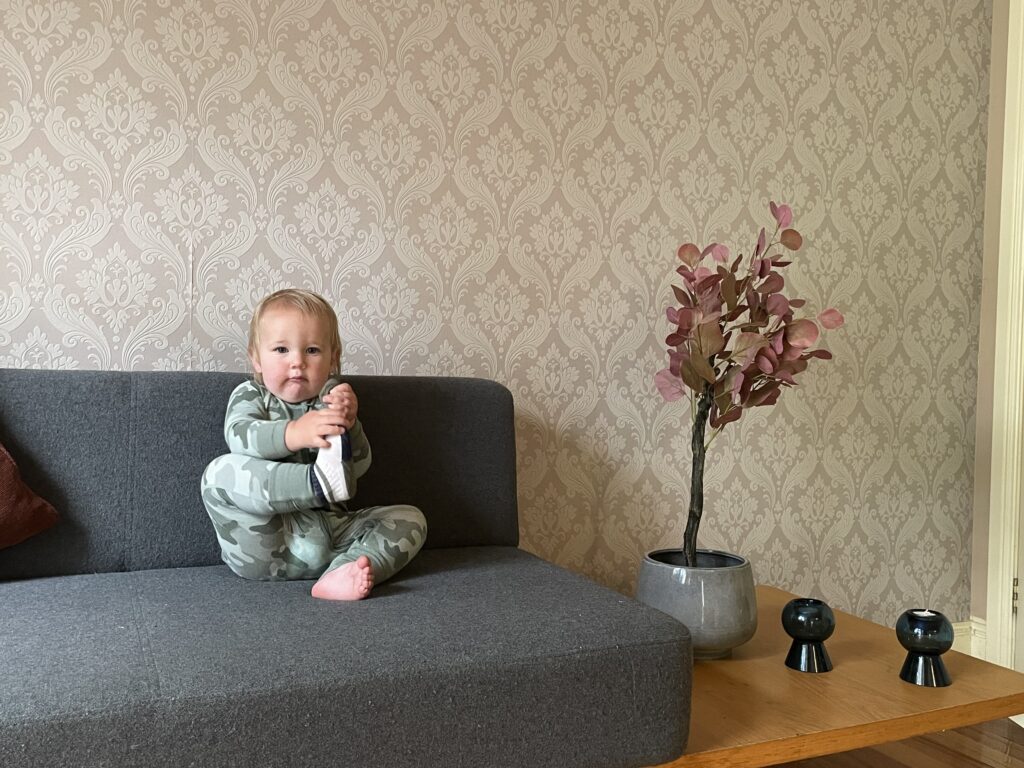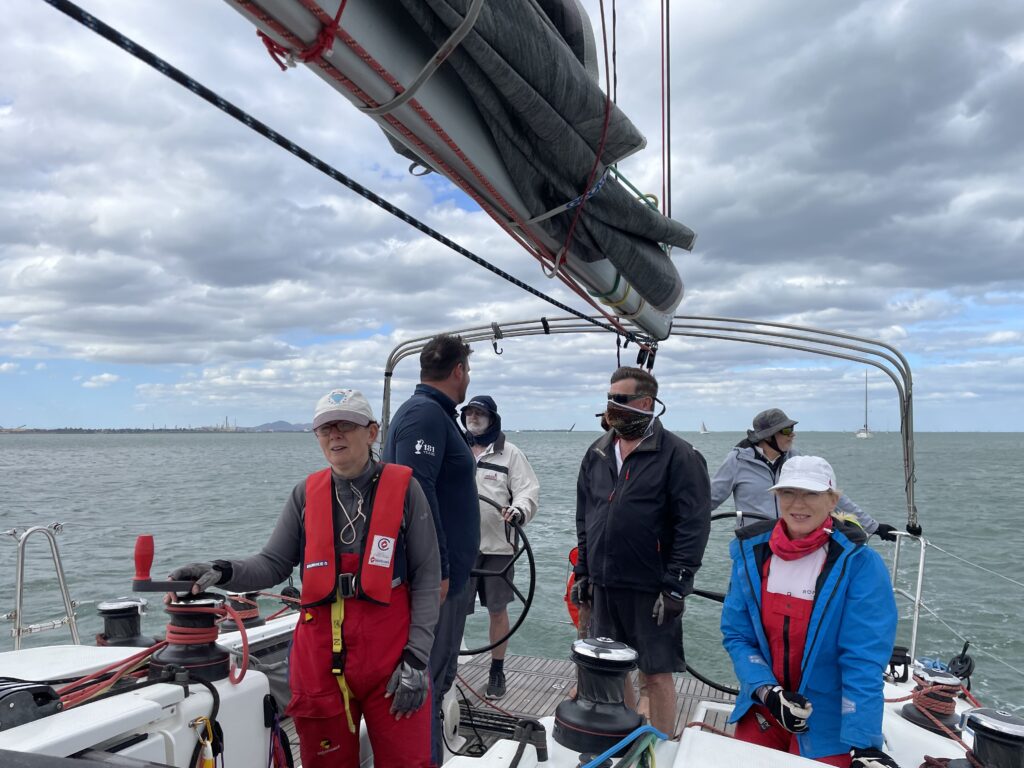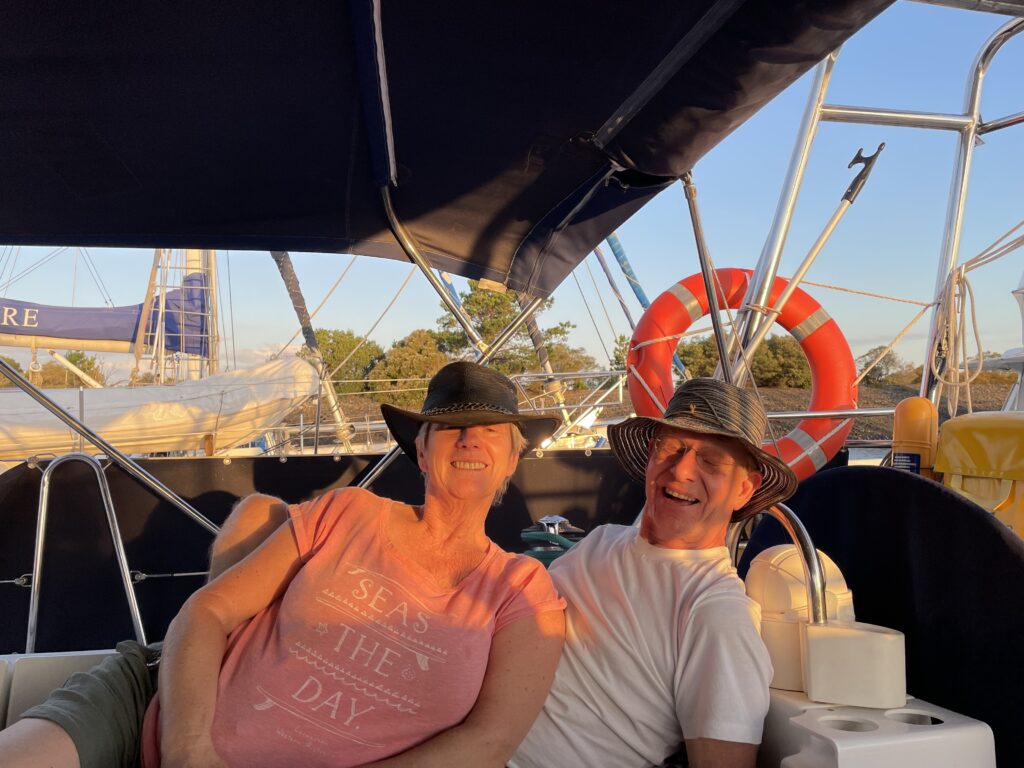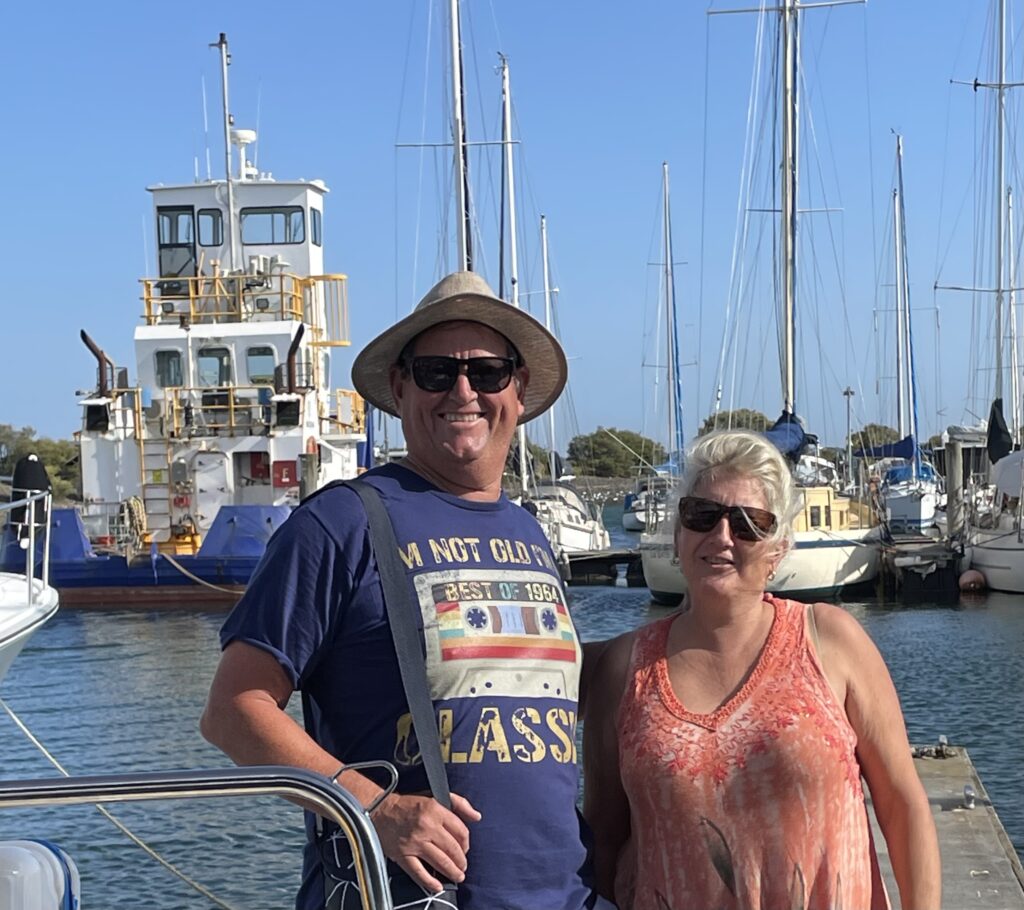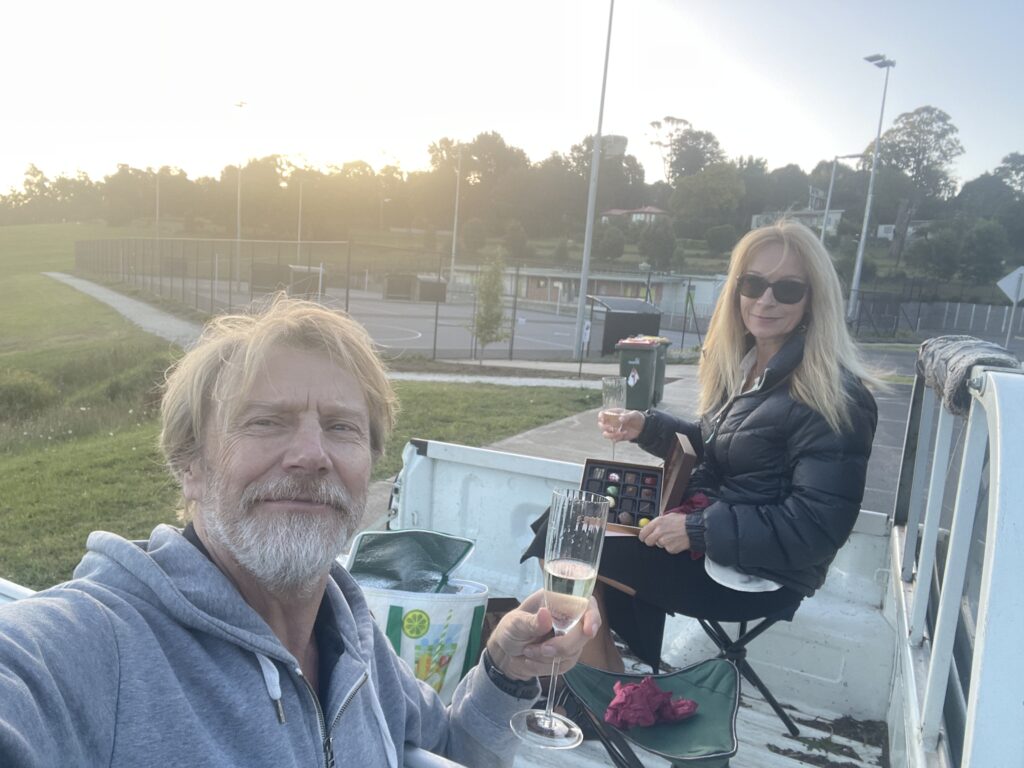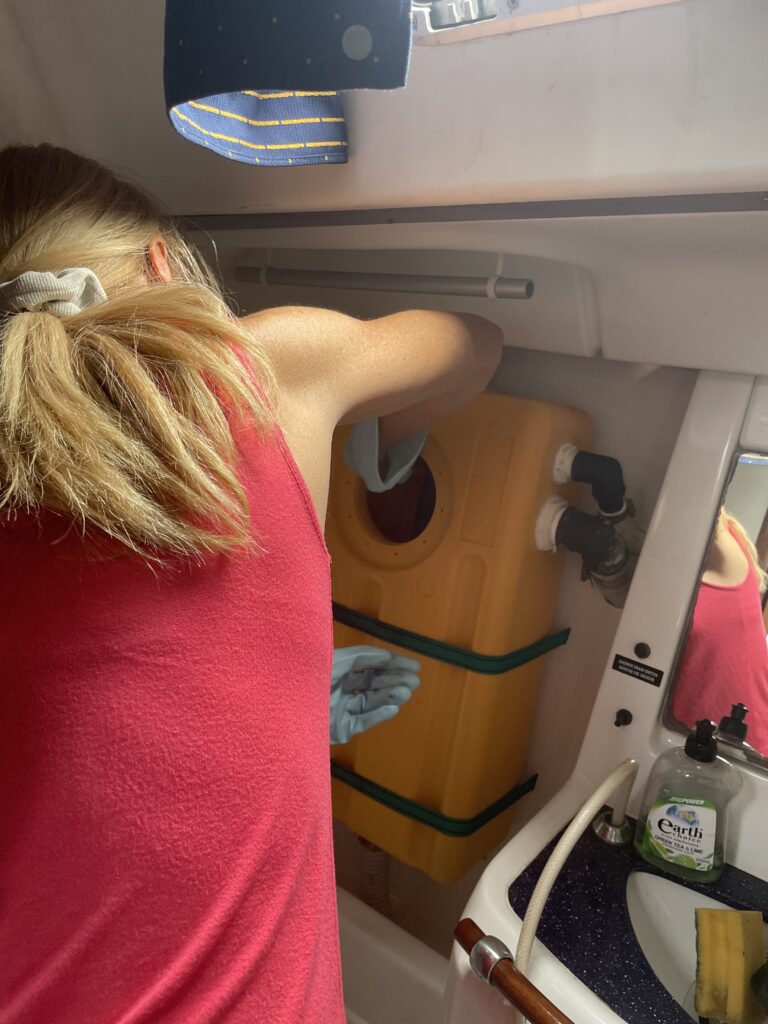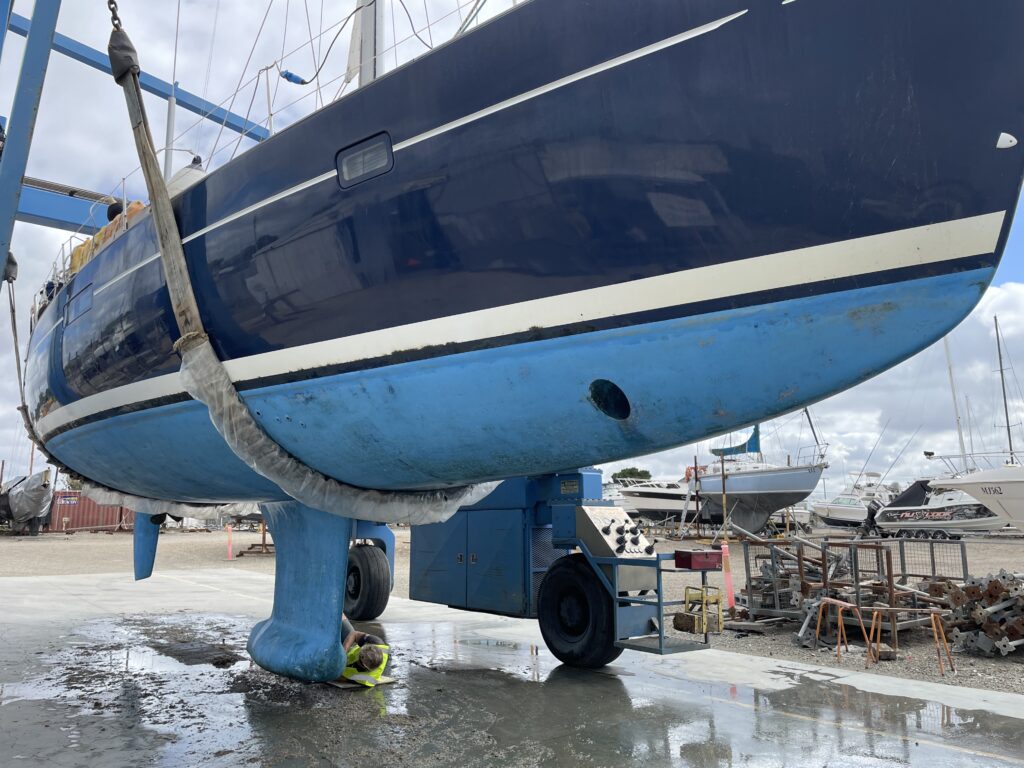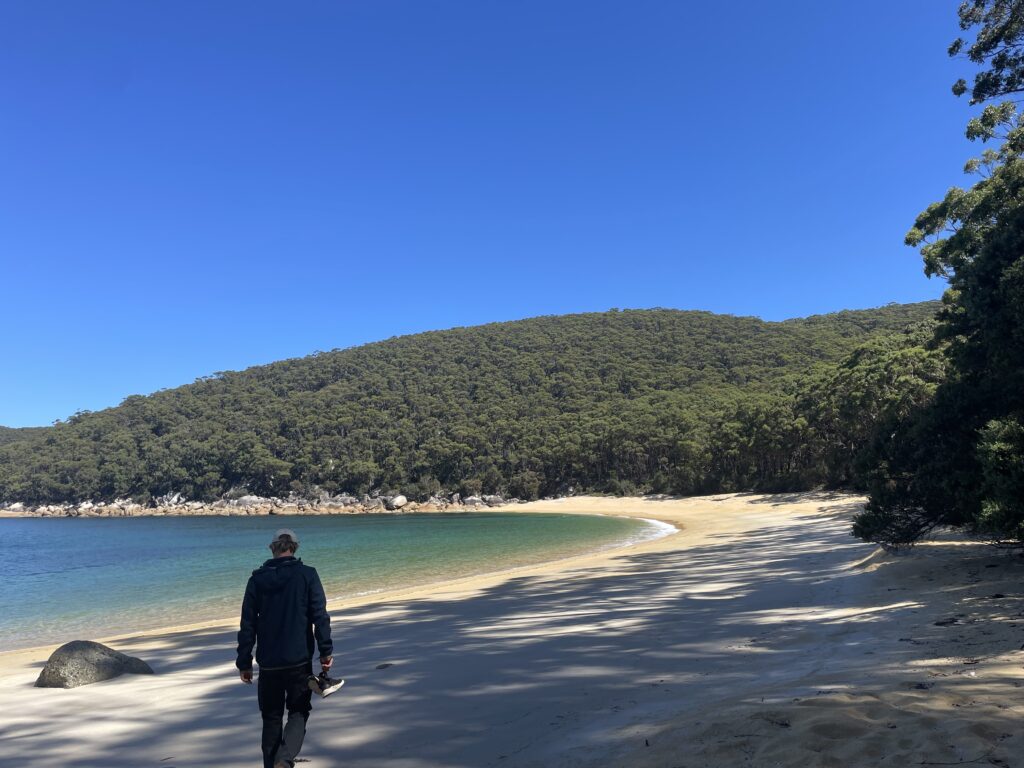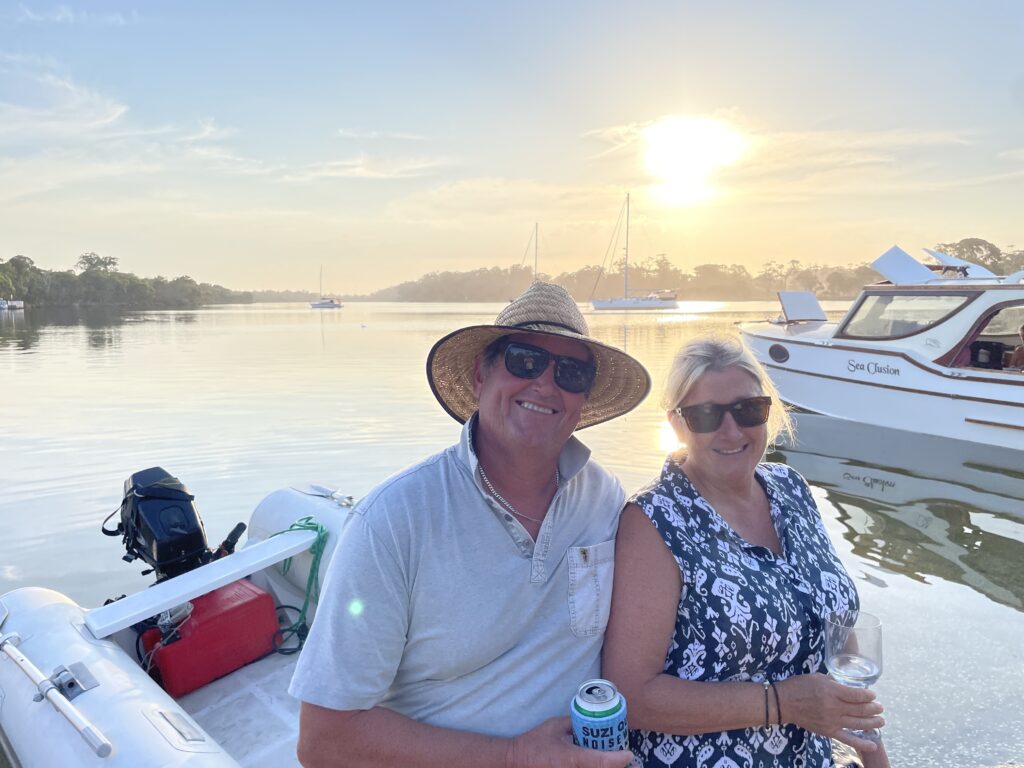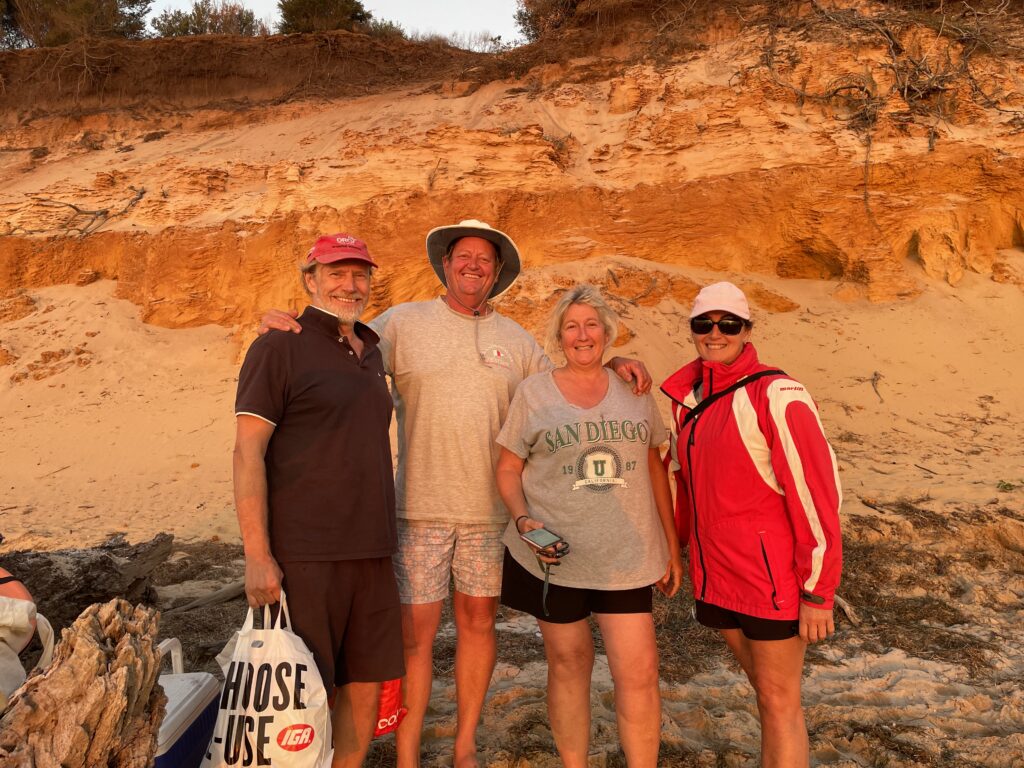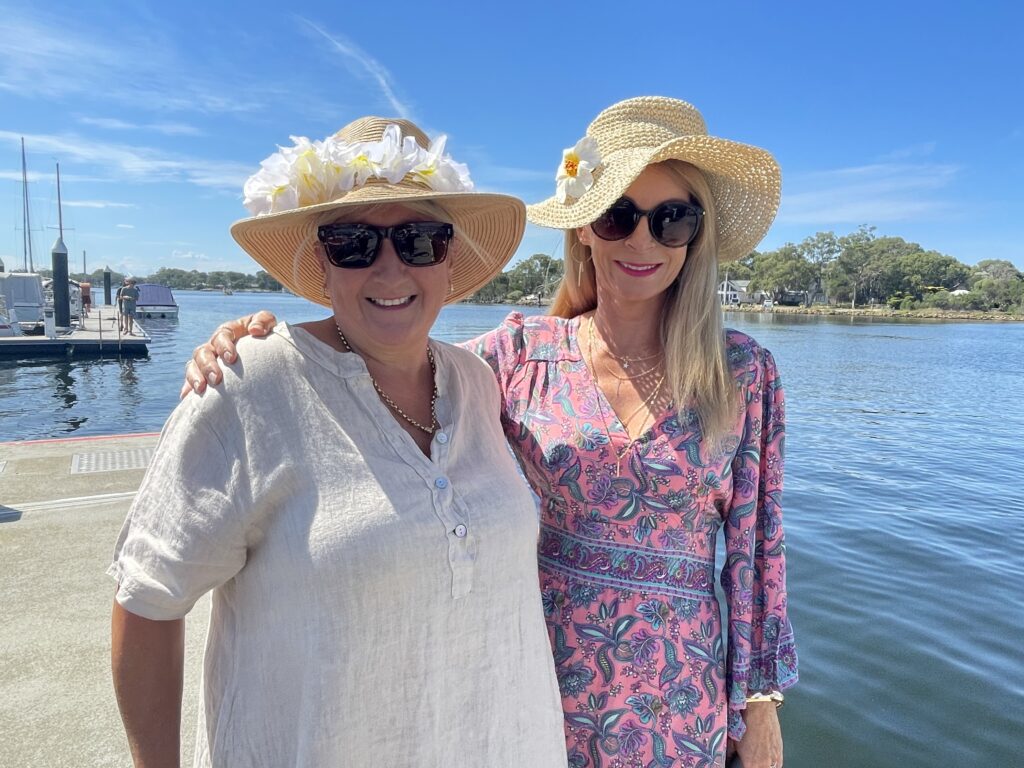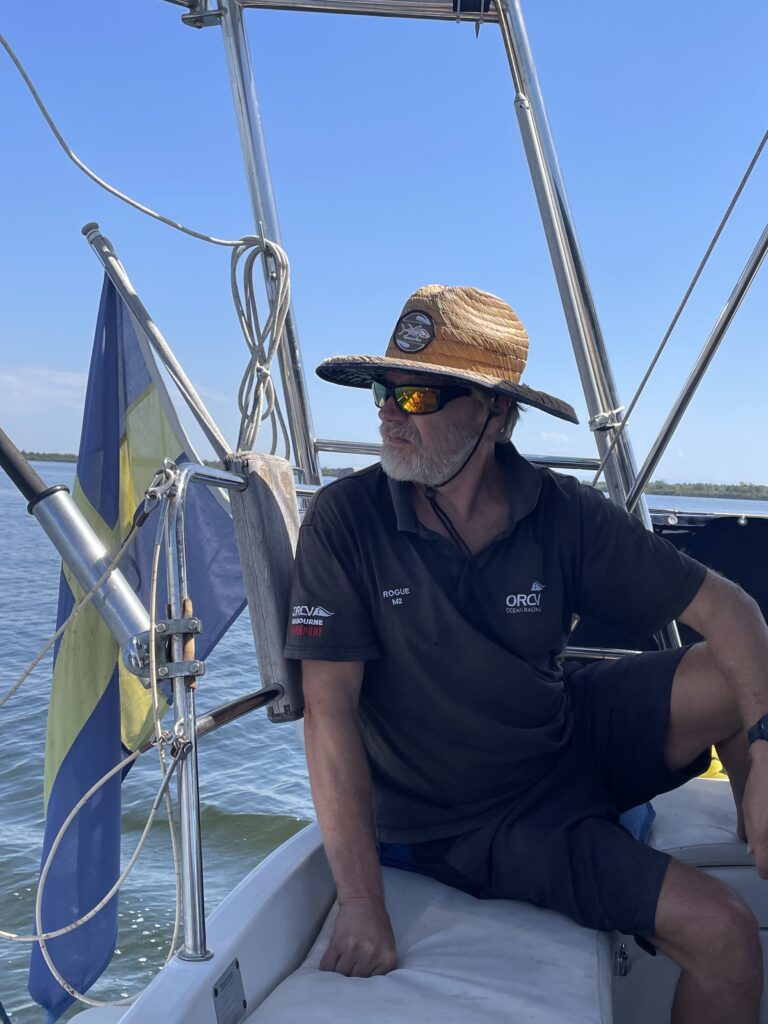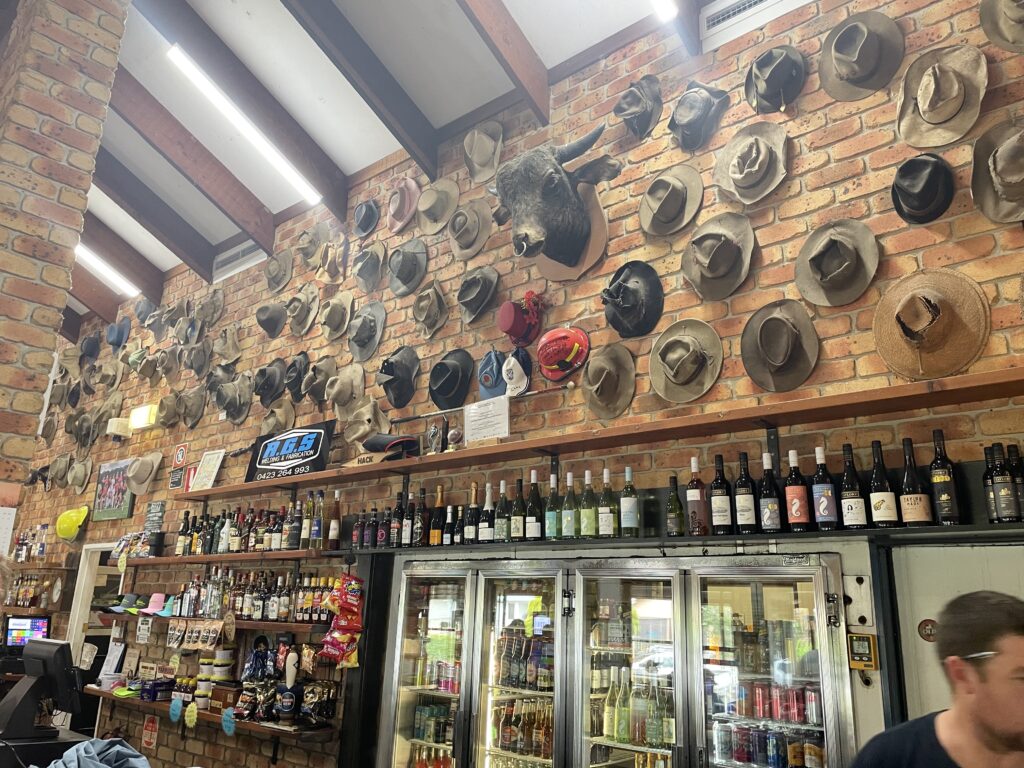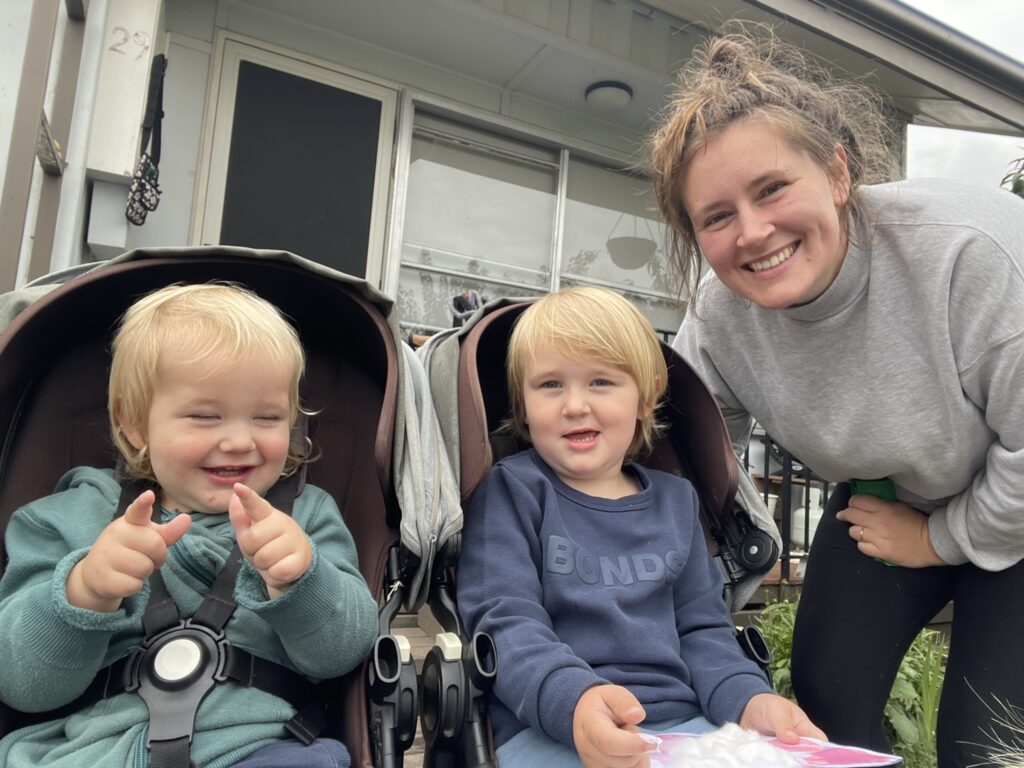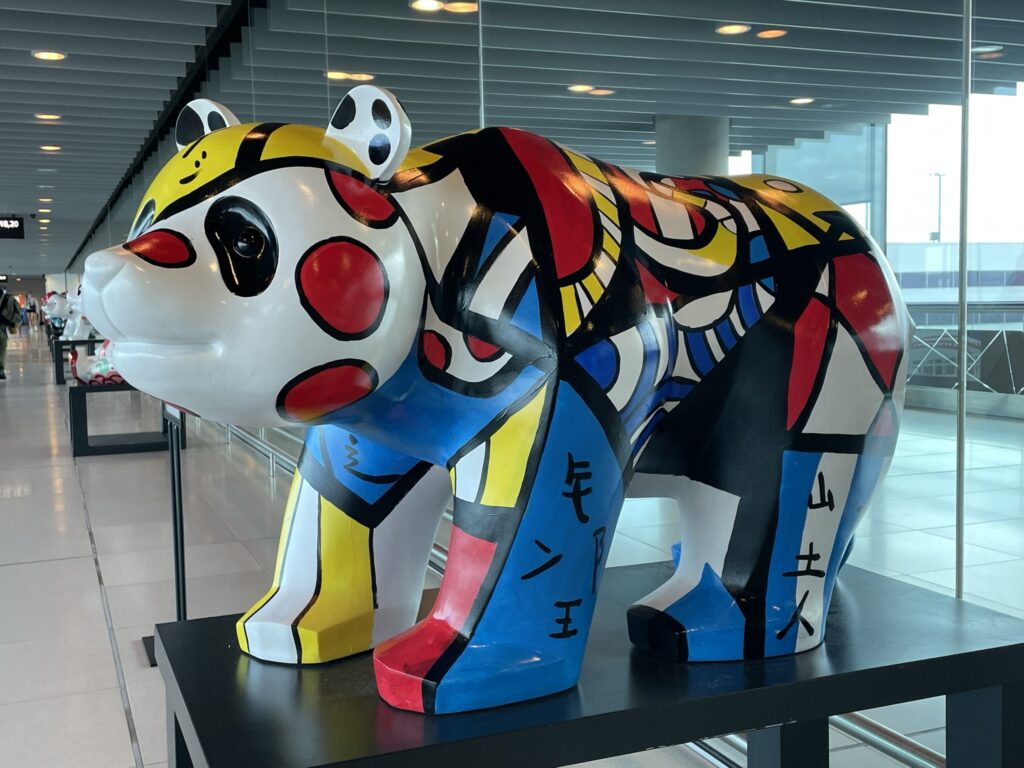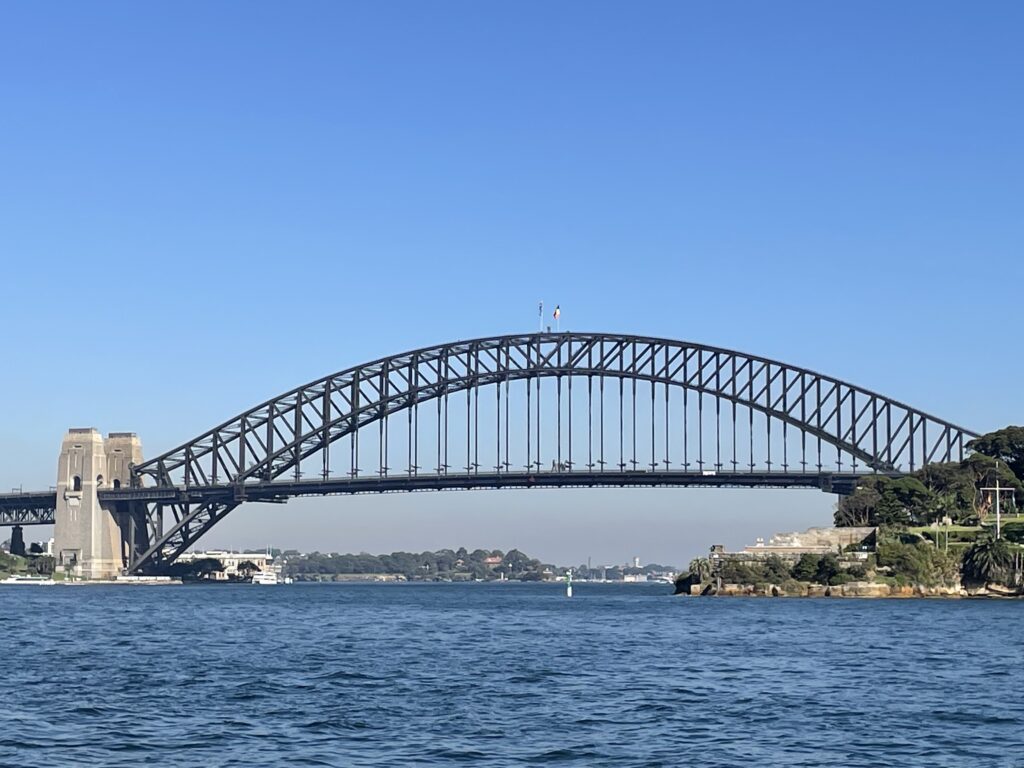
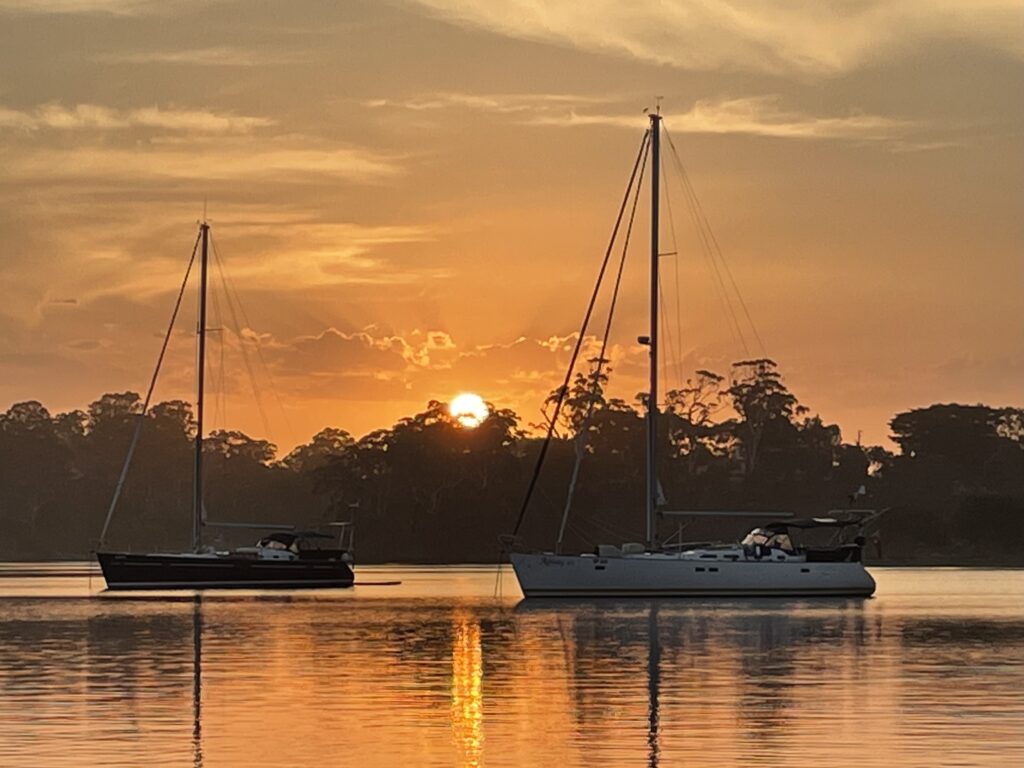
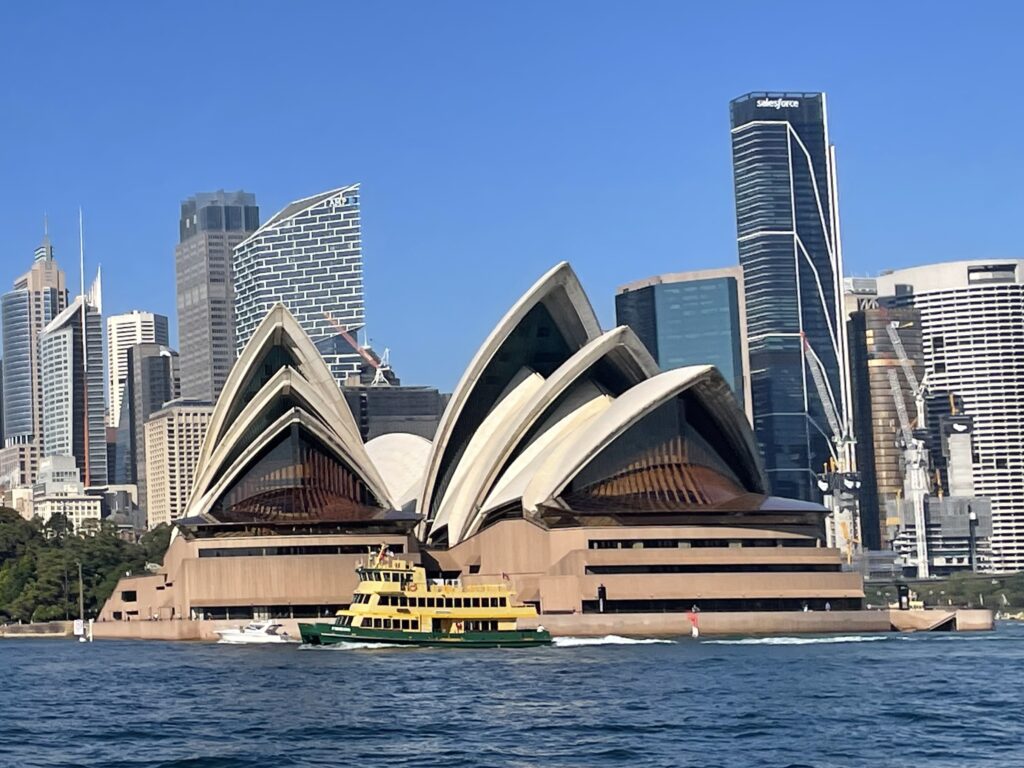
Let’s begin with a modest fact: we’ve sailed halfway around the entire world! It sounds quite marvelous when put that way, and I have to say it like that, otherwise the daily routine of it feels quite ordinary. Provisioning, planning regarding weather, navigating long passages, checking in and out of countries…yada yada yada. Anyhoo, we’ve arrived. Not bad for a rookie and an old bloke.
Since arriving here in Oz late last year, we’ve had Christmas in Australia, lots of family time in both Sweden and Australia, a grandbaby in Sweden, and sailing friends to stay. Such has been the variety of life’s pleasures for the past 7 months.
And now, before we gather moss, we’re casting off again. But before we go, a short summary of the past 7 months lies below.
ROUTE DESCRIPTION:
Sailing from Noumea to Australia was easy compared with sailing down to Melbourne and back up to Queensland, what with the determined East Australia Current, the bar entrances, and the fickleness of Bass Strait. It’s no wonder that relatively few international boats venture further south than Sydney.
However, having sailed this far, it felt important to get to Melbourne.
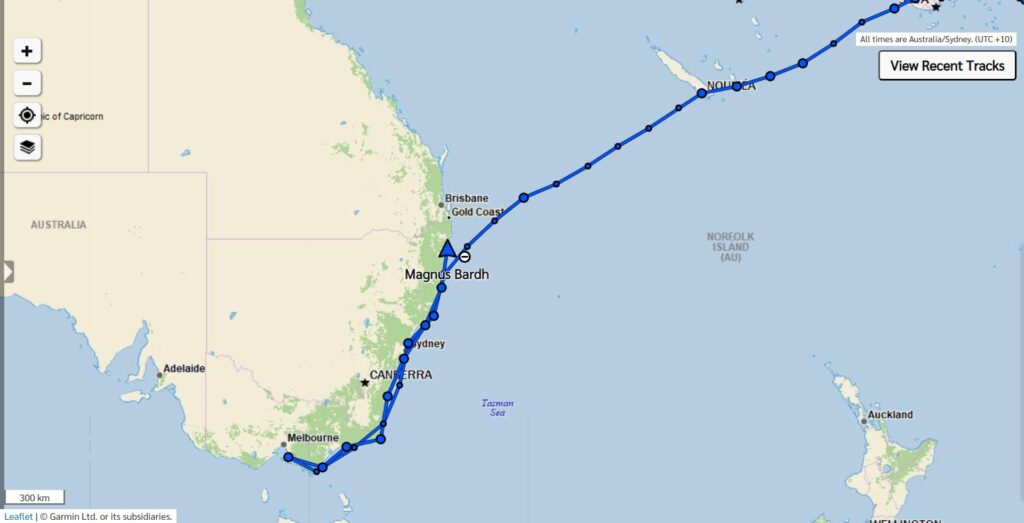
And so, after a short breather in Coff’s Harbour, we pulled ourselves together and sailed south. First stop Newcastle to pick up our Bass Strait crew; Irm and Lucie. As an experienced sailing couple, their company gave us some comfort for the most dicey leg. We made a weather stop in the Pittwater area; America Bay, and had a hot walk to the waterfall in Refuge Bay.
Then we hoofed it down to Eden for another weather stop. It’s a great experience to be tied up to the big fishing jetties, and an exercise in agility to climb on and off the boat when the tide is low. The first step to get up to was about 4 feet above our deck., so one of us would haul the boat in as close as possible while the other stretched up, groaning, to get a toe and finger hold on the huge jetty timbers.
Onward then, to another weather stop at Refuge Cove at Wilson’s Prom. (Which, FYI is more southerly than the Cape of Good Hope!) The Captain needed a quiet think here, so the rest of us trooped off the boat, and walked over the headland to stretch the legs and have a swim. After an early night, Magnus and I got up quietly and weighed anchor at 4am to round the lighthouse in the best conditions. Rough, but it could’ve been much worse. Our crew relieved us a bit later, and after a long wet day we arrived in Western Port that evening. The sight of my daughter and little grandsons waving from the jetty at Hastings certainly brought tears to my eyes. It had been a long time between hugs.
We kept the boat at Hastings until March, when it was time to retrace our steps and head towards Brisbane. During our time at Hastings we made lasting friendships- two of them to be refreshed shortly in Brisbane where we will meet up with both Affinity and Bomoh.
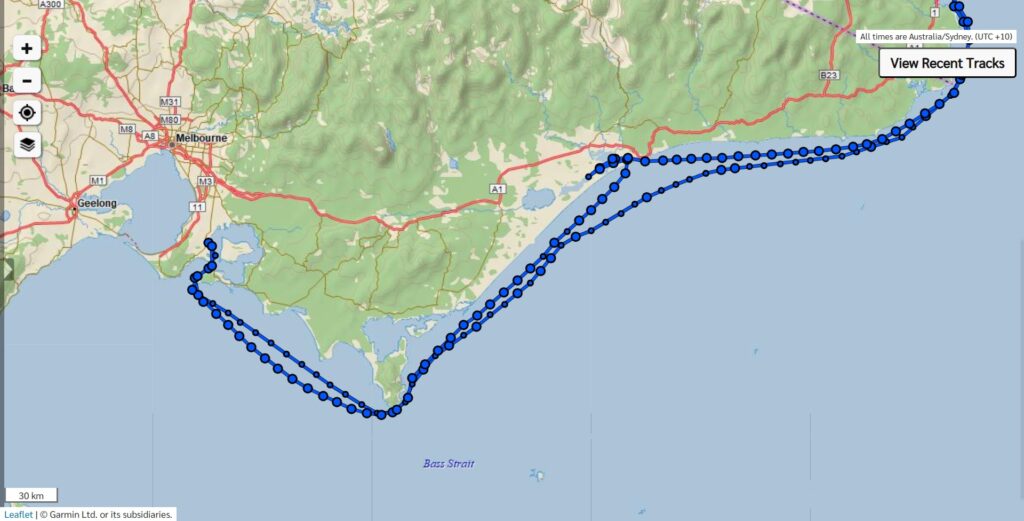
From Hastings we headed for Lakes Entrance, and had a wonderful two weeks there with Affinity, who know the area well and really showed us around Lakes, Metung, Paynesville, and some quiet little arms, just made for lazy afternoons and sundowners.
Eventually, when the weather allowed, we both struck off for Eden. Another pleasant stop there, then onto Port Stephens. We loved this little place, well equipped for boats, but had to move quickly onwards; flight bookings from Brisbane looming
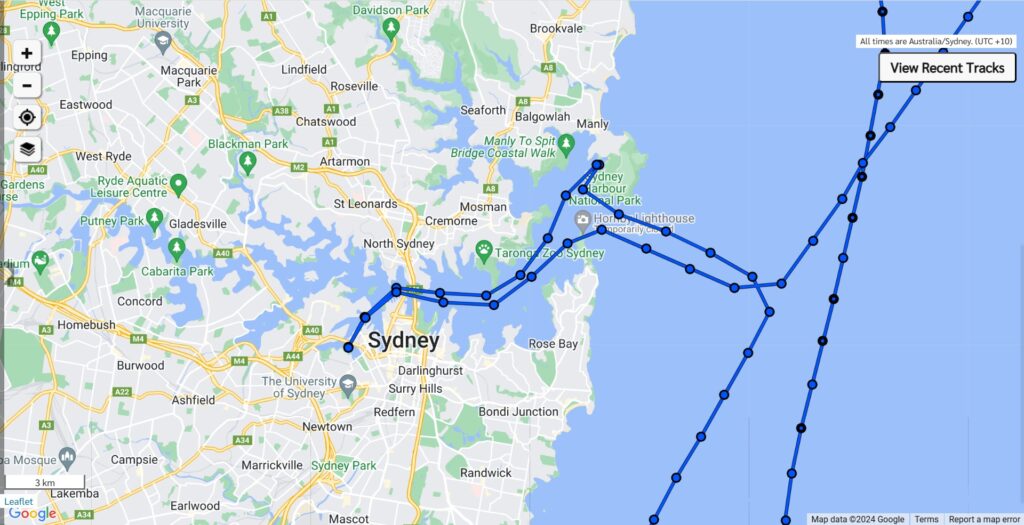
On a whim, we made a sharp left into Sydney Harbour, and after a night at anchor in Manley Bay, we headed across towards a couple of iconic Australian landmarks, the Opera House and the Harbour Bridge. Sailing in Sydney Harbour was incredible, and we had to shake ourselves out of our enthrallment to navigate to Blackwattle Bay, next to Rozelle Bay. Once there, we found a plum anchorage just outside the Glebe Rowing Club. Being right in the thick of things, we knocked ourselves out running ragged around Sydney for a couple of days. We visited the Sydney Fish Market, Darling Harbour, and the W Hotel. We walked through the Rocks district, Circular Quay, Opera House, the Man O War steps at Farm Cove, Botanic Gardens, Martin Place, George Street, Angel Place, Queen Victoria building, Hyde Park, and topped the day off with dinner at the revolving restaurant, now called SkyFeast. A worthwhile impulse stop!
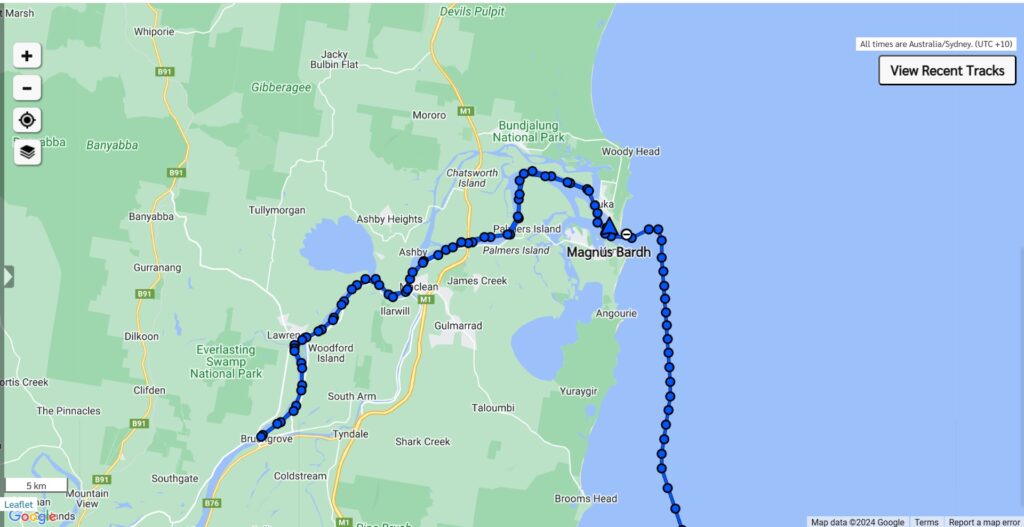
The Clarence River called next, and the bar entrance had to be timed, as they do, as did the lifting bridge at Harwood. Avoiding the crab pots required diligence on our way to meet the Shaggers at Maclean, and we joined them to Lawrence, Brushgrove and Cowper.
From here, we came back downstream to Yamba, intending to head to Brisbane. As things turned out, we instead took a mooring at Iluka for a few months while we left the boat for Morfar and other duties. I am writing from here, as we prepare to sail again.
NEW EXPERIENCES:
- Magnus becoming a grand father! Dear little Vera was born in April, and it is fair to say her Morfar is absolutely, completely, and rightly besotted! And I’m a little bit that way myself!
- Almazul being “home.” (Well at one of them anyway.) She was bought in Spain, so this is the first of two homecomings she will make. Sweden next!
- Having sailing friends come to stay with us. It’s a very nice feeling to have met in far flung places, shared incredible experiences as well as tough times, and then get together in my lounge room! Surreal, but wonderful. We had SV Gemma over Christmas and SV Carina in the chilly Melbourne winter. 😍
- Running in a “Craft Run” with my daughter Bonnie and partner Craig in Townsville. It’s kind of like a parkrun, but with beer. Great fun!
- Sailing our own boat in Australian waters. So many lovely places to go!
- Managing our first bar crossings. The first one into Lakes Entrance was skillfully undertaken by the Captain, with the moral support of the experienced Affinity Captain.
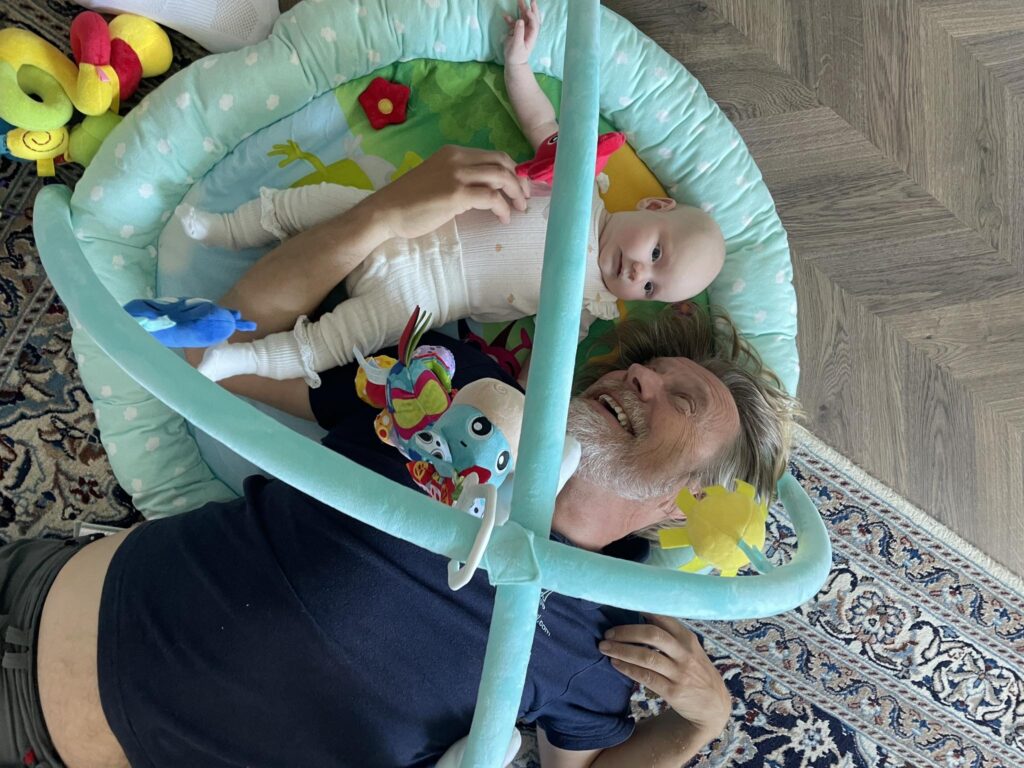
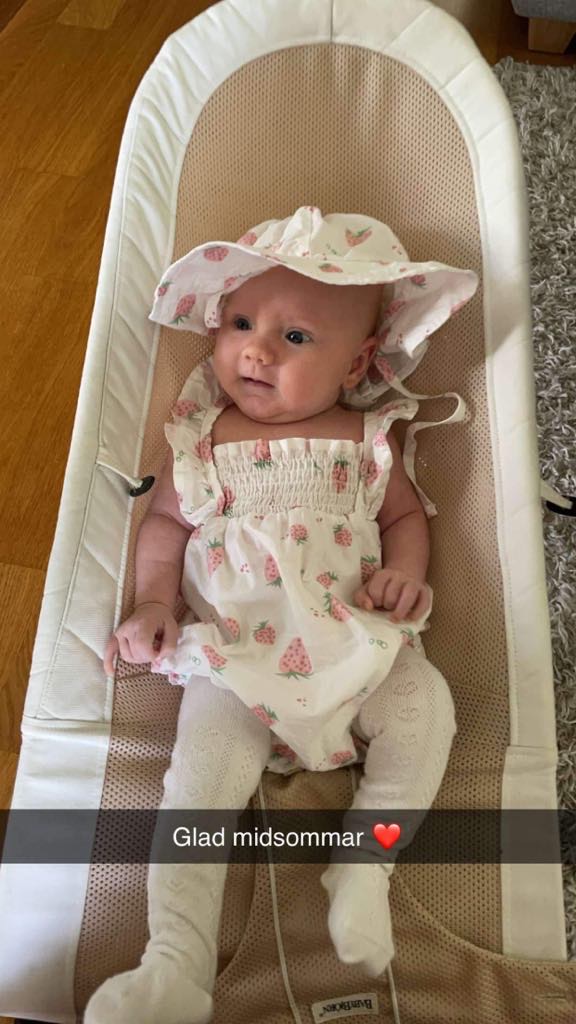
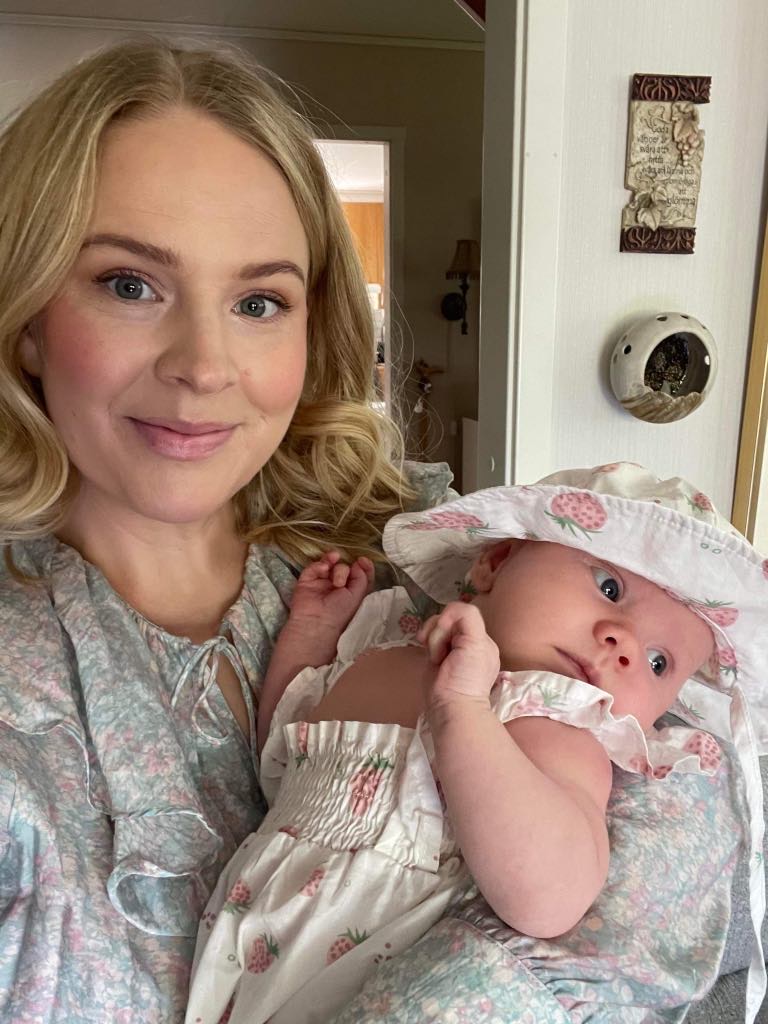
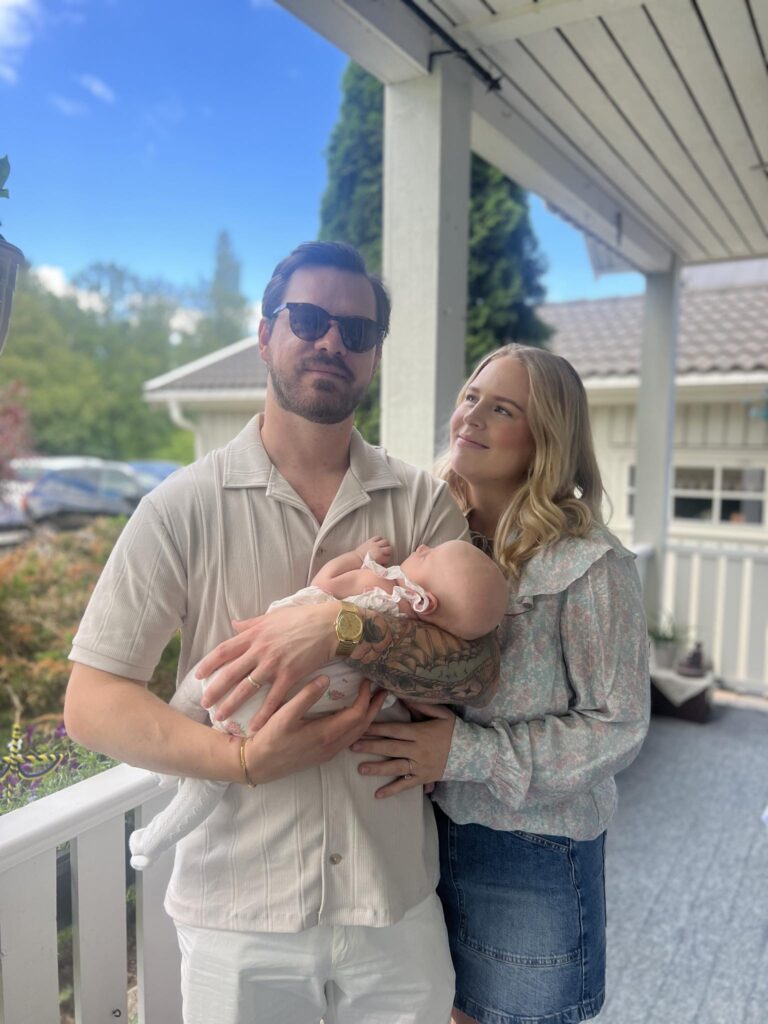
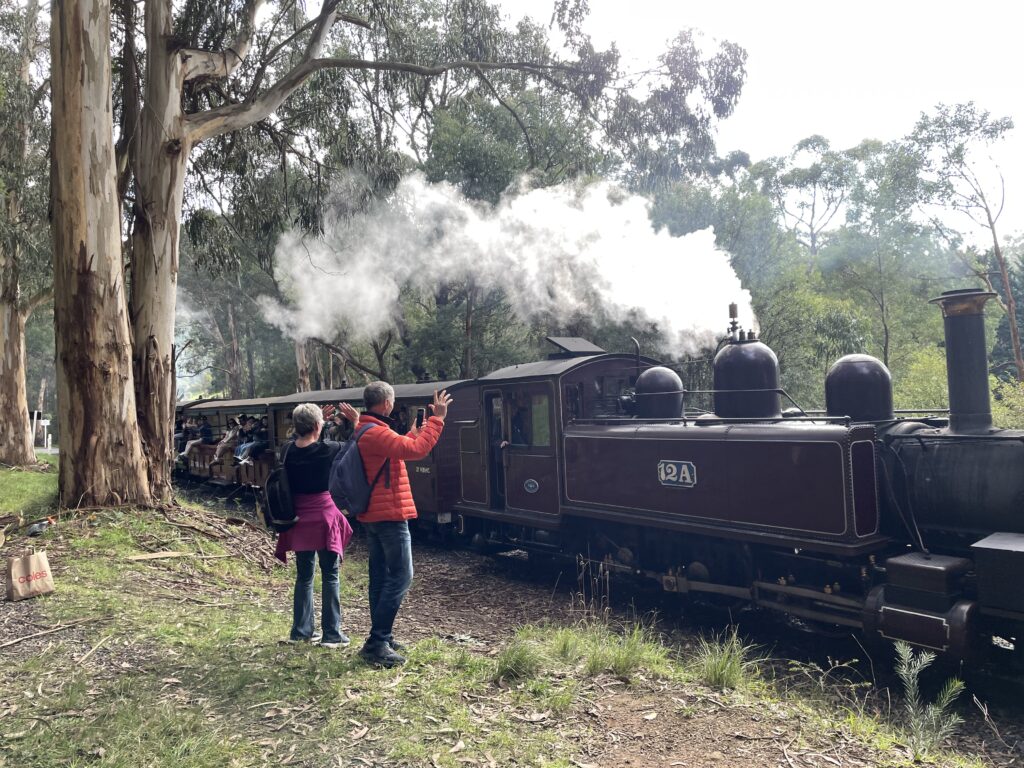
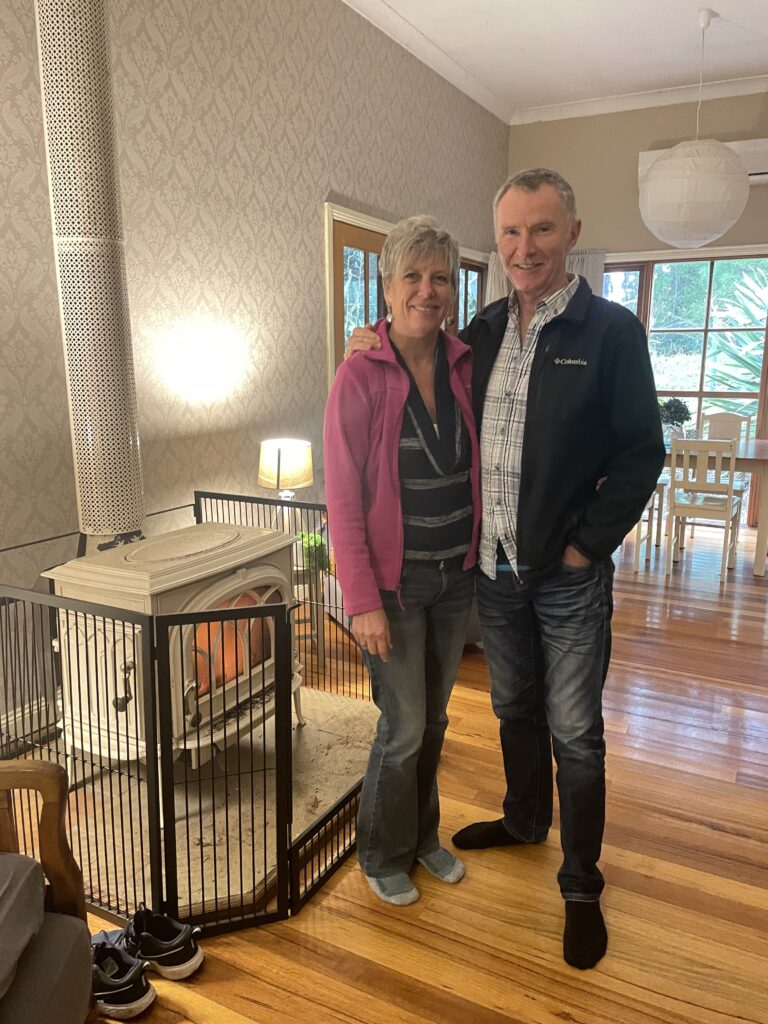
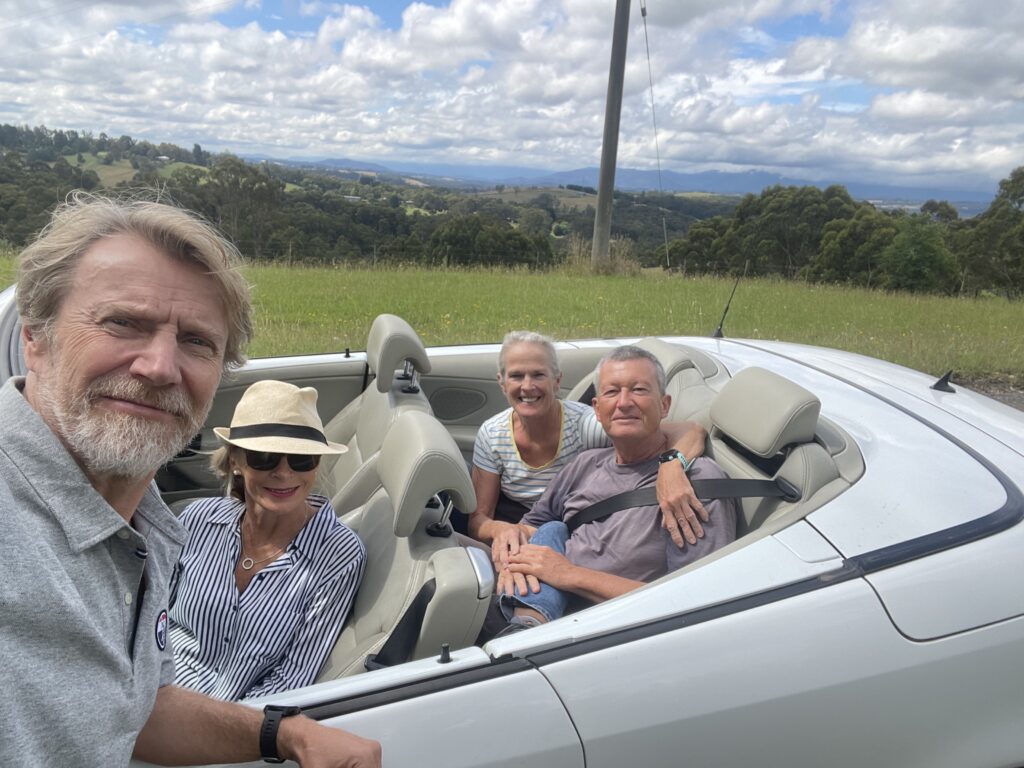
BEST:
- The birth of baby Vera. She is gorgeous, and has brought extraordinary joy to everyone around her. (As well as some sleepless nights for her parents of course.) Magnus has taken to grandparenthood like the proverbial duck to water. As he should!
- Hanging around with family, including the Aussie grand kids. At 18m and 3, between them they form a loving, cuddly, curious, busy force of nature! Beau is discovering the power of “no”, complete with a little foot stamp and dropping off the shoulders. 🥰😂 Nate has figured out that those funny shapes (letters) mean something – and asks what signs say, and is good at reminding us of any newly learned rules, as stated on said signs!🥰😂
- Meeting yet more lovely sailing friends! When people you’ve just met invite you to sail with them and stay onboard for New Years Eve, you know they’re good eggs! SV Affinity also happens to be the same boat as ours. So much to love about these guys.
- Having the luxury of a home base and car while doing boat repairs and maintenance. Running the car down to Bunnings in 5 minutes is a luxury, and certainly speeds things up a bit!
- Seeing new parts of Australia, and well known parts from the sea. I’ve enjoyed many holidays at Wilson’s Prom; and passing the light house at sea was spectacular. The Gippsland Lakes, Port Stephens, and The Clarence River were highlights, and sailing past the Sydney Opera House and under the Harbour Bridge was unforgettable.
- Meeting fabulous folk from the Shag Islet Cruising Club, of which we are new members. We joined a bunch of “Shaggers” on The Clarence River, and what fun we had. Dinners, outings, bbqs, and games! Lovely people with an astounding depth of local knowledge, and an equal enthusiasm for sharing it. We spent a fun filled few days with this vibrant bunch, and hope to bump into them again.
- Observing the transition from a chilly late spring to a lush, warm summer in Sweden was breathtaking. Life springs forth! Cafes throw open their shutters,spring bulbs bloom furiously, hedges sprout leaves before your eyes, enormous boxes of strawberries pop up on every corner, and people emerge to bask in the sunlight, sunning their faces on carefully angled benches. Boats are in the water, flags flying – summer has arrived!
- A whole year of celebrations in one evening. In true Anki and Janne style, they concocted a dinner that encompassed all the celebrations that we had missed in the year we have not seen them. Swedish Midsommar, Kräftskiva, Jul, and of course all the accompanying fun and frivolity. We sang and drank Schnapps, and sang some more, and ate some more..
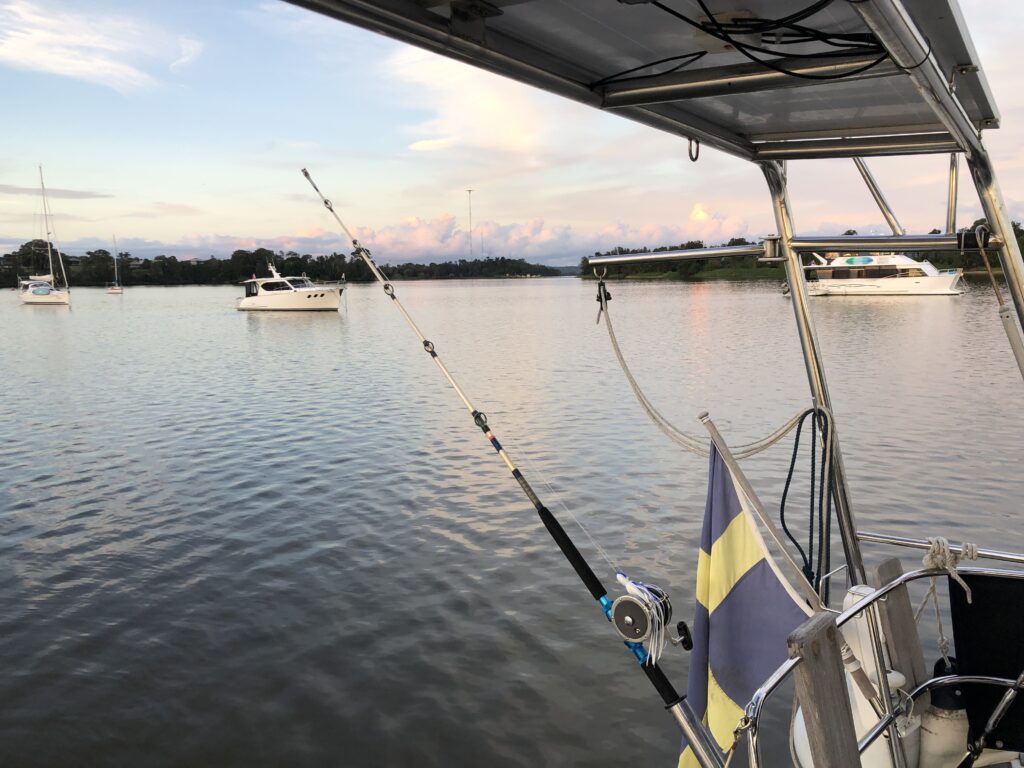
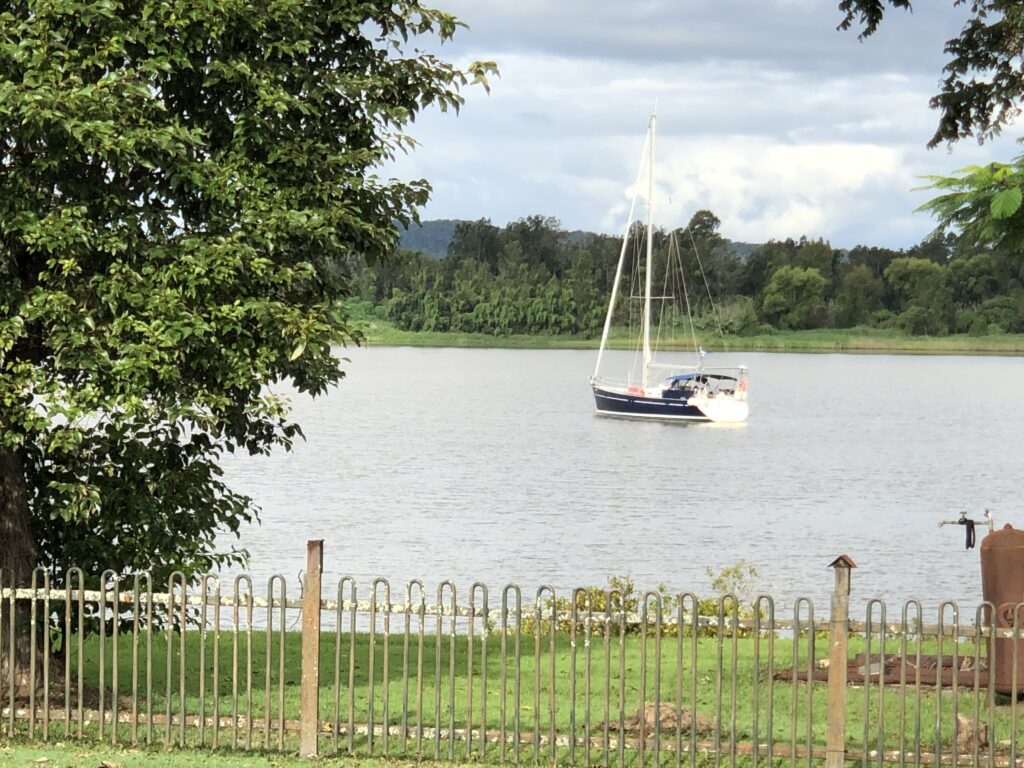
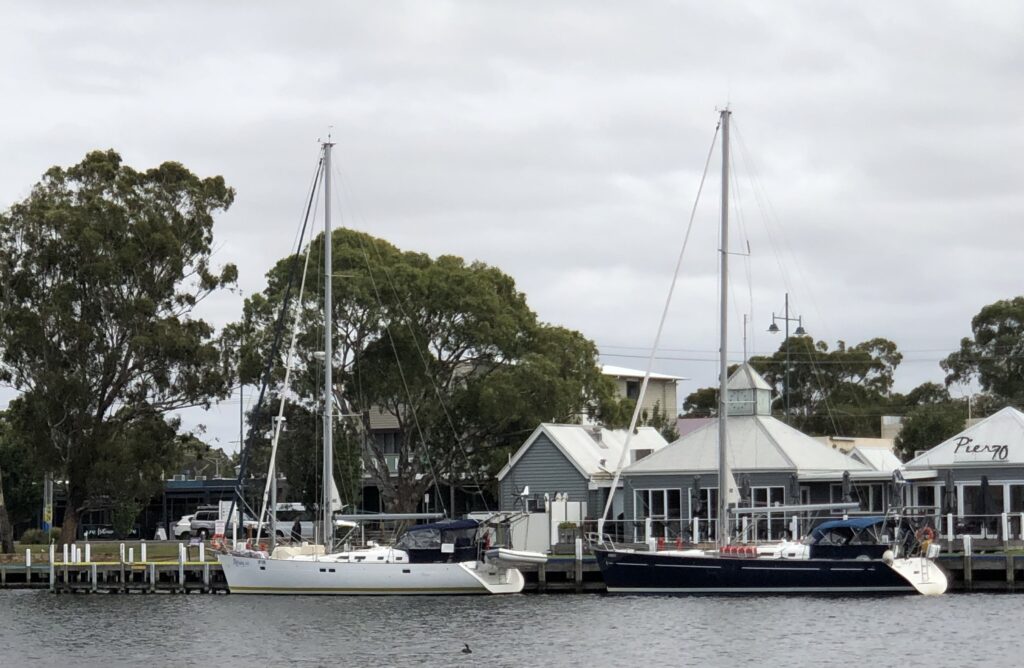
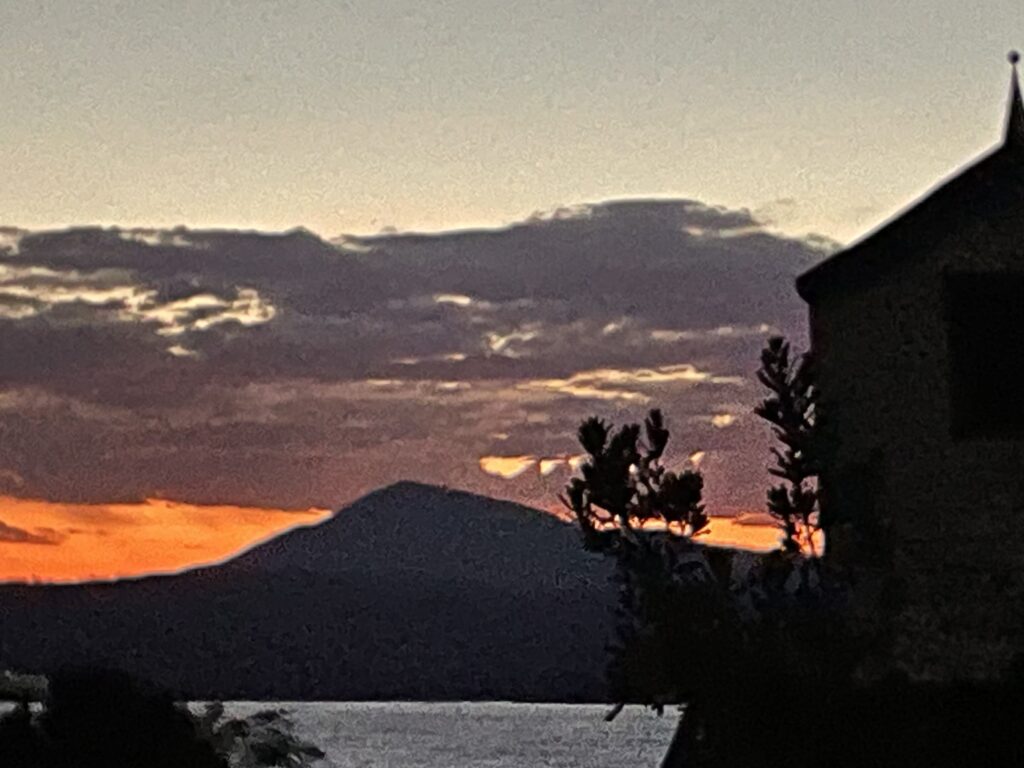
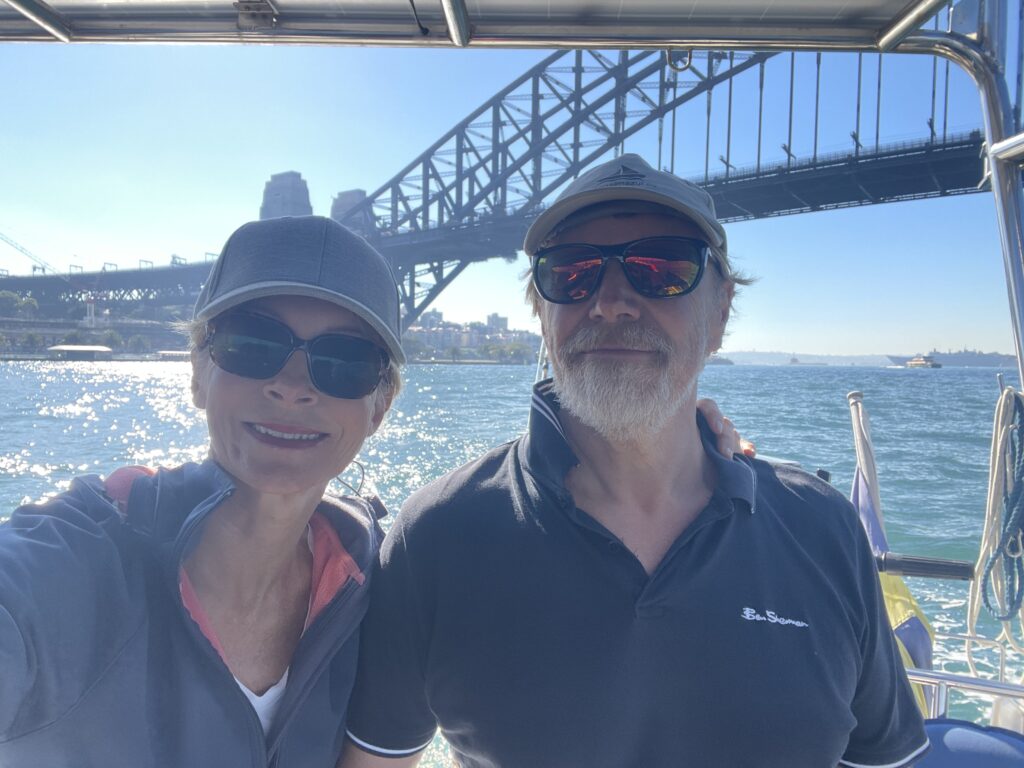
Sydney Harbour Bridge!
WORST:
- Leaving. Family. Again.
- The East Australian Current. We did our best to stay out of it, but at times motored into 3 knots of it as we headed north. It could have been worse.
FUNNIEST:
- Shaggers Games. At a Shaggers BBQ, our generous hosts organised some interesting games after lunch, and being newbies to the crew, we were invited to play many of them. Magnus became very intertwined with Sally and two lengths of string, and I proved rubbish at the Caber Toss, but not bad at the Haggis Throwing. (Scottish heritage…?)
- Accidently torpedoing Gary (from Affinity) as he stood unsuspectingly on his stand up paddle board. This is only funny in hindsight, because at the time I was excruciatingly embarrassed at my bad manners and lack of control of my own board as it shot towards him, combined with sudden lack of voice to at least warn him of the imminent hit. Gary, being the sportsman he is, took it all in his stride with merely a graceful kneel. (Well down onto all fours actually!) I was relieved he managed to avoid falling in – that would have been the worst!
- Eyebrows…. getting them “groomed” in different countries is often amusing, this time snort laugh kind of amusing. You know when you first get your eyebrows “tinted” (such a soft sounding word for such startling results) they are often pretty thick and dark; think Frida Kahlo or Groucho Marks. On this occasion I was smartening myself up in preparation for some land based guests. (“land based” meaning “well groomed” people; not cruisers like us) So off I went to the eyebrow lady and she set to work. Seasoned brow groomers will know that when the brow lady offers you a wee glance in the mirror afterward, it is not really worth looking too hard because A; what can you do about it, and B; you know that “this too shall pass” in a day or two. (Also, as self inflicted temporary disfigurement – I don’t think one is entitled to complain.) So it was only afterward in a shop I caught sight of myself in a mirror, and startled by my eyebrows; snort laughed loudly! This kind of laughter was repeated later that evening on a video call to another boat, who also snort laughed at the sight of my Groucho brows. Glad to be of service!
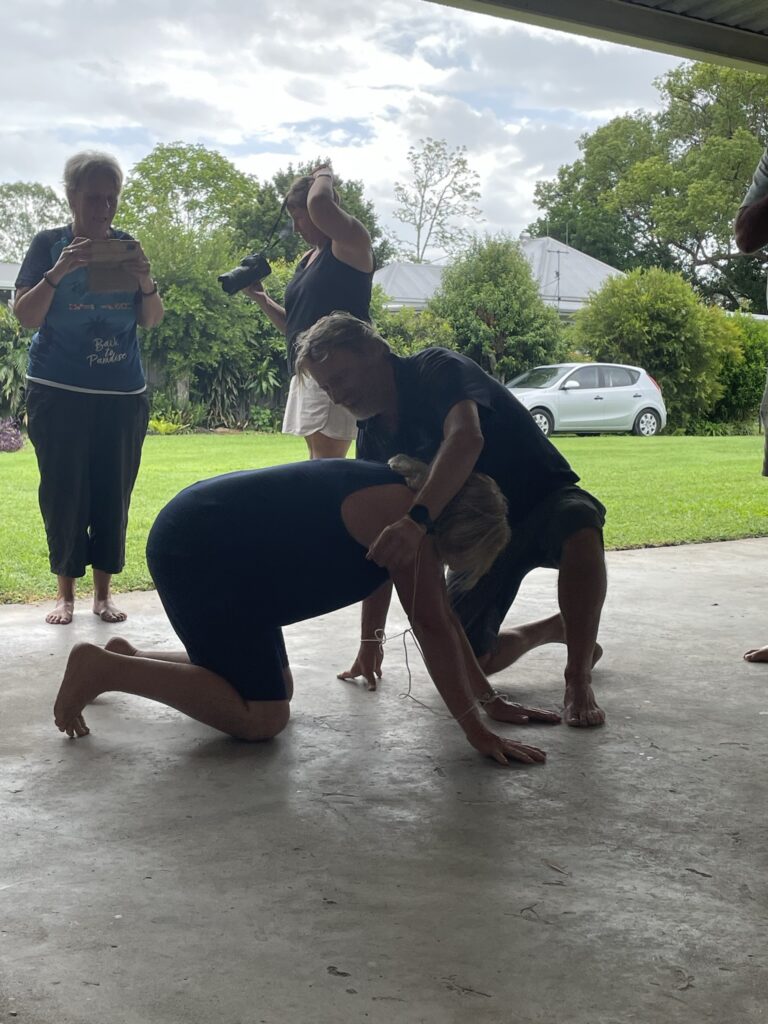
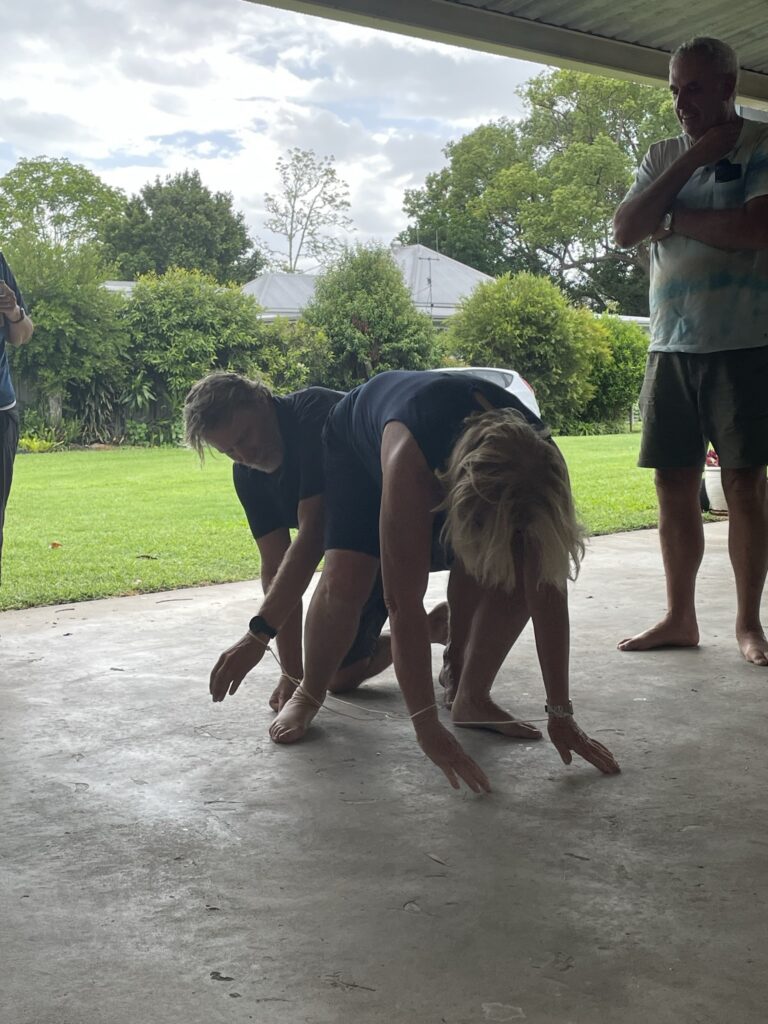
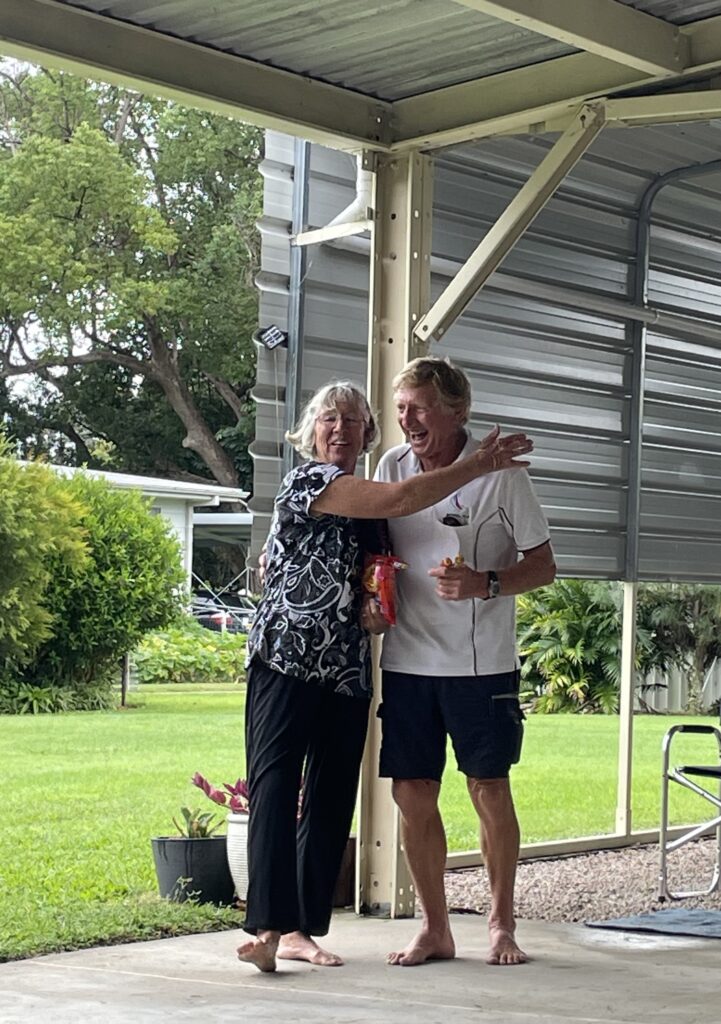
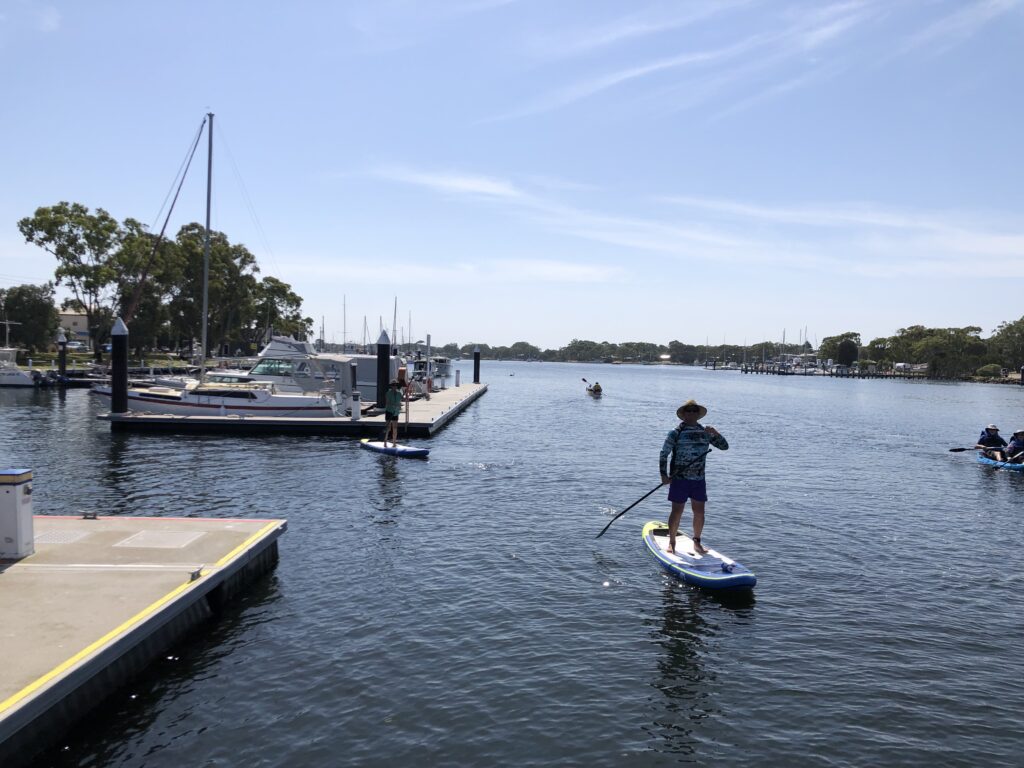
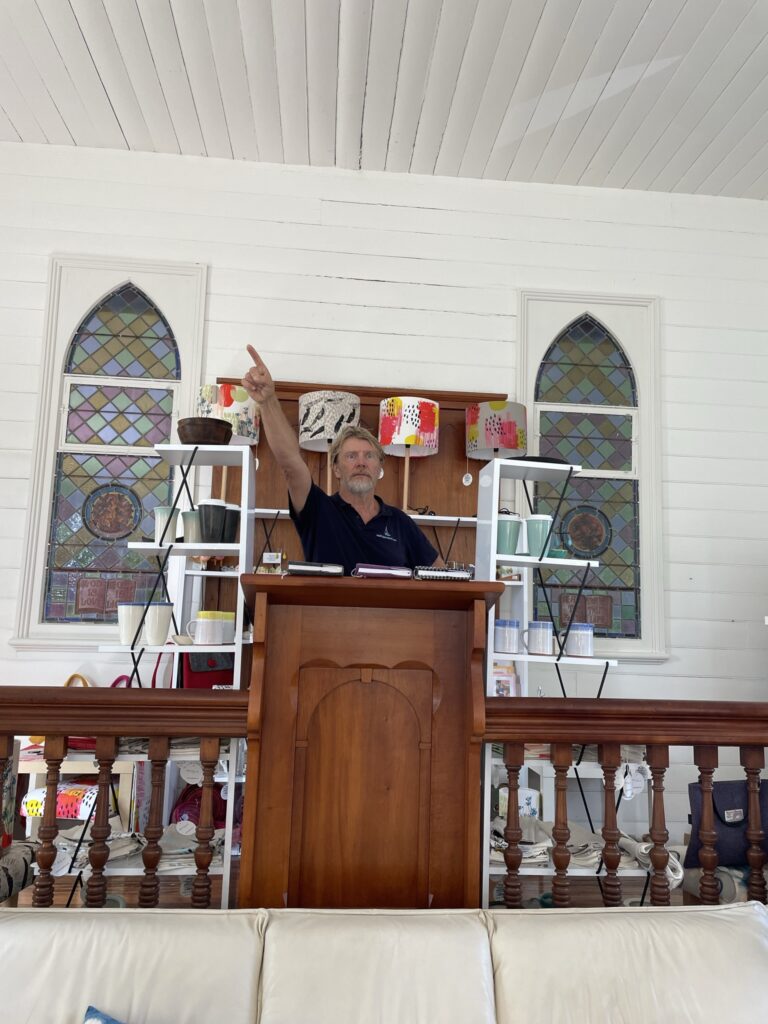
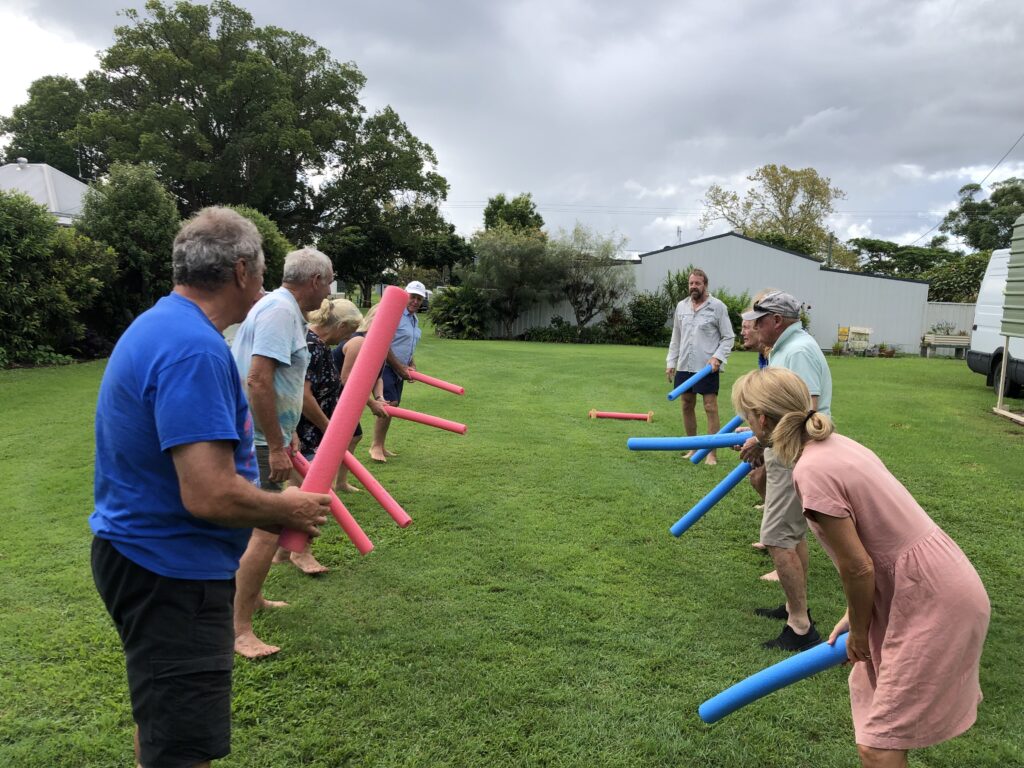
FOOD AND BEVVY HIGHLIGHTS:
- I will allow the pictures to paint a thousand words.
- Some honourable mentions however, did not make it to a photo, including Betsy’s potato salad at Christmas, James’ roasted garlic tossed pasta dish at home, fabulous dinner with Alex and Annika, seafood on Affinity, Christmas fare. No doubt I’ve missed many…
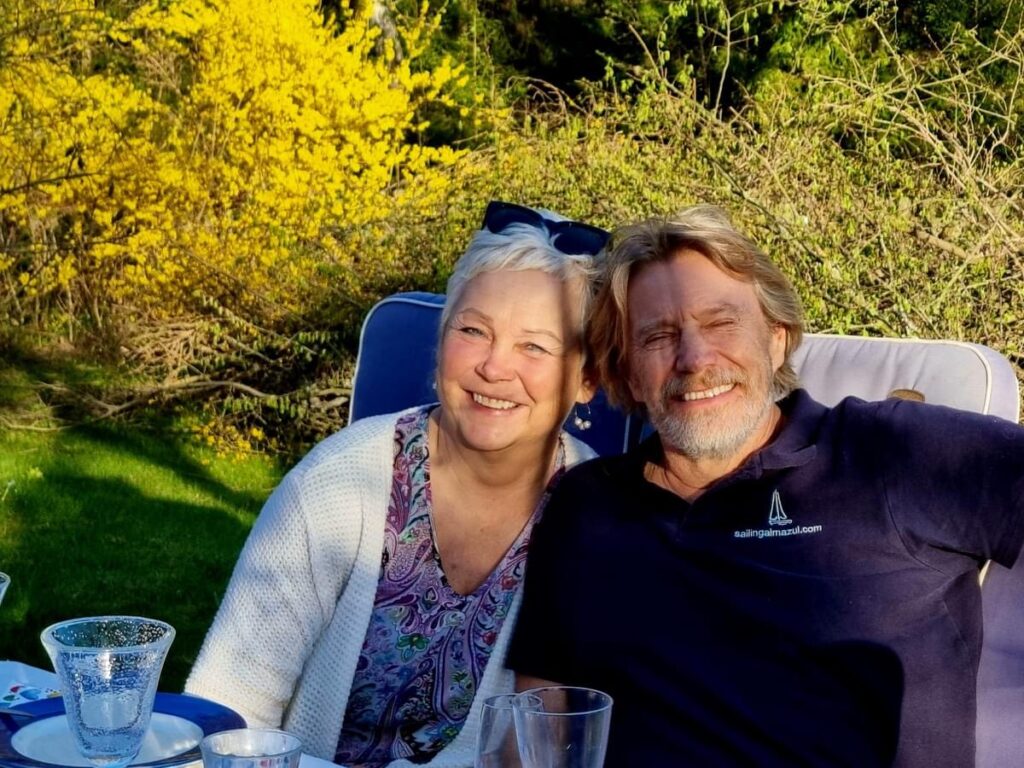
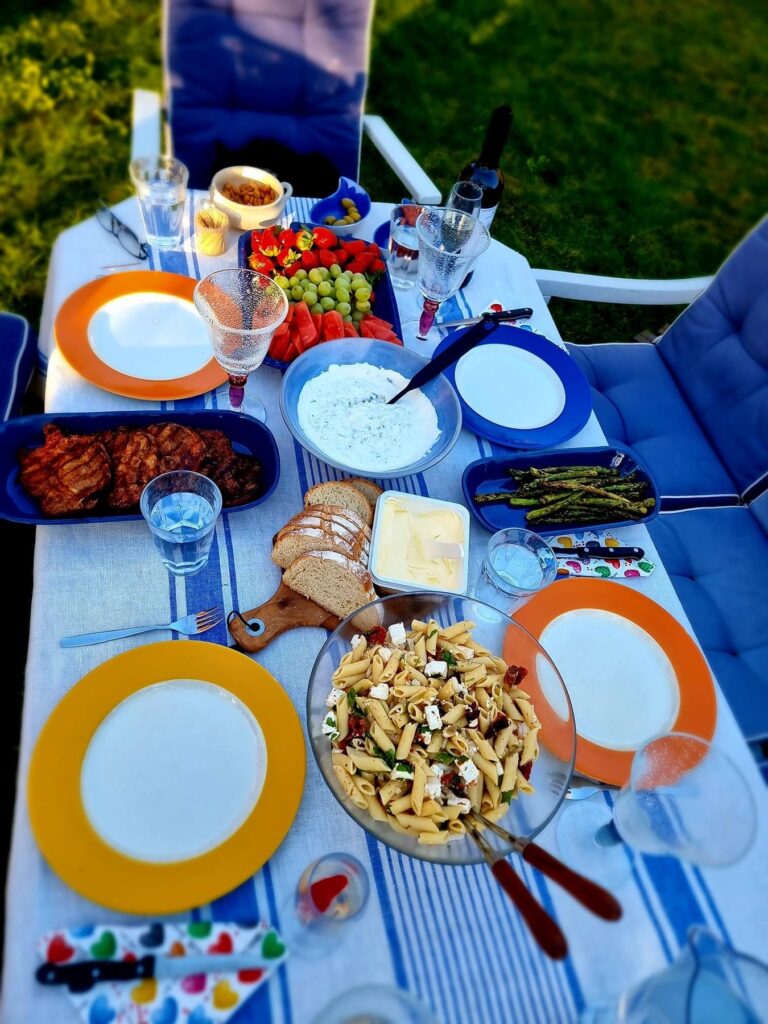
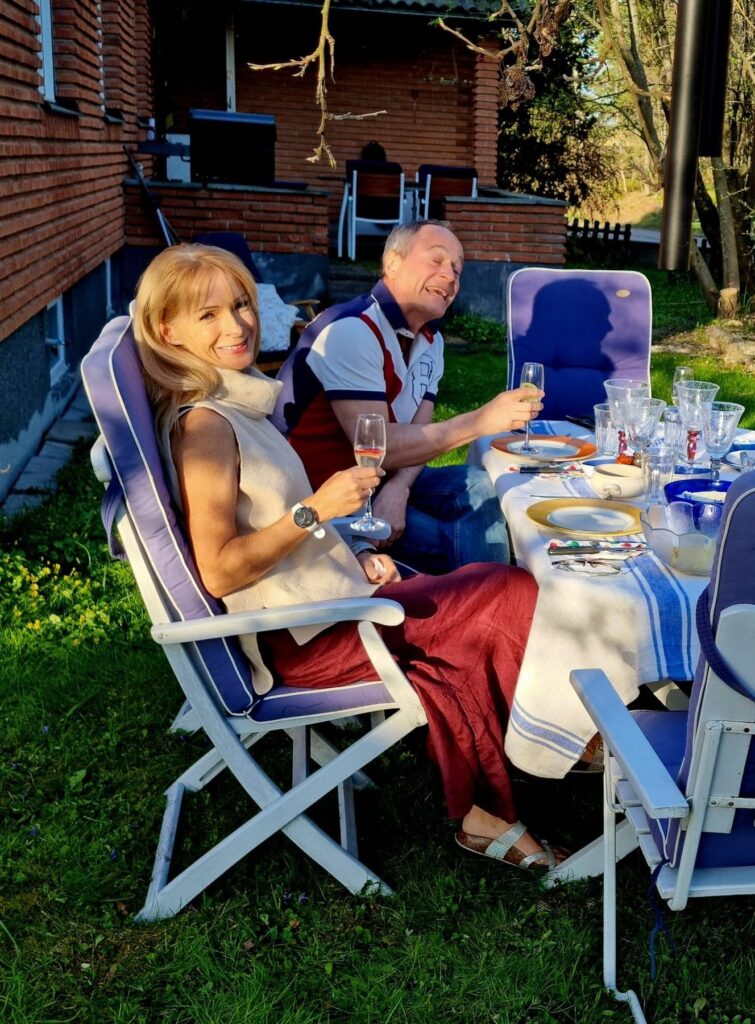
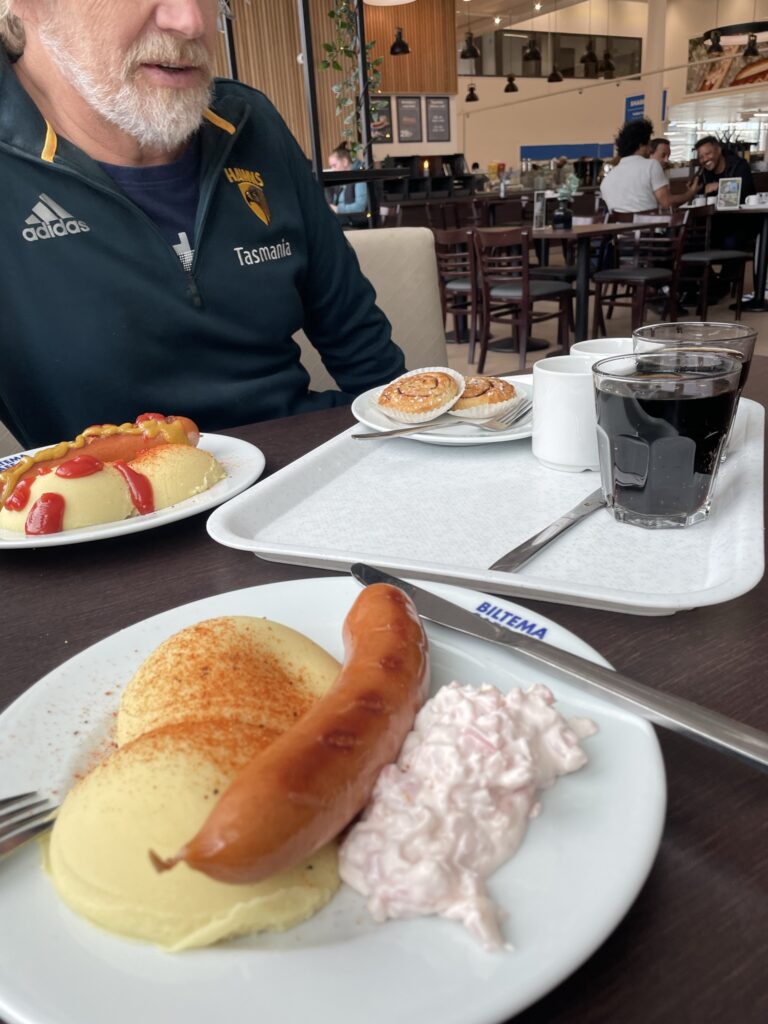
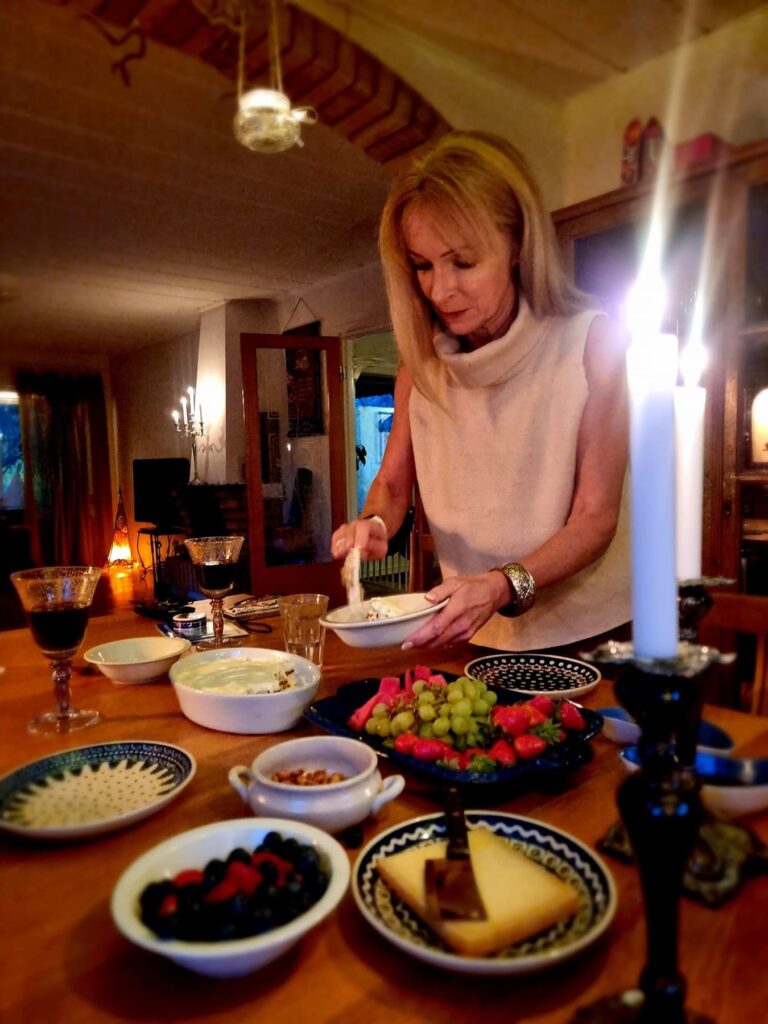
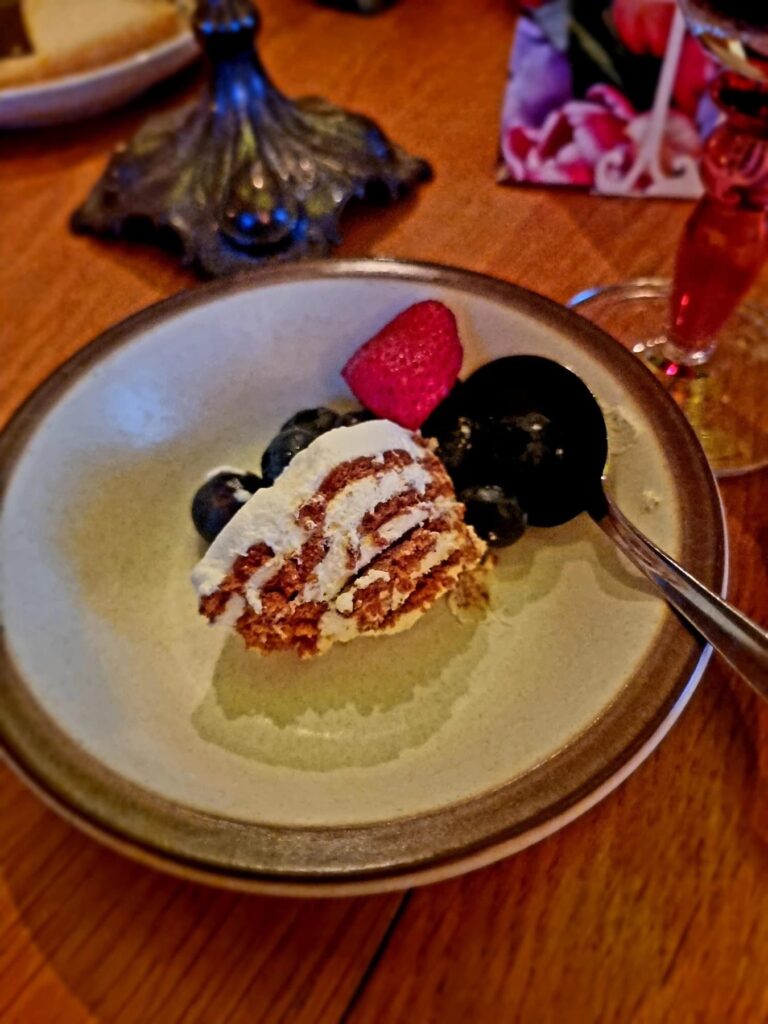
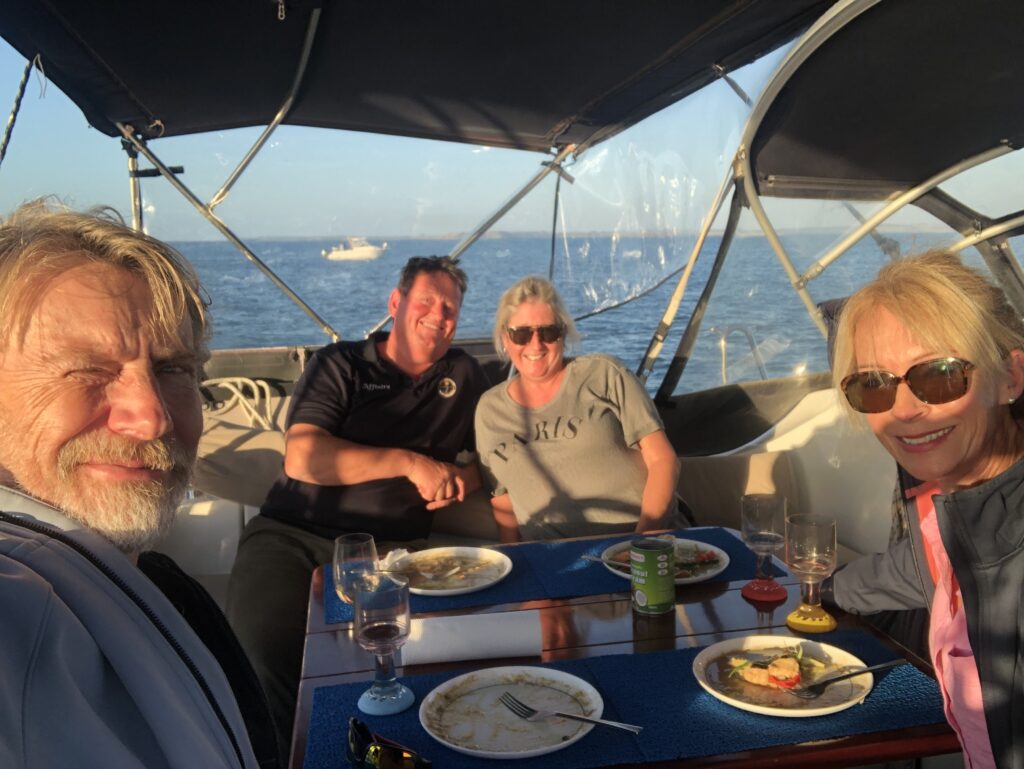
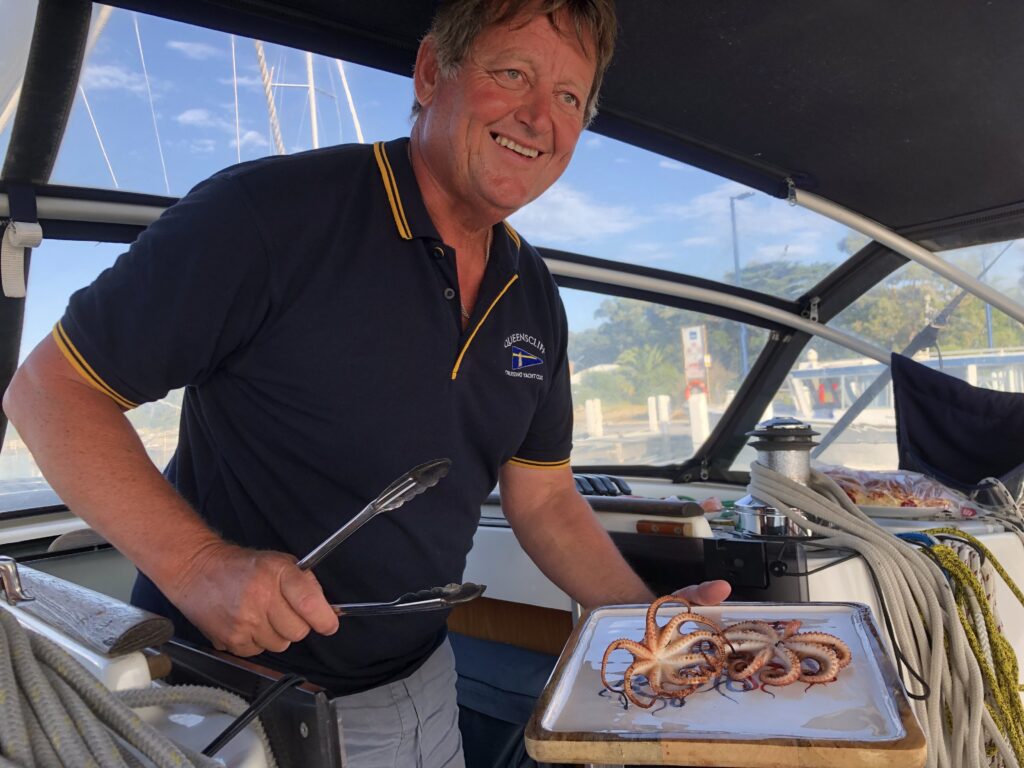
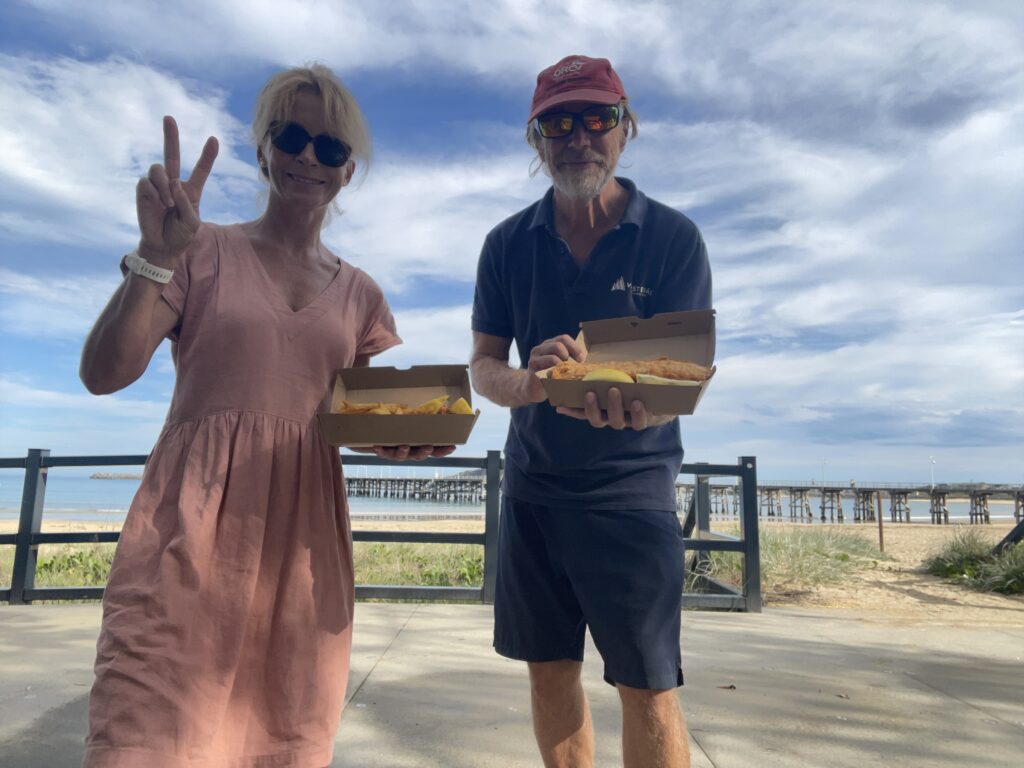
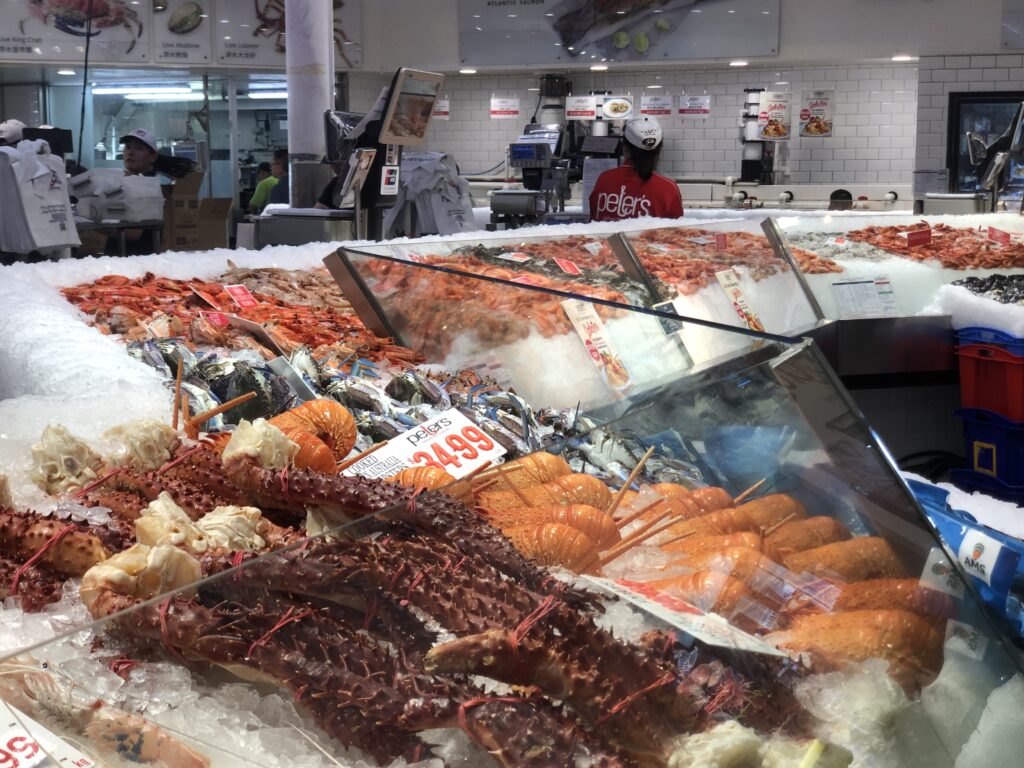
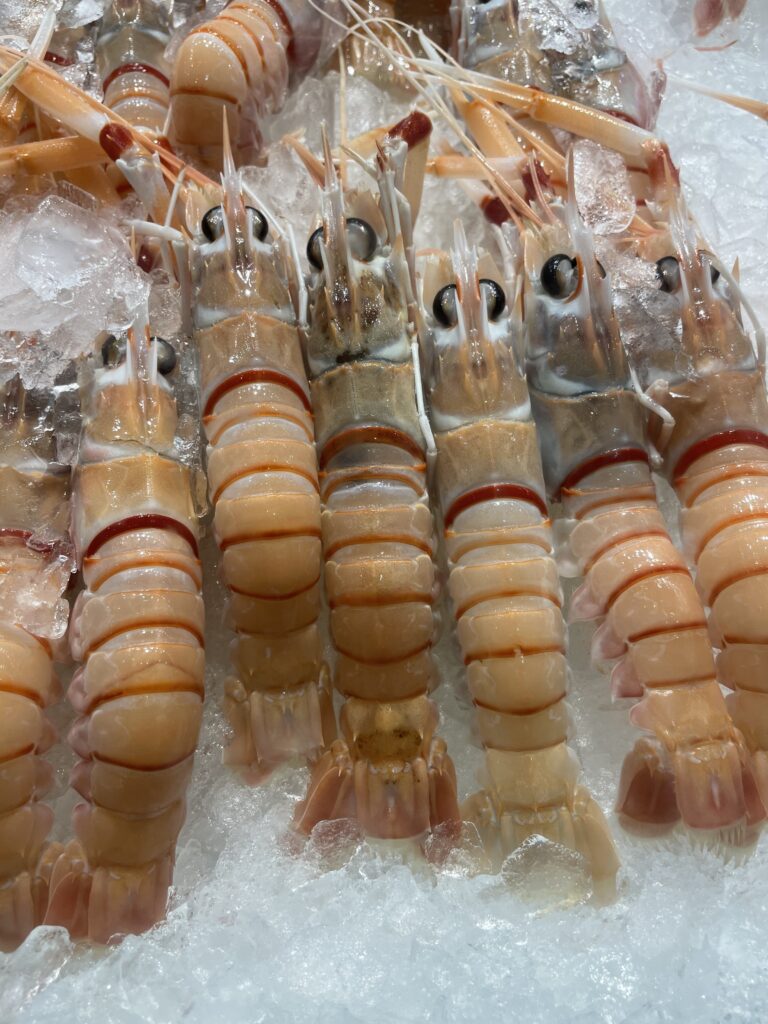
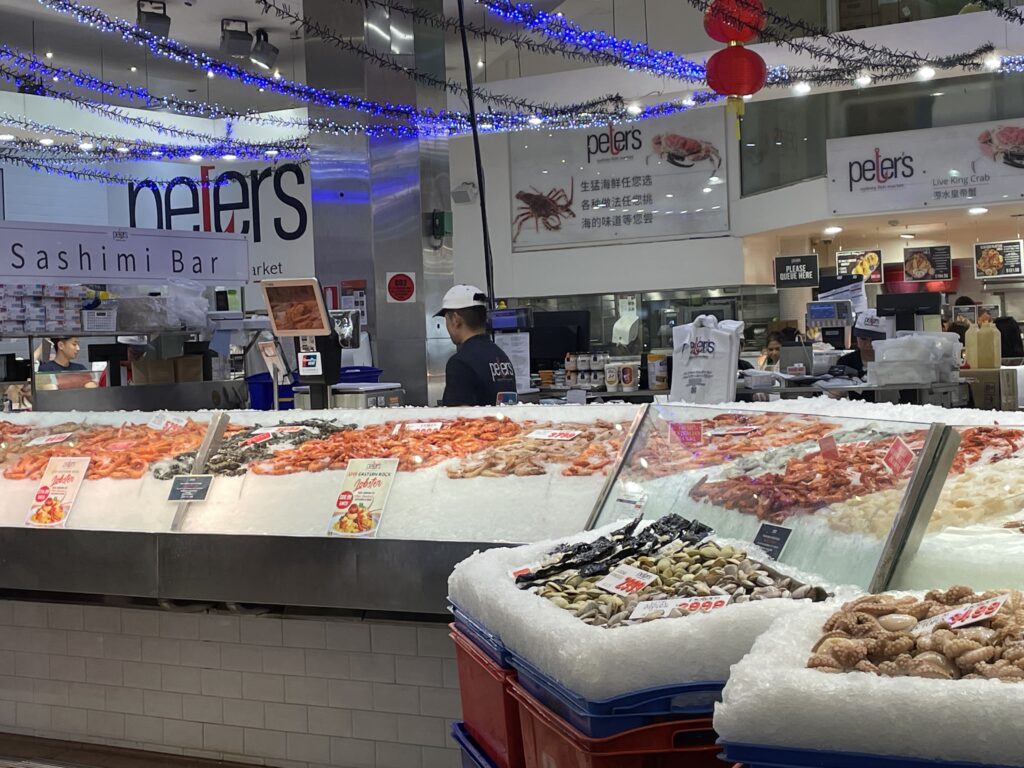
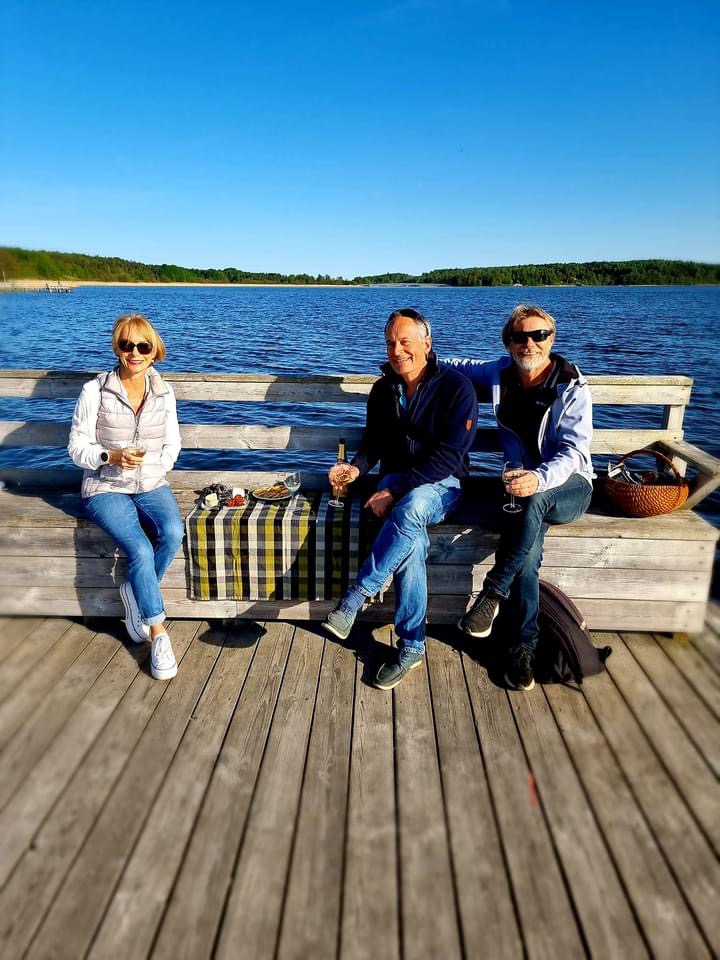
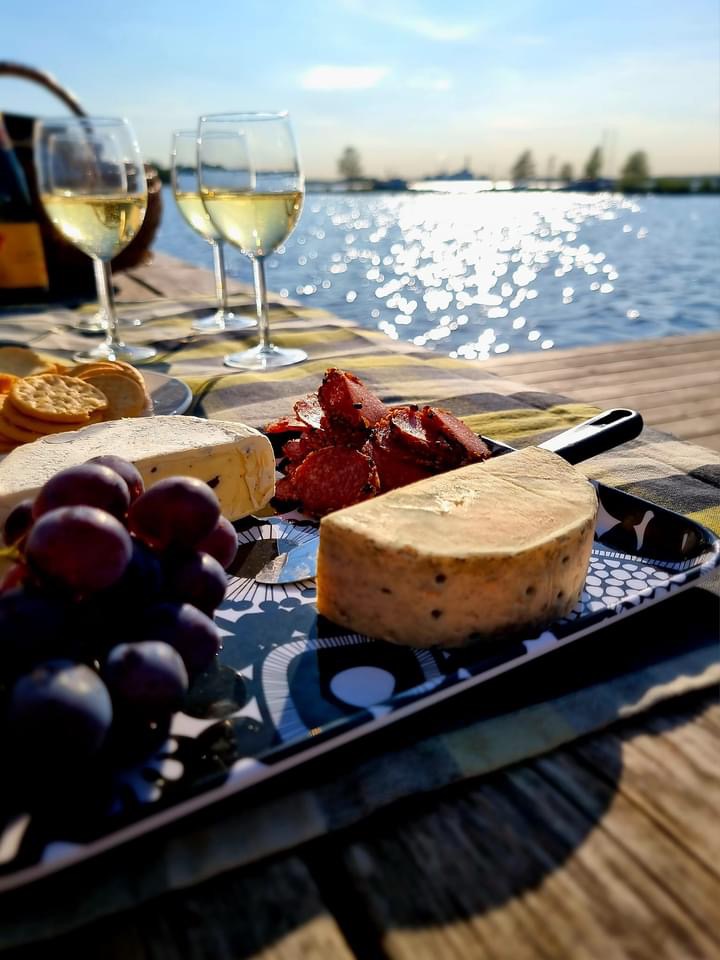
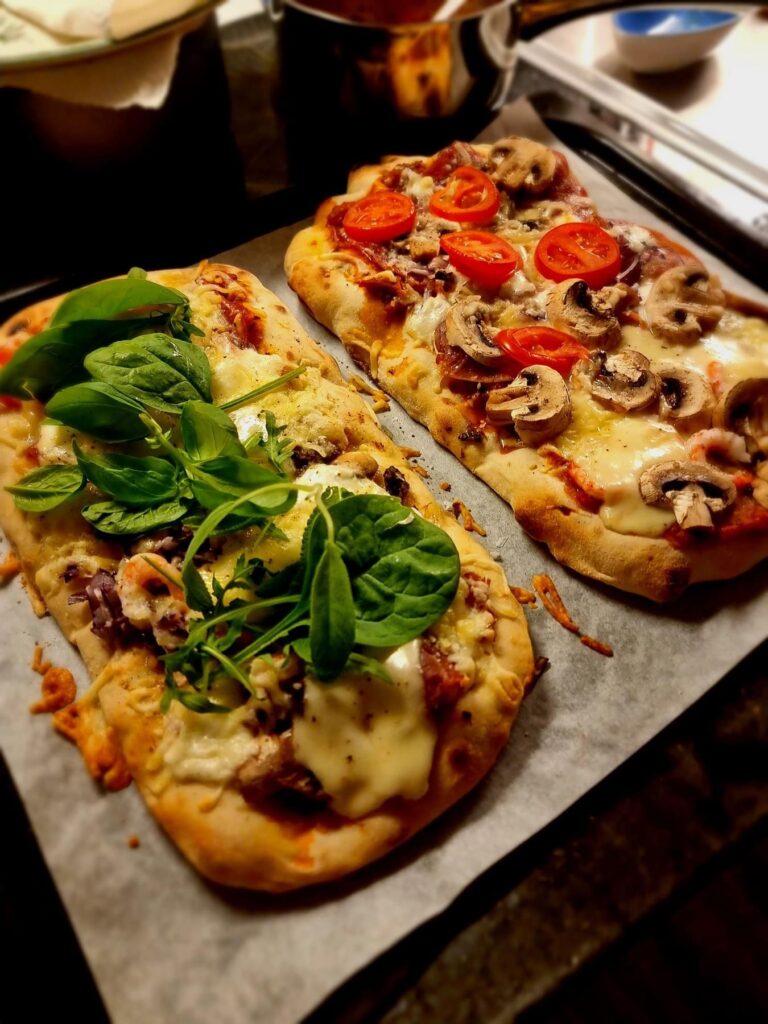
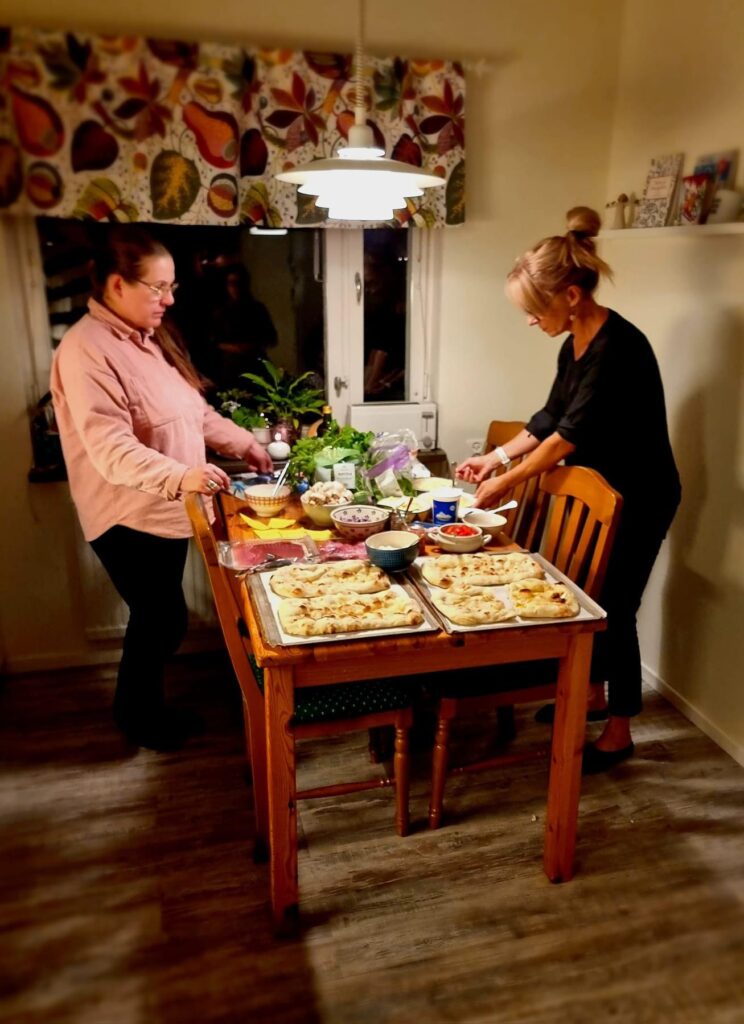
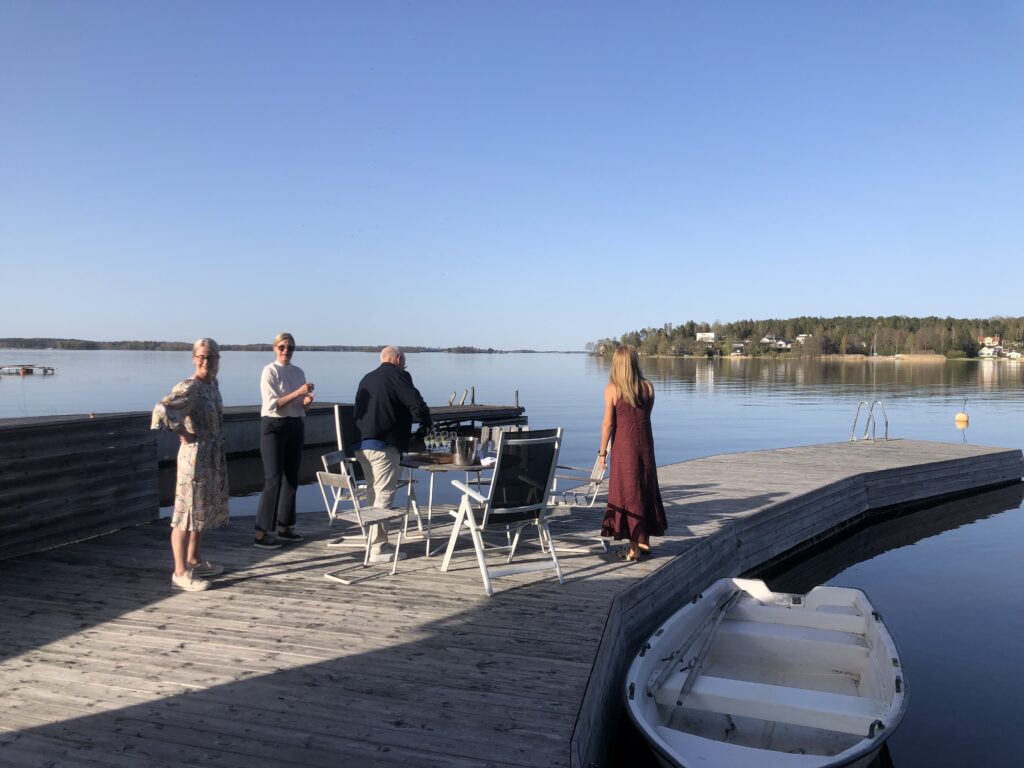
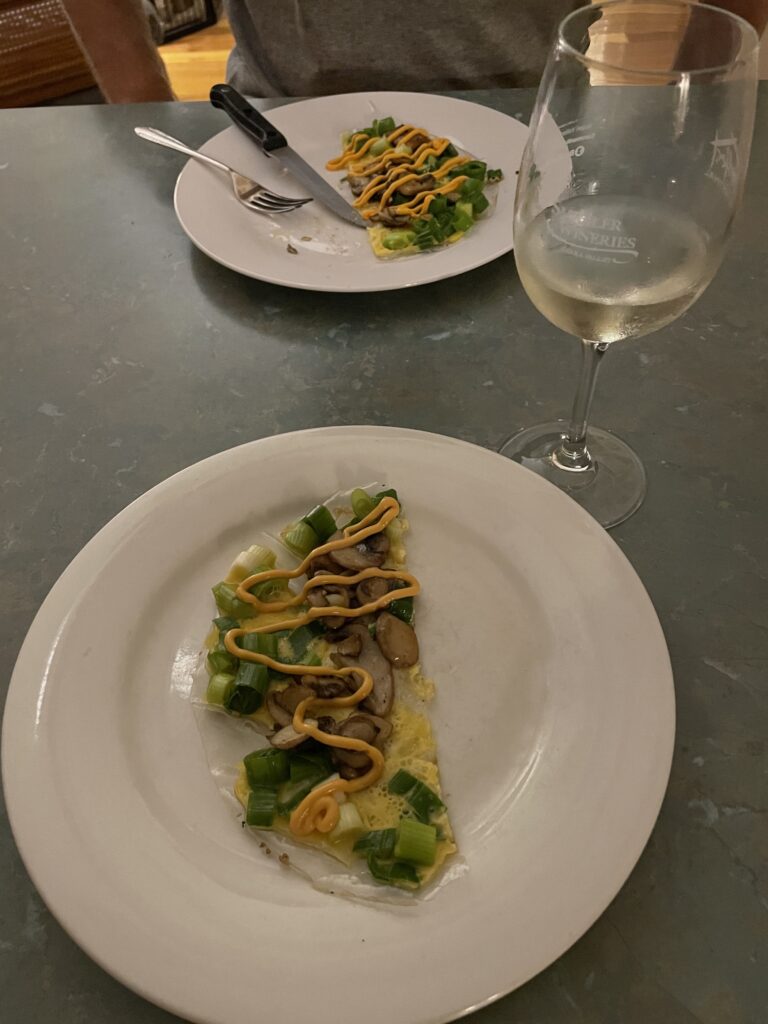
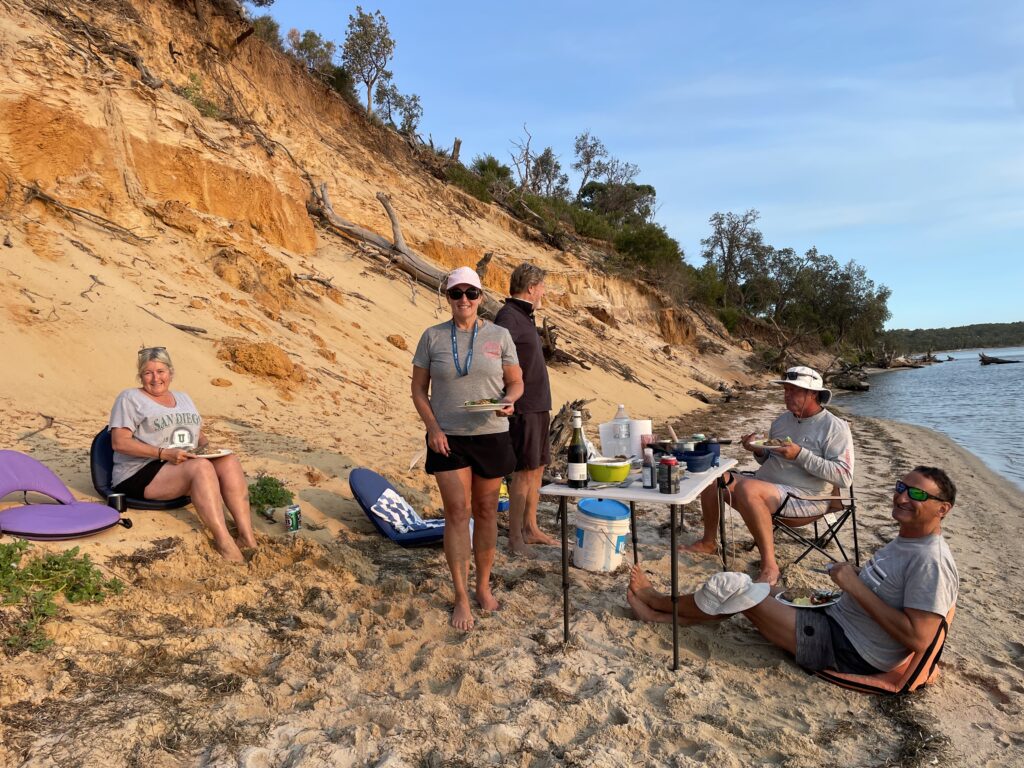
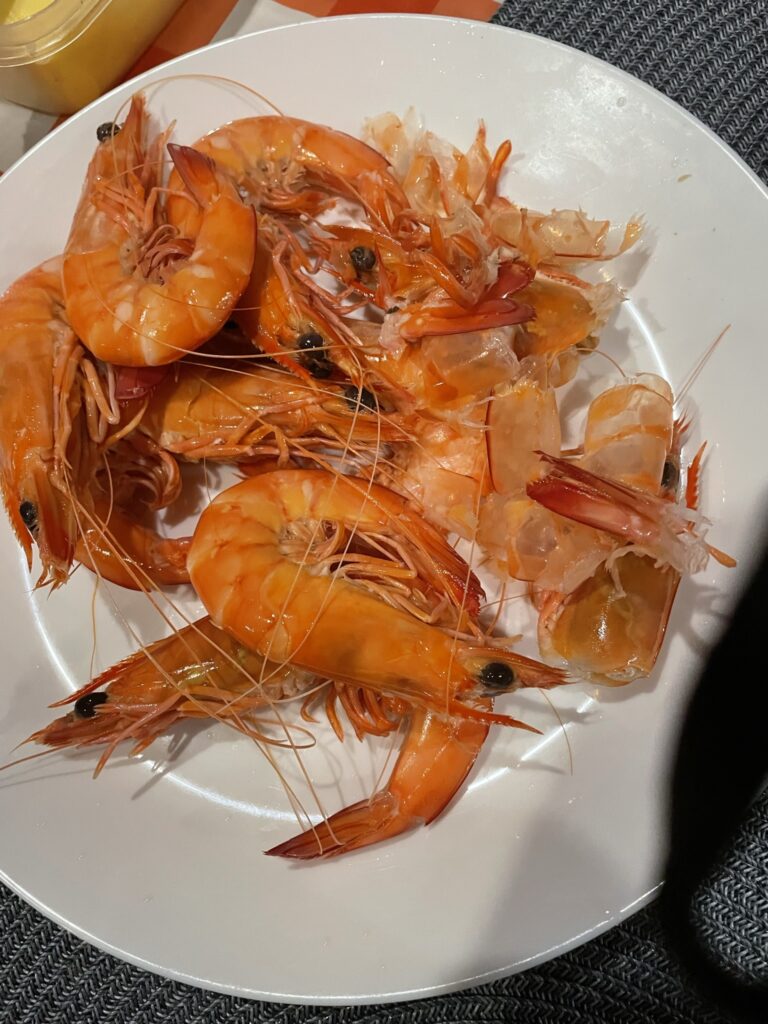
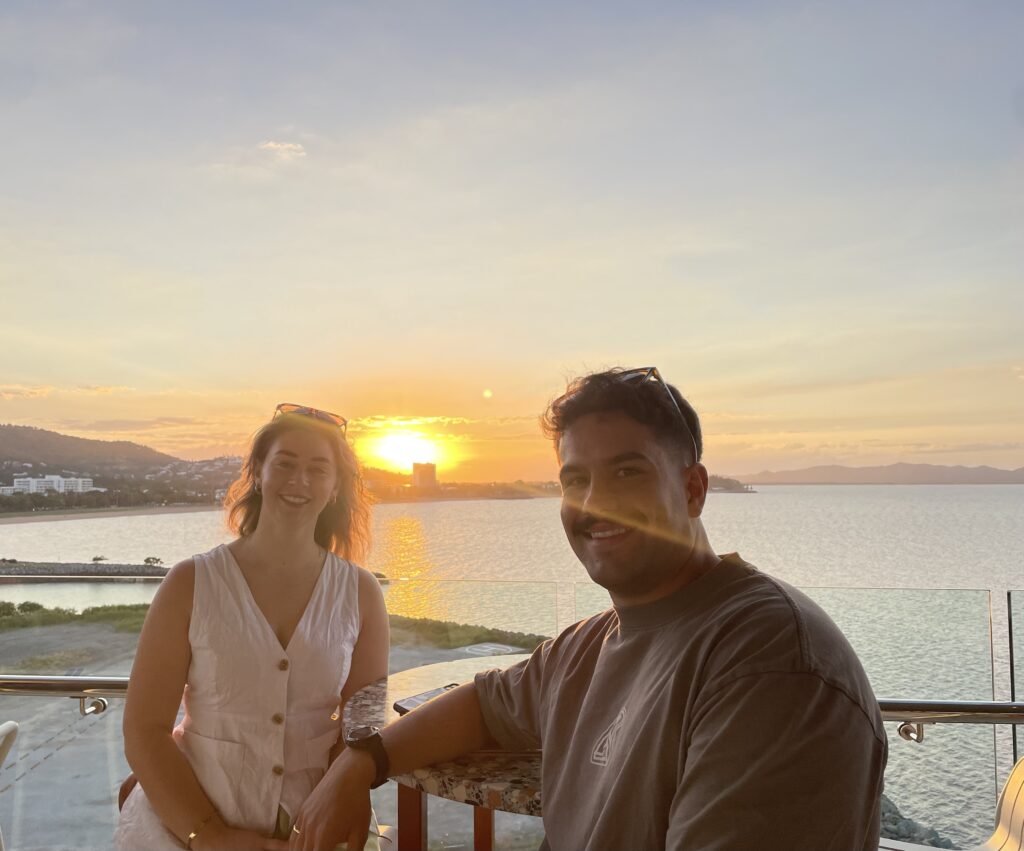
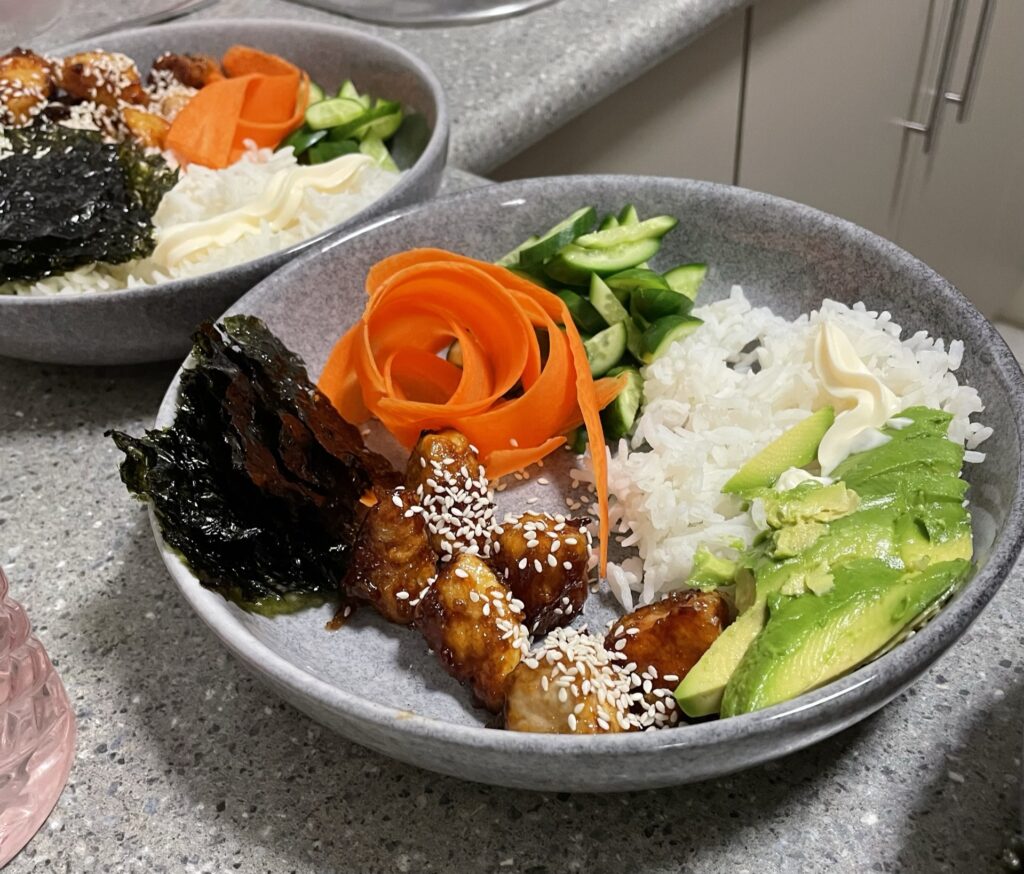
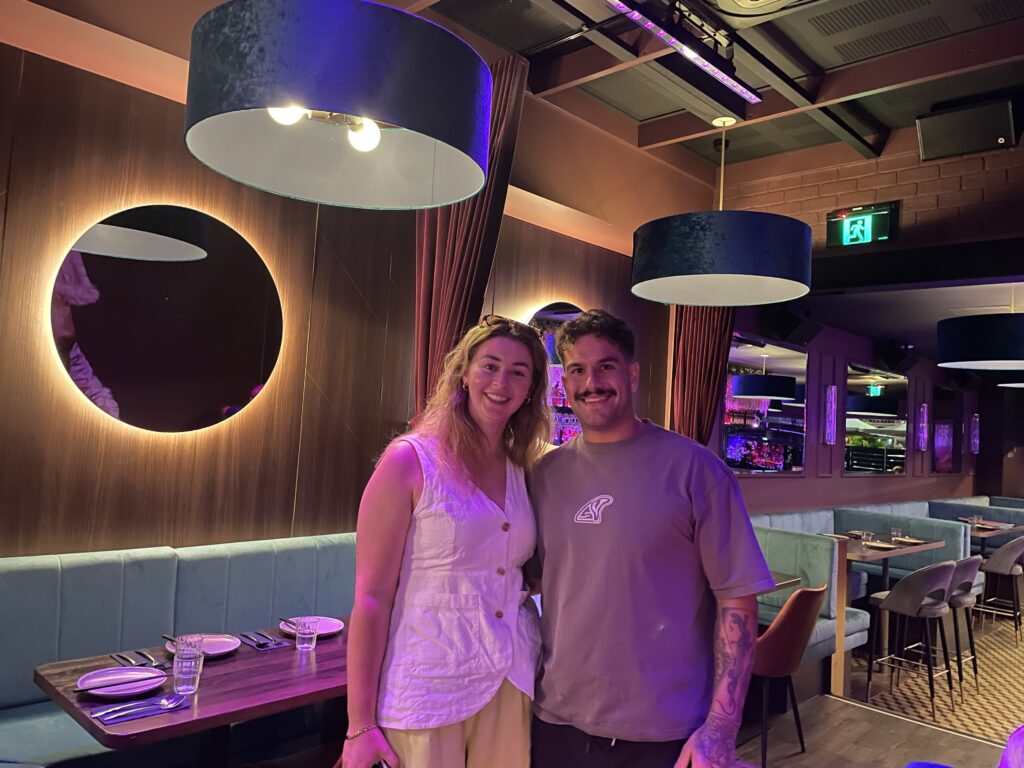
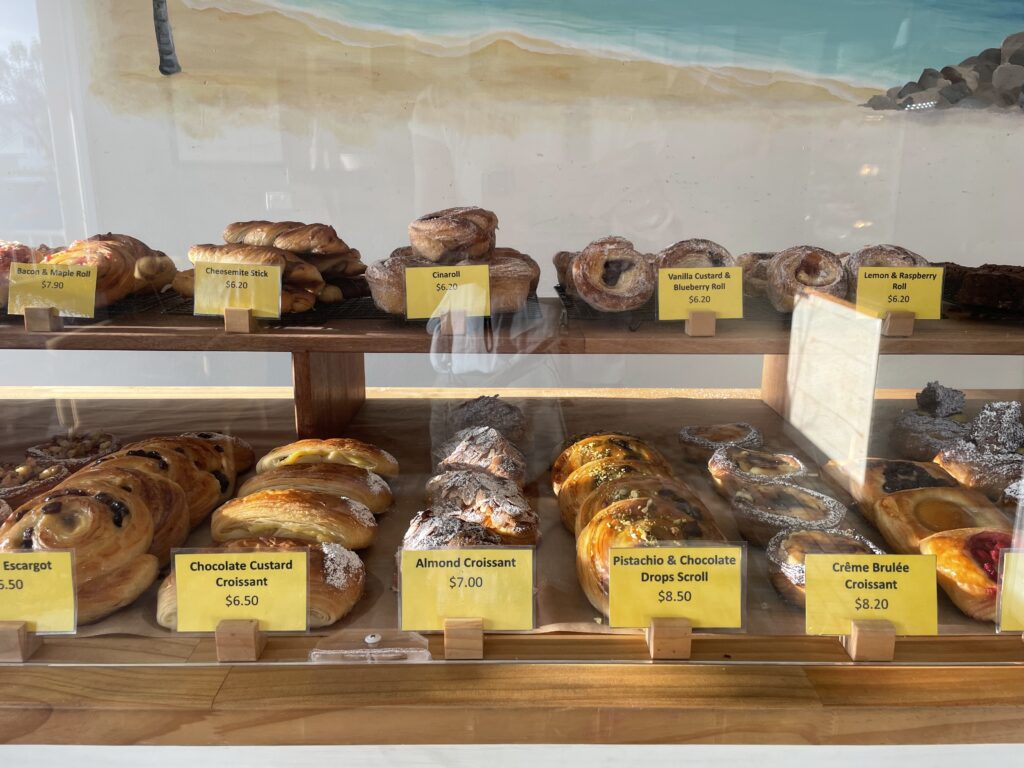
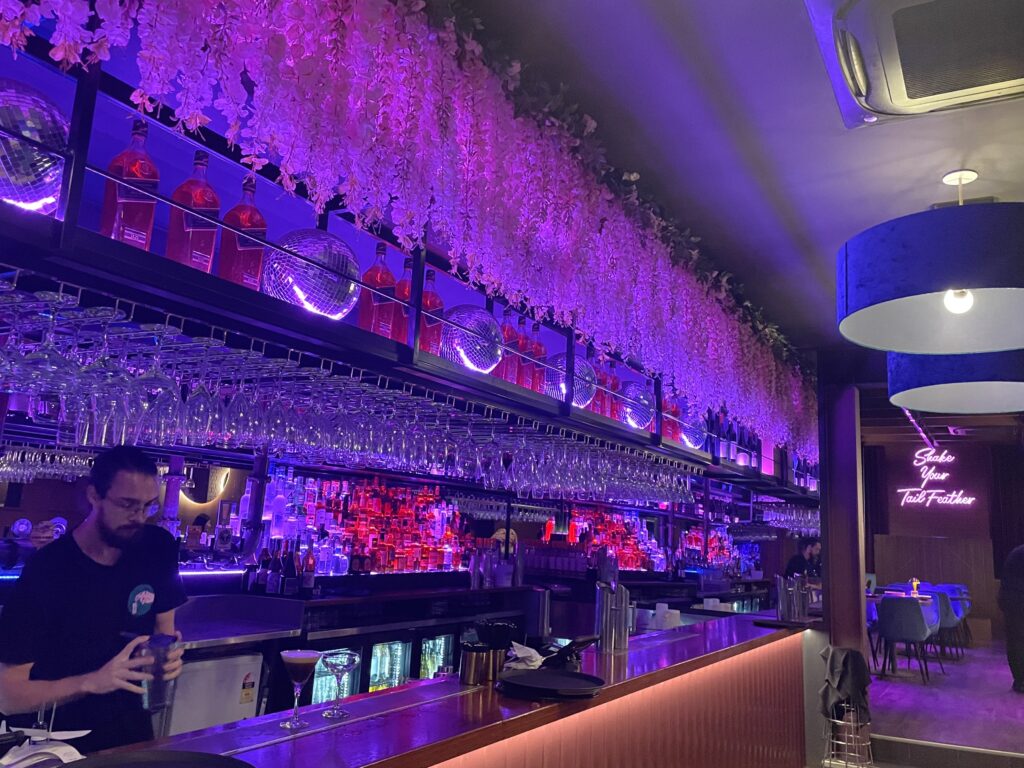
BOAT WORK:
- New mattresses
- New bearings in boom traveller
- New gas bottles
- New chartplotter in cockpit
- Rebuilt rusty throttle handle
- Installed Starlink
- New dinghy
THE SWEDISH STUDENT:
Jag tyckte att jag hade blivit bättre på att lyssna, och kunde oftast följa en konversation med människor som talar långsamt. Tillräckligt för att vara en del av konversationen. Men jag blev missmodig en kväll, när jag inte kunde hänga med. Så då tappar jag bort mig själv, eller måste hela tiden avbryta samtalet för att fråga. Ingetdera är roligt. Jag trodde att den tiden var förbi. Mycket mer studier att göra.
